How to become a skipper
So you want to be a yacht skipper.
Many yachting graduates choose to start their careers on smaller yachts where they have the opportunity to refine their sailing skills and develop a great reputation. Being a Flotilla Skipper, Charter Skipper or Delivery Skipper is a great way to start working afloat in an industry you love.
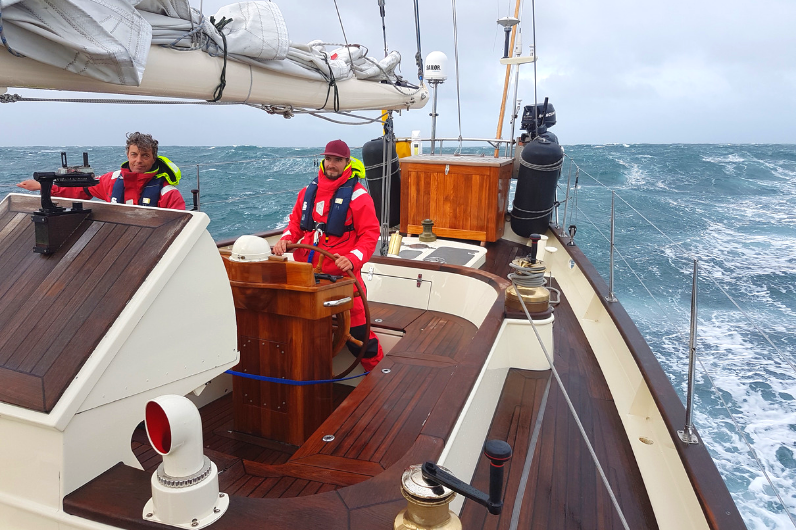

What’s a skipper?
A skipper is a person who has command of a boat or watercraft and is more or less equivalent to a captain in charge of a ship. The skipper may or may not be the owner of the boat.
There are a number of types of different roles including flotilla, charter and delivery skippers.
Flotilla Skipper
What does a flotilla skipper do.
A flotilla skipper is responsible for the running, sailing, maintenance and guest care of a yacht forming part of a holiday flotilla or sometimes the entire group of up to 20 yachts, which form the flotilla.
Flotilla holiday companies often operate in the Mediterranean, you can earn anything between €100 – €250 per week (depending on operator) but can also earn some reasonable tips.
Working as a flotilla skipper is a great way to build on your miles.
Personality traits
You will need to be an outgoing and friendly personality who can accommodate guests at all times. You will need to be organised and efficient to cover all admin and paperwork as well as deliver safety and technical briefings, conduct general maintenance and assist guests with sailing.
Flotilla Skipper Salary
Flotilla holidays companies often operate in the Mediterranean, you can earn anything between €100 – €250 per week (depending on operator) but can also earn reasonable tips.
Flotilla Skipper Jobs
The types of jobs vary on different vessels. Some of your tasks will include but not be limited to:
- De-fouling propellers and replacing anodes before launching
- Checking and replacing all deck fittings where necessary
- Assisting engineers with out-of–water work
- Checking skin fittings
- Replacing running rigging
- Hoisting anchors
- Servicing winches
- Hoisting sails
- Fitting biminis
- Fitting guardrails
- Checking dinghies
- Splicing and whipping ropes
Charter Skipper
What does a charter skipper do.
A Charter Skipper manages and captains a yacht that has been hired out to paying guests. This role typically involves taking command of 35 – 60ft yachts (catamarans are particularly popular) operating in the Mediterranean or Caribbean.
You will have a busy schedule with a high turnover of guests during the season that will want to pack a lot into their 1 or 2-week holiday.
You will need to be an outgoing and friendly personality who is committed to providing the highest level of customer service.
A hard-working attitude is required, as you will be responsible for all aspects of the charter operation from maintenance and passage planning to the general management of the yacht.
Charter Skipper Salary
Charter Skipper salaries range based on experience, position, size of yacht, and type (charter vs private). Here is a simplified break down of monthly skipper crew salaries in dollars:
Charter Skipper Jobs
There are several responsibilities for a charter skipper. These include but not limited to:
- Planning the entire passage to the proposed destination, possibly over a number of days
- Navigating the vessel
- Knowing how to operate and maintain all the equipment on board
- Taking care of the safety of the vessel and the crew
- Management of the vessel in all respects
- It is the responsibility of the skipper to ensure that whatever trip the vessel is making whether for fishing or for holidays, he follows the regulations and maritime laws
Delivery Skipper
What does a delivery skipper do.
A delivery skipper is responsible for the safe journey of a yacht to its new owner or meeting the owner of the boat at a particular destination.
You are your own boss when working as a Delivery Skipper, you don’t have the responsibility of guests but it is up to you to make sure that the boat gets there safely and on time.
Delivery skippers usually work on a freelance basis or for an agency, either way, both will be looking for skilled sailors so your level of qualification and experience on the water will determine how much work you will pick up.
You will need to be a determined and reliable person with a good work ethic. Taking on this type of role means that you will have the benefit of a flexible lifestyle, you could be working for long periods of time followed by long periods of time at home, this role could also take you to any part of the world.
Delivery Skipper Salary
Your travel and food expenses will be paid for while on a delivery, freelance delivery skippers often negotiate their own wage but on average you could expect to be paid between £100 – £140 per day. As a newly qualified Yachtmaster, you will need to build on your miles and experience before taking on the role of skipper.
You can do this by joining a delivery as a crew member (often unpaid).
Delivery Skipper Jobs
- The safe handling and navigation of a vessel
- Ensuring that all activities are carried out in accordance with Safety and Operating Procedures
- Leading and supervising the regular crew and any relief crew and volunteers
- Looking after the welfare of clients, crew, volunteers, and trainees, including morale and discipline
- Dealing with unexpected issues which might arise, such the need to implement emergency repairs
- Maintaining paperwork
- Being professional, and acting with tact and diplomacy at all times (both on and off the vessel)
Register your interest
- First name *
- Last name *
- How did you hear about UKSA? * –None– Campaign Dinghy Show Educational Visits UK Event GroupAccommodation.com Guardian Media IOW College IOW County Press London Boat Show Online PlanMySchoolTrip.co.uk Press Radio Referral School Travel Organiser Social Media Southampton Boat Show Top School Trips UKSchoolTrips.co.uk Visit IOW Yachts & Yachting
- General notes
- Opt-in to receive course information and relevant offers
- Accept Privacy Policy and Terms and Conditions .
- Phone This field is for validation purposes and should be left unchanged.
Courses you may also be interested in
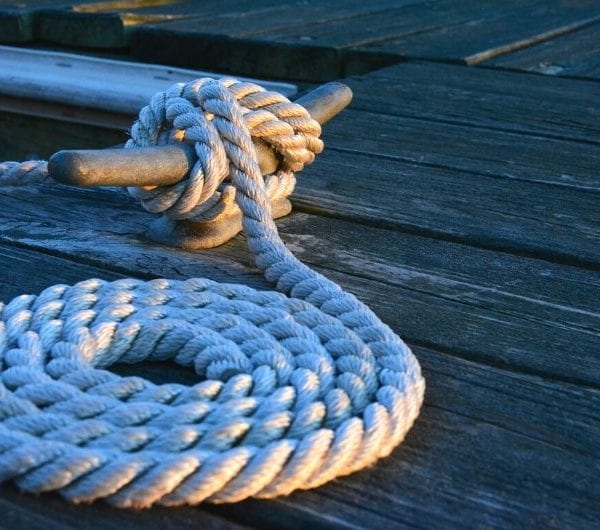
If you have any questions or need to get in touch:
Speak to UKSA on +44 (0)1983 294941 or email us
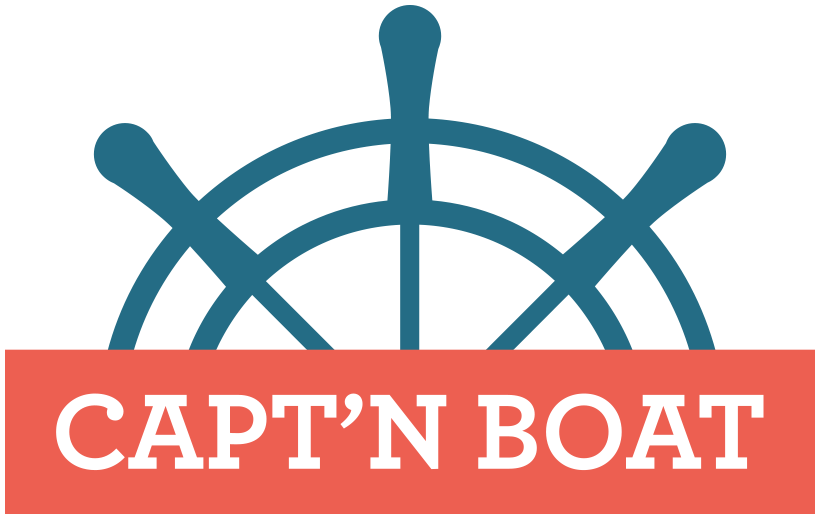
Becoming a skipper: qualifications, trainings, remuneration ..
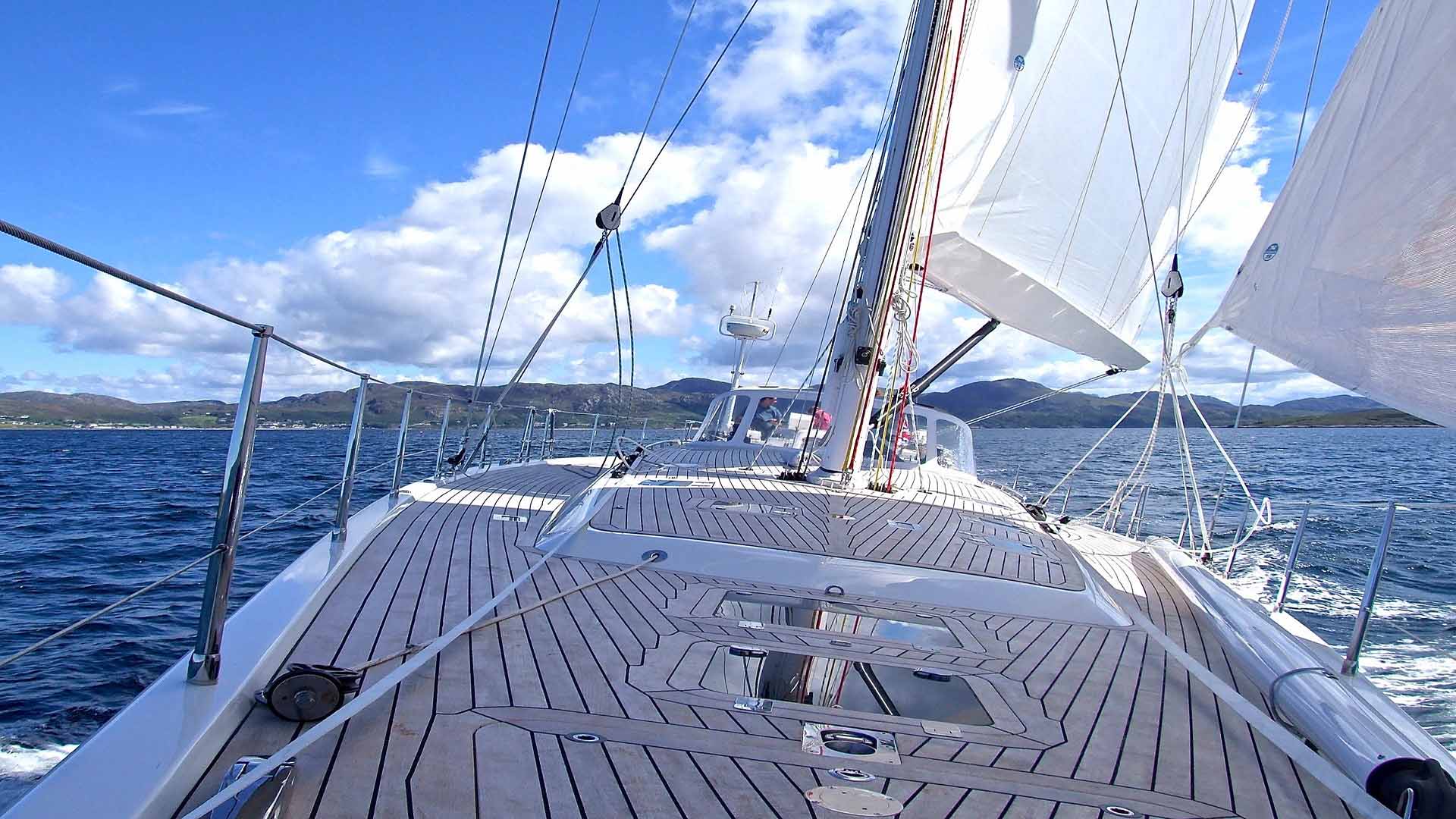
In a global context where the figures of the nautical sector are rather positive, the demand for skippers is growing every year. Becoming a skipper is a real passion coupled with a solid training. Capt’n Boat explains the role of a professional skipper, his trainings, his missions and his remuneration system.
A skipper is the person in charge of the navigation of a boat . He provides paid passenger transport (charter) as well as delivery (boat delivery) of pleasure boats from one port to another, he offers training services (sailing course) and improvement, or he sails a sailboat in sporting competitions (races).
1. What is a skipper?
The skipper is the only master on board . Thus, he is responsible for all the tasks and actions necessary on the boat:
- Driving the engines and electrical installations
- Relations between the crew and the client
- Safety and security of the passengers and the ship
- Management of the crew
- Hygiene on board and health of passengers
- Maintenance and repair of the vessel
- Radio communications
The skipper also plays an important role in the animation of life on board.

2. What are the missions of a skipper ?
The missions of a skipper are quite varied. A skipper works most often for vacation organizations, boat rental companies and takes summer guests on cruises. During the off season, he or she is more often employed to deliver private boats.
A. Boat deliveries
The mission of delivery consists, for a professional skipper, to convey a ship for a remuneration, between two ports or two sites by sea.
Generally, it is about :
- Driving boats to a shipyard for maintenance or wintering
- Routing boats to a race start
- Conveying boats to the home port following a purchase
B. Boat coaching
The improvement or coaching is an educational mission. The skipper’s objective is to teach the fundamentals of navigation and the use of a boat.
The services of a skipper are generally requested to:
- Train an owner following a boat purchase
- Propose improvement courses to owners in order to be more comfortable on their boat
C. Cruise with a skipper
Going on a cruise with a skipper is a good compromise to enjoy both the navigation and the sea air without being embarrassed by maneuvers, anchorages…
We also talk about doing charter missions with clients.
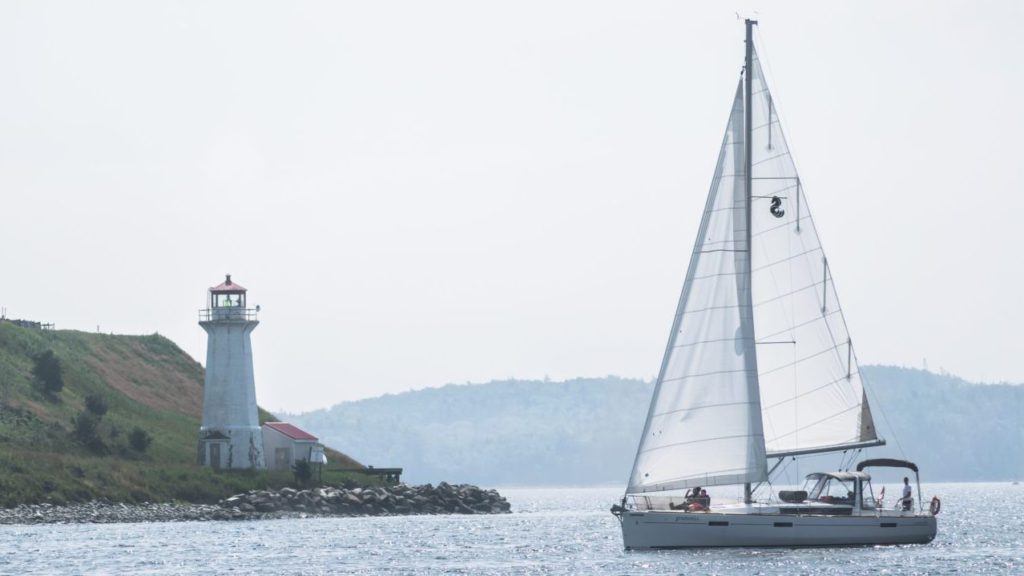
3. Which training to become a skipper?
A. internationally.
The most common certificate to work internationally as a skipper is the Yachtmaster . The Yachtmaster is an English degree from the Royal Yachting Association (RYA), recognized by the Maritime Coastguard Agency (MCA) and throughout the world. It allows skippers to command pleasure boats up to 24 meters long, and up to 200 miles from the coast. It has 3 levels and each one have limitations: Coastal, Offshore and Ocean.
To obtain the Yachtmaster, the candidate must be over 18 and have at least 1000 miles of navigation in 1st or 2nd category (corresponding to the distance from the coast). The theoretical tests cover a wide range of subjects such as:
- The ship and its components (technical, engine, electrical installations)
- Navigation in all its states (coastal and offshore, day and night)
- Maritime law relating to events at sea
- Meteorology and hydrology
- Sanitary conditions on board
The practical test takes place during a 12-hour navigation. It includes a night phase, a man overboard exercise as well as port maneuvers.
The Yachtmaster must be completed with a “Commercially Endorsed” endorsement in order to be used on commercial services for profit. To obtain this endorsement, the skipper must obtain the Professional Practices and Responsibilities certificate (PPR), the Basic Safety Training (BST), and the MCA Medical Examination (ENG1).
B. In France
In France, there are 2 main types of skipper certificates:
- The Merchant Navy certificates (Captain 200, Captain 500, Captain 3000…) for fishing and trade. Merchant Navy diplomas are authorized for boat deliveries and charters.
A Captain 200 Voile certificate is compulsory to work as a professional skipper in France. This certificate allows you to work as a professional skipper in yachting and sailing, either to carry passengers (12 maximum) on ships of less than 200 tons (about 24 m), or to drive a ship for a third party.
In order for the Captain 200 to be effective, you must also hold the BST, ROC/GOC, EM1 and a Medical Checkup .
- The State Certificates (BPJEPS, BEES ..), are qualified to carry out only training.
C. Yachtmaster or french title?
There is no one title better than another. It all depends on what type of vessel you want to work on.
If you want to work on French flagged vessels, Capt’n Boat recommends that you opt for the French titles. Otherwise, the Yachtmaster titles are a good option if you want to work on foreign flags.
There is now a gateway to work on a French flag with a Yachtmaster : the Master 200 GT.
4. Qualifications and obligations of the skipper
A skipper’s ability to make decisions, sense of responsibility, interpersonal skills, dynamism, initiative, composure and great resistance to physical and nervous fatigue are essential qualities for a skipper. The journeys can be long and the customers demanding, a skipper must therefore be able to adapt his behavior to each situation and people, he must be versatile, available and autonomous.
In any case, being a skipper is a “passion job” that requires a lot of investment. The human element is an essential part of this job, especially for charter services.
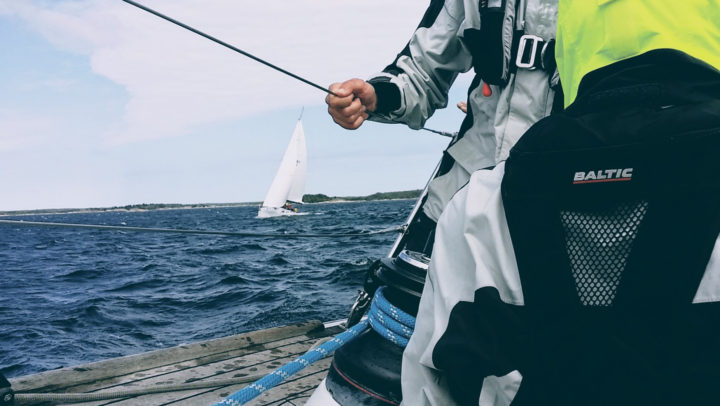
5. Remuneration of the skipper
The cost of a professional skipper varies according to the service (boat delivery, charter, coaching), the duration of the service, the sailing area, the size of the boat and the number of passengers :
- For charters, the remuneration is a daily rate. Example : In Croatia, a skipper is paid at least 240€/day ; In France, 300€/day ; In Saint Marteen, 250€/day ; In Greece, 240€/day ; In the Bahamas, 350€/day ; etc ..
The price varies according to the geographical area, each country has its own minimum wage.
- For boat deliveries, the remuneration is per nautical mile. Here, the wage is the same internationally : 3,5€ per nautical mile.
Want to become a skipper? Capt’n Boat offers you a professional marketplace
Here is a similar article: How to become a yacht stewardess: The fundamentals of the job 👈

Related Posts
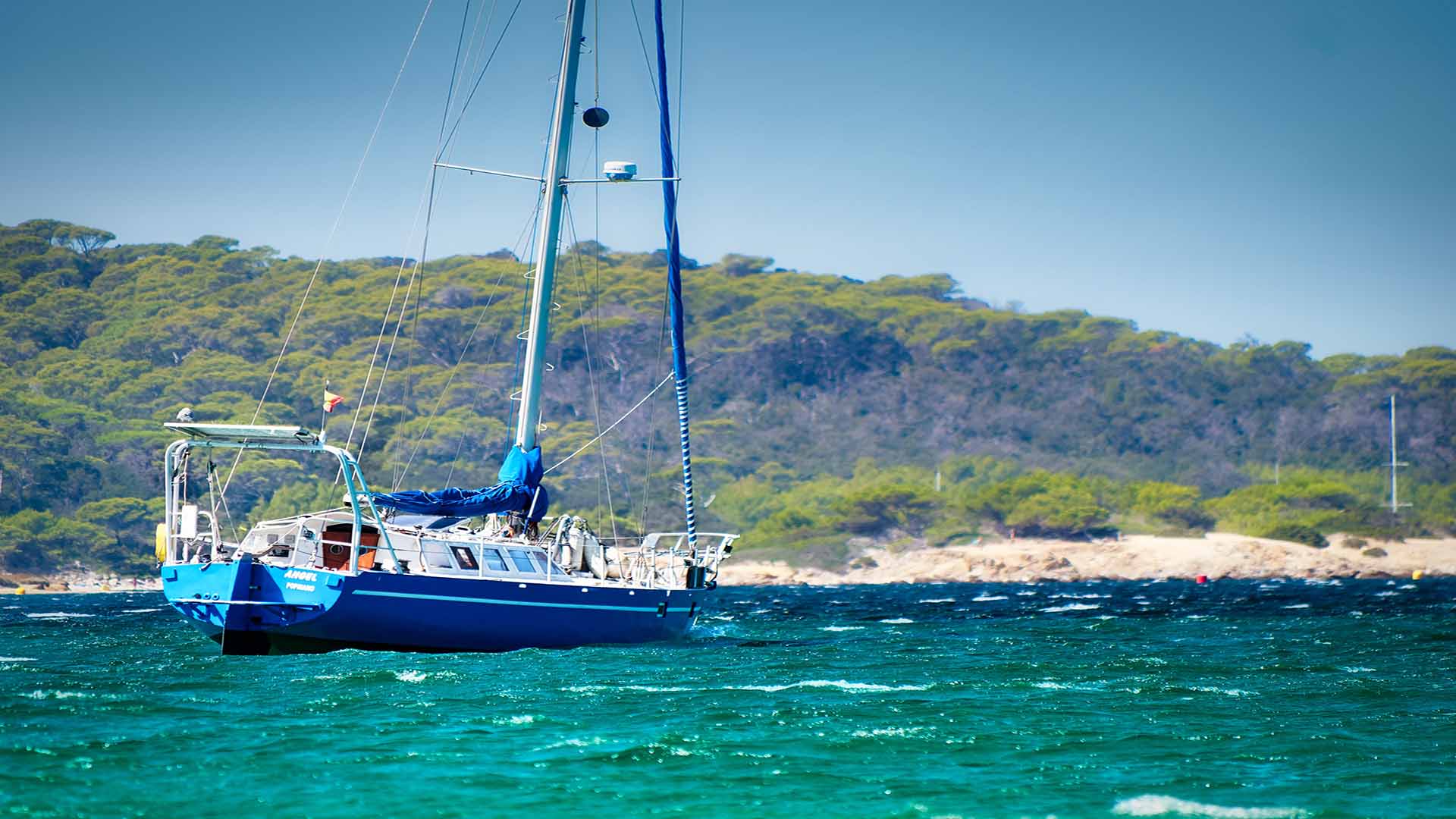
How can I work in France with a RYA Yachtmaster Offshore certificate?
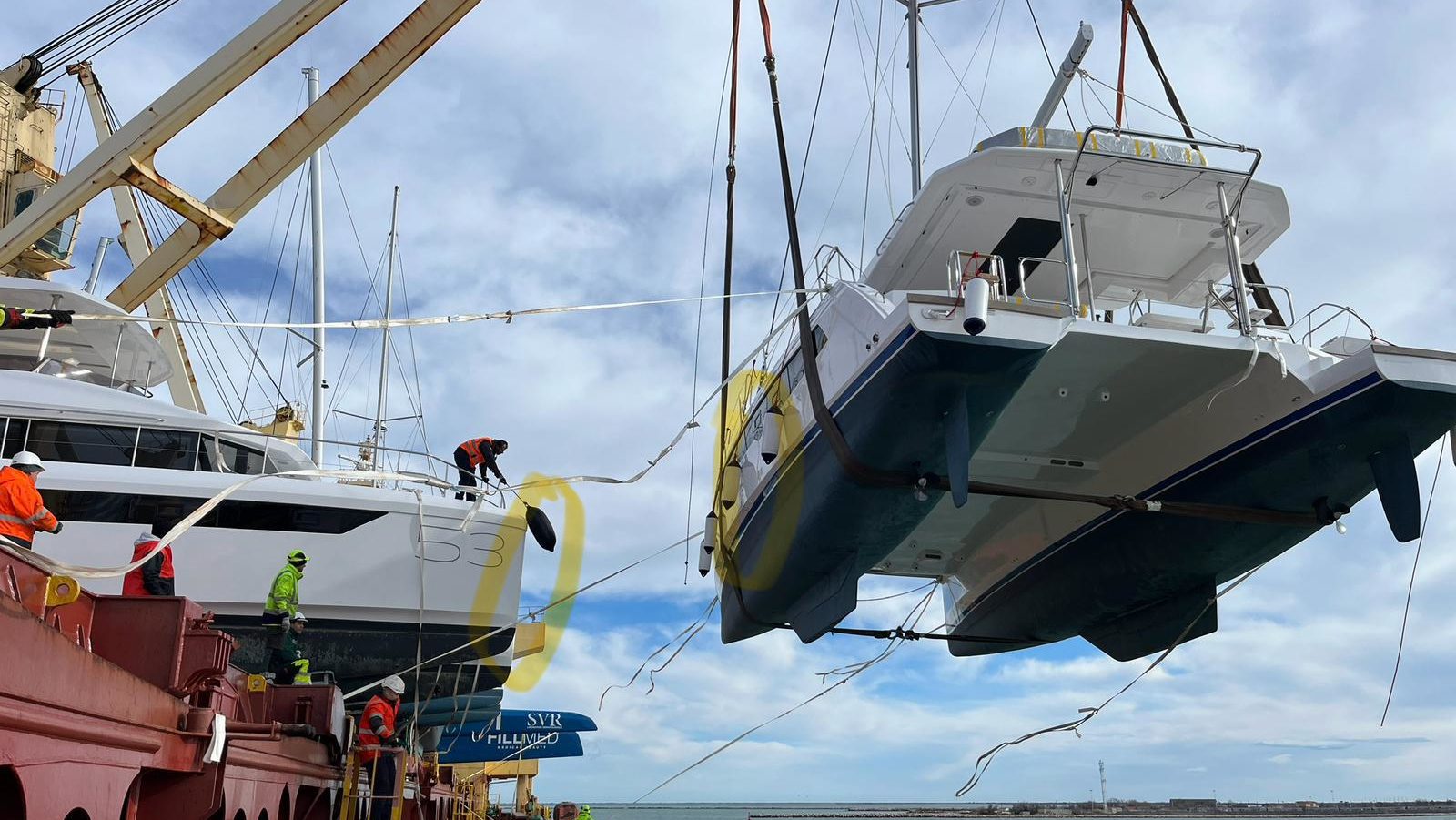
Embark on the convoying of a Leopard Catamarans fleet
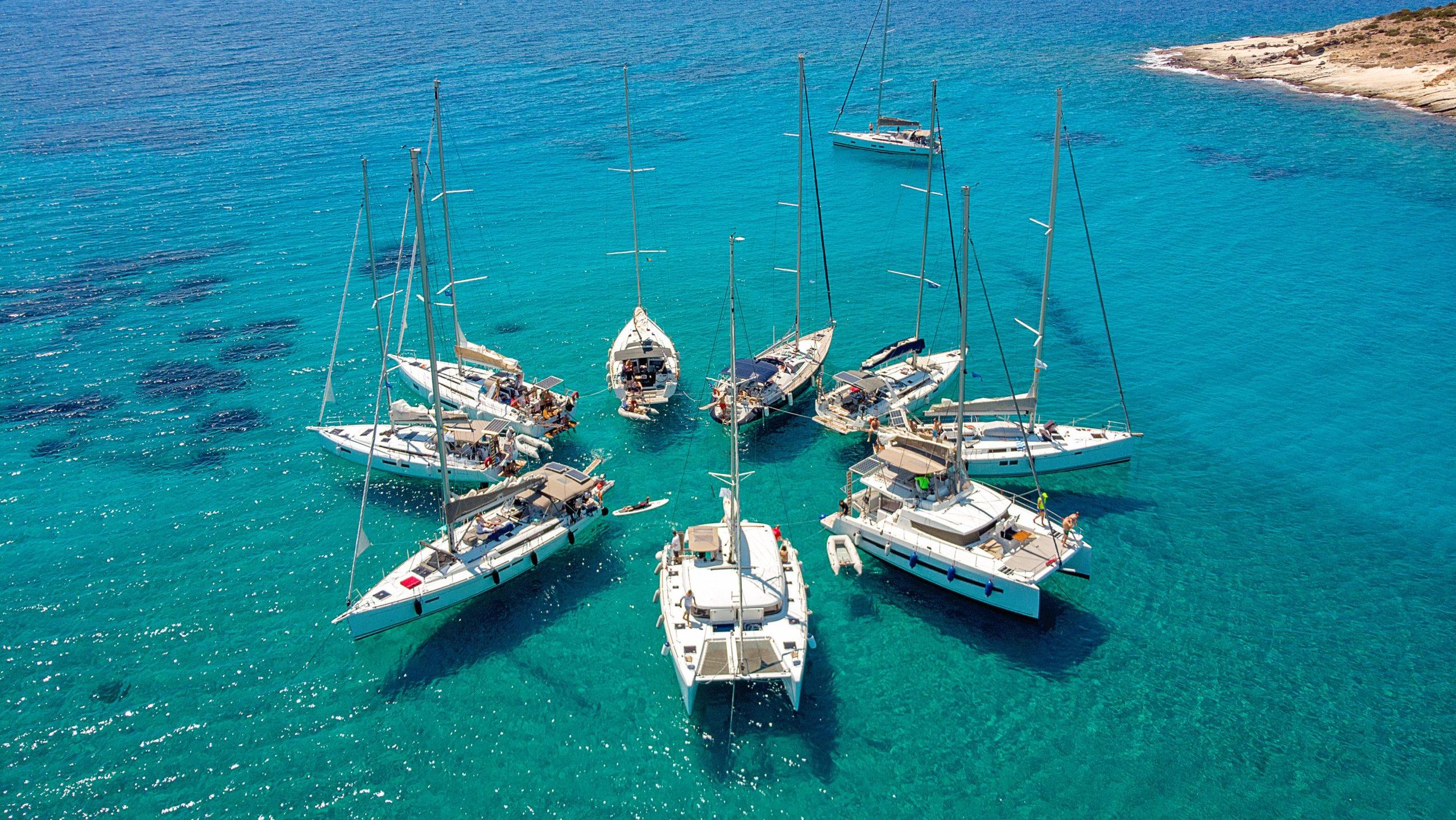
100% growth in 2023 for the 3rd consecutive year – Capt’n Boat makes the review

Skipper vs Captain: Who’s Who and What is the Difference?
Skipper vs Captain – what’s the difference, you wonder. I’m here to clarify that for you and present my point of view. Without further delay, let’s find out who’s who and learn the difference.
Skipper vs Captain
Define a skipper, etymology of skipper, what is a skipper on a boat, define a captain, etymology of captain, what is a captain on a boat, a simple “official” rule: captain vs skipper, a simple “unofficial” rule: captain vs skipper, skipper or captain, skipper vs captain – bottom line.
Honestly, “Skipper” comes more heartwarming to me. It sounds romantic, wild, and free, rather than “Captain.”
The Captain is a synonym of the impeccable order on a ship; he stands tall, undisputed, and official. While skippers represent freedom. Skippers construe the image of seafaring, I think.
The skipper and captain words are not equal yet interchangeable: any skipper is a captain, some captains are skippers, and the context is mostly emotional.
Who is the Skipper?
With the word skipper , an image of a salty sea dog with a wooden pipe in his teeth immediately hits my mind, he bravely cuts the roaring ocean apart with his brig, and he must murmur a “fifteen men on a dead man’s chest.” Flying a jolly roger is optional, but yes, this is how in a nutshell, we define a skipper!
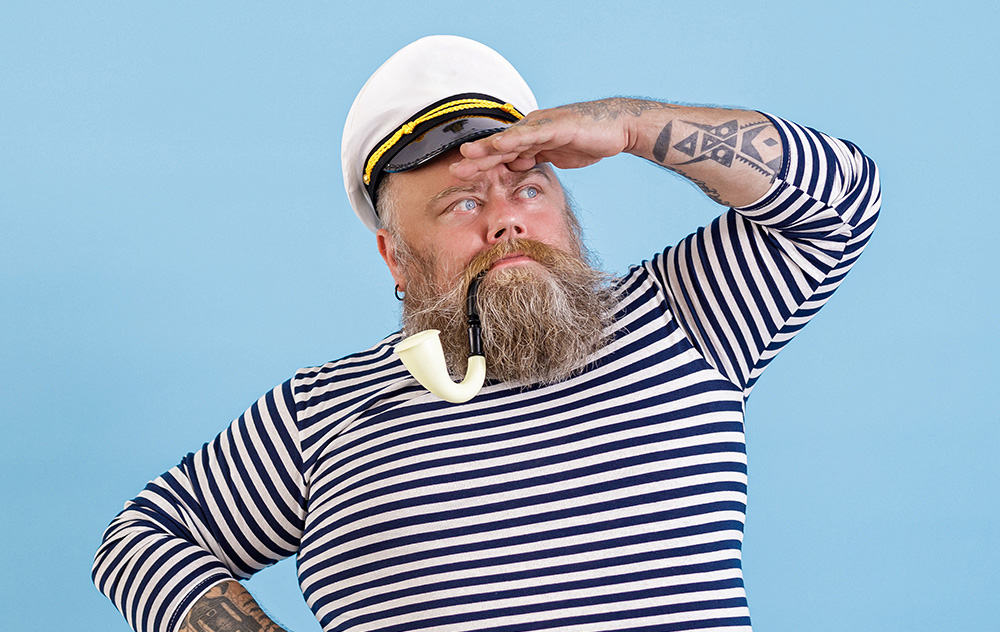
Both Cambridge and Merriam-Webster dictionaries, where the former stands for Classic English and the latter describe the American version of the language, state firmly that a skipper is a master of a ship (master and commander in one, to be precise).
Also, a skipper can serve as a word for one who leads a sports team or an aircraft. So he is a leader and the owner altogether.
To better understand who a skipper is, let’s dig up how the word has appeared in the language. Etymologically, Skipper as a word comes from Old and Middle English and shares the same root with the word “ship”:
SCHIP → SCIP → SKIP → SKIPPER
Thus, Skipper is one with the ship, not only sharing the etymology but sharing a character. More important, he is an owner of himself, and the word “skipper” often means he is an actual owner of the boat. The latter is not too strict language-wise yet displays the idea of who is a skipper.
We see in the dictionaries a skipper is a soul of a boat and the only one responsible for everything (just like a captain). The Skipper is presumably an owner of the boat or may behave like one; indeed, he is always an owner of the situation, compared to Captain – the latter can be ordered to do something. Skipper belongs to no one; he is ideologically an owner to himself.
For example, in everyday speech, we usually refer to the captains of pleasure yachts as skippers because pleasure yachts are relatively small private ships, where the owner and a captain are frequently the same person. Even though you can hire a seasonal skipper for your yacht, forming a partnership, business relations, doubtfully an assignment. Skipper is yet a freeman, or a freelancer, in our case, once hired.
Skipper is an ultimate professional, the same as Captain, but this is a free choice of Skipper to be such. Skipper lives one life for his boat and himself. The skipper is the master of his ship.
A skipper is also a captain of the boat, as of what the official papers state.
The word skipper mainly stands for emotion rather than for rank.
Who is the Captain?
We already know a bit about Skipper, so let’s now define the Captain.
We look for help in the Cambridge and the Merriam Webster again, the two most reliable dictionaries, both agree that a captain is a person in charge of a ship .
You can feel a tiny difference if we compare “a person in charge” to the definition of a skipper: “a master of a ship”. The former is assigned, the latter is just there.
Captain as a word may also define a rank in the force (navy, military, or police). So a captain is an official person, including one on a ship. More important he is assigned to be a leader, even if he has assigned himself. Captain as a word can refer to one who leads a sports team or an aircraft as well as the “skipper” term .
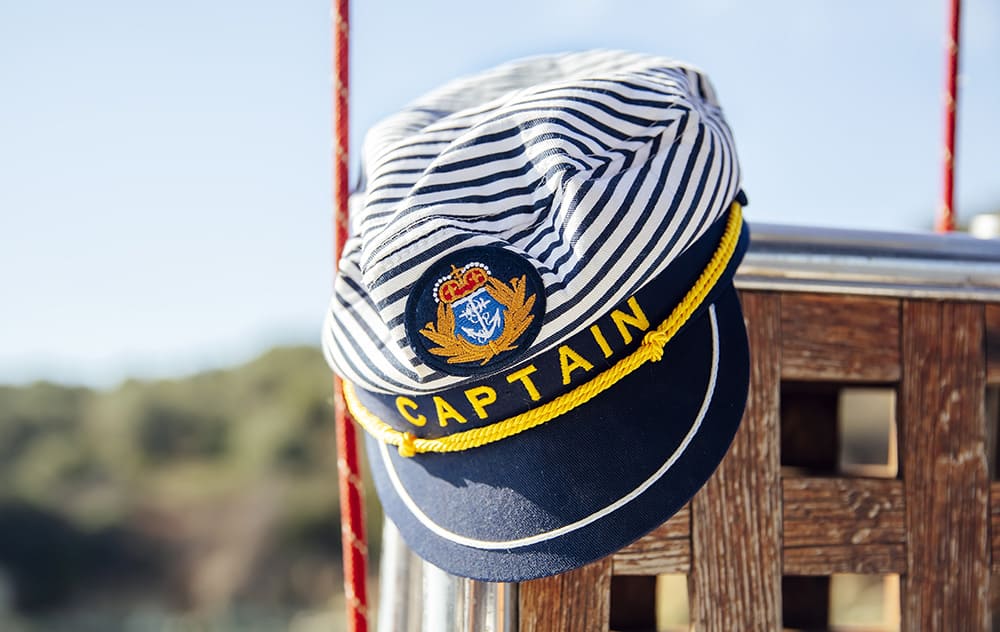
The “captain” word features a Latin origin, where “caput,” plural – “capita,” in Latin means “head.” There are many words like captain, capital, chapter, capsize, and many others, deriving from the Latin caput. All these words refer to a head but in a different measure.
The existence of the skipper word does not make a captain anything less desirable. A captain on a boat is the one in charge of everything. If she is a big boat, like a trans-Atlantic cruise liner, he is in charge of thousands of lives and controls a huge amount of things alone!
TIP Wondering how much do cruise ship captains make? Check!
Just a reminder, we still speak about the same person named either captain or skipper depending on the context.
A captain is always neat and trim, and you necessarily expect him to wear a snow-white uniform and a cap (we can see the same Latin root in the latter). The captain is the definition of order, he is a certified ultimate professional, he is the law on a ship, he is assigned for that, and it is his duty.
Difference Between Skipper and Captain
A captain is responsible for the ship, while a skipper has pulled it as a free choice!
Captain’s duty gives no right to be unpredictable, while Skipper is for that (but we speak about the same person named differently, remember?) The name of the principal penguin in “Madagascar” movie was Skipper, the leader of the penguin gang – just recall his commanding style and how he was driving an airplane. That’s the real Skipper.
We address a Skipper of a sailboat as Captain: “howdy, Captain?” but we refer to him using either word depending on what we want to express.
The “captain” word is also an official term but interchangeable even though being official: for example, my sailing license states I’m a skipper , but it means I can captain yachts.
You say “captain” if you want to compliment a person, as if you are giving him a rank of a captain, showing endless respect and obedience, also acknowledging his unreachable position.
You say “skipper” when your goal is to emphasize emotion and a wilderness of a captain. You refer this way to stress your captain is a dude. You hardly wish to call a “uniform” a dude, right?
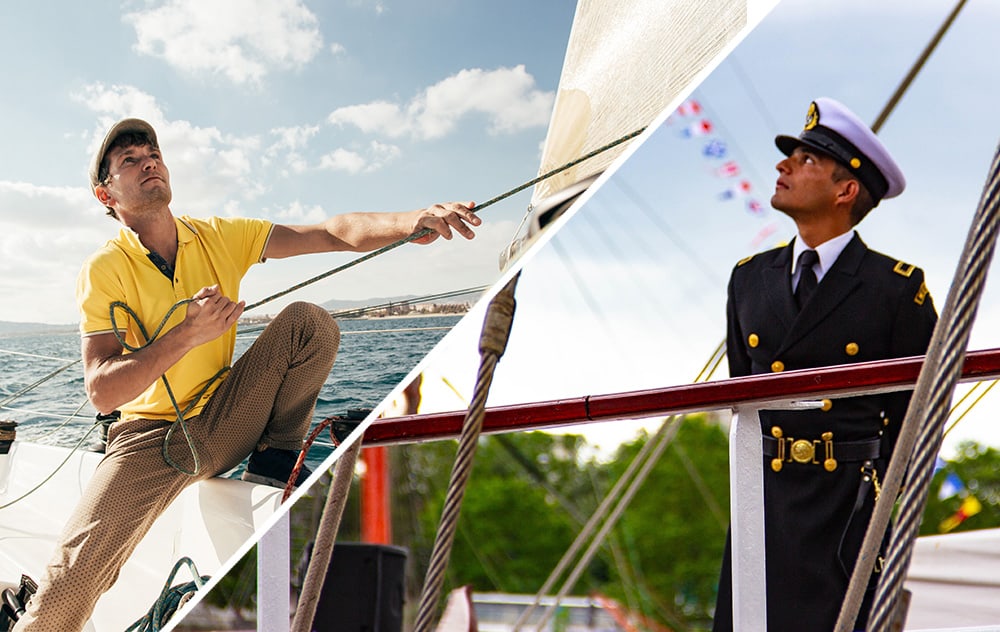
- Usually, the captains of bigger ships are called “captains,” applying that there is a permanent crew of significant size. Such captains are assigned for the job and are subsequently on duty.
- The captains of pleasure yachts are usually referred to as “skippers” because there is no formal assignment, and they are free people going anywhere they want, at any moment they want.
- Yet, in the official papers in the ports, both types are “captains.”
- Saying captain, you imagine a white uniform and a cap on top.
- Saying skipper, you imagine a confident pirate, yo-ho-ho, “and a bottle of rum,” adding up how skippers of pleasure boats tend to perform nearly insane maneuvers from time to time.
None of the two words is “higher.” Both words mean the masters of the sea.
So we can see “skipper” is an emotional word, while “captain” is an official term, and they both represent the same person (what we call interchangeable), but they stress way different contexts.
Here we have listed a bunch of definitions :
- Skipper is the (life-) style.
- Captain is the (official) position.
- On a cruise ship, you are a captain.
- Hunting whales you are a skipper.
- On “Titanic” he was likely a captain.
- On “Cutty Sark” he was definitely a skipper.
If you saw the movie “Master and Commander,” Captain Jack Aubrey owned HMS “Surprise,” he was not hired for her. As a navy officer, he bent his orders and put the crew at risk while chasing a wartime enemy; it was both his duty and a desperate wish to take the prize. Does it come as a conflicting definition? Let’s name him a skipper.
Yes, you can call even an aircraft carrier’s Captain a Skipper, then you emphasize that he is a reckless, pirate-minded type of commander, he is in love with what he is doing, and he acts as if she is his ship.
What is the difference between a skipper and a captain – I have told you all I know; the words, however, are mostly interchangeable. The difference is purely emotional.
Till the next time, Skipper… or Captain!
Disclaimers
All product names, logos, and brands are property of their respective owners. All company, product and service names used in this website are for identification purposes only. Use of these names, logos, and brands does not imply endorsement.
It is our policy to make every effort to respect the copyrights of outside parties. If you believe that your copyright has been misused, please provide us with a message stating your position and we will endeavor to correct any misuse immediately.
Some of the links in this post are affiliate links. As an Amazon Associate, we earn from qualifying purchases. This means if you click on the link and purchase the item, we may receive an affiliate commission, at no extra cost to you. This helps us keep this website alive. Learn more here .

Hi, I’m Igor, Skipper of S/Y "The Hooker". A decade ago, I conquered my childhood dream: to be a sailing skipper, own a sailing yacht. Yes, it knocked dullness out of my urban life — Read more →
One comment
Thanks for the information! This is really helpful and gives me a clear picture of the differences between skipper and captain.
Leave a Reply Cancel Reply
Your email address will not be published. Required fields are marked *
Name *
Email *
Add Comment *
Save my name, email, and website in this browser for the next time I comment.
Post Comment
Related Posts

What is a Boat Rooster Tail and How to Throw a Rooster Trail
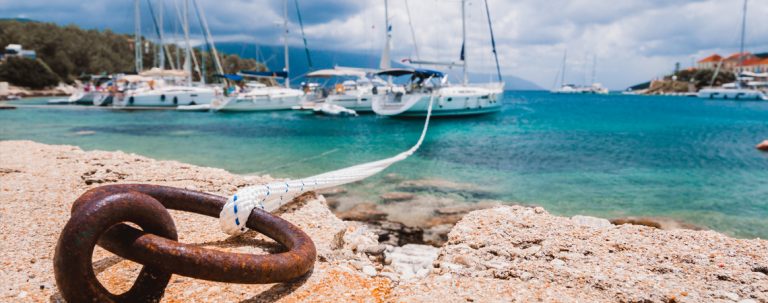
How to Beach a Boat & Best Boat Beach Anchors

Where is the Best Place to Store a Fire Extinguisher on a Boat
Amazon Disclosure
DesperateSailors.com is a participant in the Amazon Services LLC Associates Program, an affiliate advertising program designed to provide a means for sites to earn advertising fees by advertising and linking to Amazon.com. As an Amazon Associate, we earn from qualifying purchases. Amazon and the Amazon logo are trademarks of Amazon.com, Inc., or its affiliates.
Please refer to our Privacy & Affiliate policy for more details.
- Exploring the Role of a Skipper in Boating and Sailing
The term " skipper " holds a prominent place in the world of boating and sailing, representing the individual tasked with the operation, navigation, and overall management of a vessel. Whether it's a small boat, a luxurious yacht, or a sailing dinghy, the skipper plays a crucial role in ensuring the safety and smooth functioning of the maritime journey.
Boat Skipper and Yacht Skipper:
The title "boat skipper" is a broad term encompassing individuals in charge of various types of boats , while a "yacht skipper" specifically denotes someone overseeing the operations of a yacht. Both positions require a comprehensive understanding of navigation, safety protocols, and the ability to make informed decisions while at sea.
Charter Skipper:
In the realm of chartering, where individuals or groups rent boats for recreational purposes, a charter skipper may be hired. This professional takes the helm for those who may lack the necessary expertise, ensuring a safe and enjoyable experience for all on board.
Sailing Skipper and Skipper 12 Sailing Dinghy:
A "sailing skipper" is someone well-versed in the intricacies of sailing, adept at harnessing the power of the wind to navigate the waters effectively. Meanwhile, a "Skipper 12" refers to a specific type of sailing dinghy , a smaller boat designed for sailing enthusiasts.
Read our top notch articles on topics such as sailing, sailing tips and destinations in our Magazine.
Sailing a Yacht for the First Time:
For those embarking on their maiden voyage aboard a yacht, having an experienced skipper on board is often recommended. Navigating a yacht for the first time can be a complex endeavor, and the guidance of a seasoned skipper ensures a smoother introduction to this maritime adventure.
Hiring a Skipper:
Individuals who own boats but lack the necessary skills or time to operate them may opt to hire a skipper. This allows them to enjoy the pleasures of boating without the responsibilities and challenges associated with captaining the vessel
Read more useful sailing tips:
How to become a yacht/boat skipper:.
Aspiring skippers often undergo training and certification processes to acquire the skills and knowledge needed for the role. This may involve learning about navigation, safety procedures, and gaining hands-on experience in boat handling.
Skippers Choice Marine Supply:
In the marine industry, businesses like "Skippers Choice Marine Supply" cater to the needs of skippers and boat enthusiasts, providing a range of products and services to enhance the boating experience.
In conclusion, the term "skipper" encompasses a diverse range of roles in the maritime world, from steering a small boat to captaining a luxurious yacht. Whether hired for a charter, sought for guidance in sailing, or responsible for the day-to-day operation of a vessel, the skipper is a central figure in the world of boating and sailing, ensuring safe and enjoyable journeys on the water.
So what are you waiting for? Take a look at our range of charter boats and head to some of our favourite sailing destinations .
Better Sailing
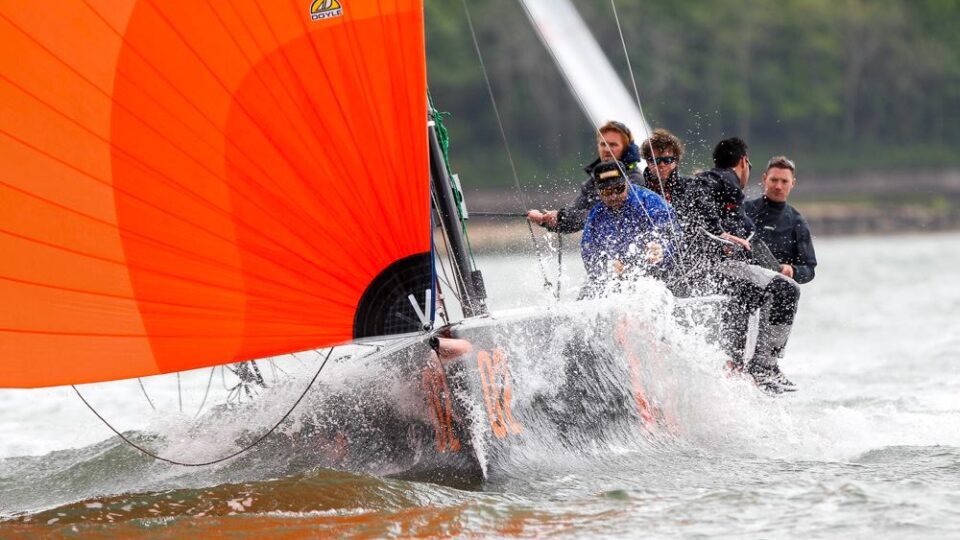
Sailing Crew Roles and Names
The skipper is responsible for the safety of the yacht and the crew’s welfare. However, sailing a boat successfully requires teamwork from the skipper and the crew. This will ensure that all maneuvers—such as leaving a mooring, hoisting sails, changing tacks, reefing, or entering a marina—can be completed with maximum enjoyment and minimum stress.
Boat Captain/Skipper
It may come as a shock, but the skipper is not necessarily the helm. This crew member must ensure that the boat is ready for sailing. He or she needs to make sure that all members of the crew are accounted for. They also need to make sure that food and fuel are sufficient, and sails are ready for hoisting. The skipper is in charge of keeping communications open onboard and help other crew members if needed. Also, they are usually responsible for talking the whole crew through maneuvers as they are about to happen and making sure that all crew members are ready.
What Makes A Good Skipper?
- Responsibility : The skipper is responsible for all aspects of the running of the yacht, its safety, and the crew’s wellbeing.
- Skills : He or she should be comfortable with sailing and navigation skills, inspire confidence in their crew, and be a good communicator.
- Delegation : A good skipper should keep on top of all his or her duties and give the crew tasks that are appropriate to their experience.
- Patience : He or she should be patient with inexperienced crew members and be able to run the yacht with a light touch while retaining respect and authority.
- Briefing : It is the skipper’s role to plan the passage in detail before setting sail.
- Involvement : A good skipper will also encourage the crew to get involved in passage planning and navigation and will always listen to their opinions.
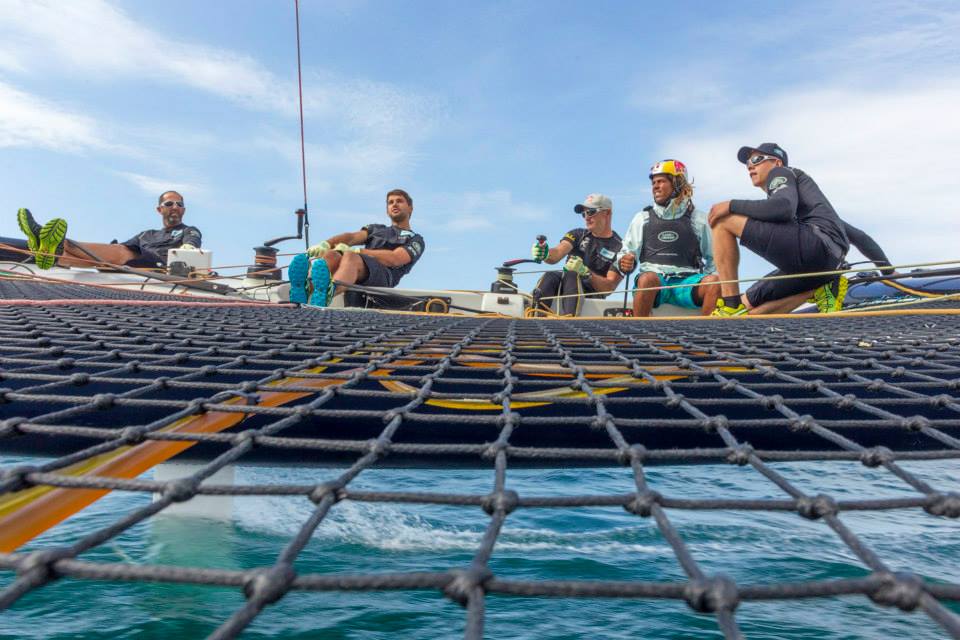
Tactician
The tactician’s role is to get the boat around the racecourse as fast as possible. For that, he needs to take into account the wind, tide, and other competitors, as well as the crew’s ability. They also need to make sure that the boat has the correct course. In short, the tactician is the brains of the sailboat. The tactician must communicate with the helm and skipper to run through maneuvers.
The Helm (Driver)
The Helm is often mistakenly perceived as the skipper. This crew role is to steer the boat where the tactician says and to keep sailing as fast as possible. The helm is also helping with other tasks, but they must focus on the job at hand as much as possible. The helm and the tactician must be in close communication with each other.
Head Sail Trimmers
This crew role is for two members, one who will cut release the sail when going through the tack while the other pulls in the full sail. The crew member releasing can then assist with tailing the sail or trimming it – which is a good example of teamwork. Also, the trimmer should keep adjusting the sail, depending on the point of sail, and should be very focused on that task. Also, the trimmers are in charge of trimming the spinnaker sail and guy when going downwind. Main communication is kept between each other, boat captain and tactician. Pre-start these guys will have a lot to do!
This crew member is in control of all sail hoists and drops depending on the wind. The bowman spends most of their time on the foredeck (the deck at the forward part of the sailboat), preparing for spinnaker hoists, gibes, and drops.
This crew member is a combination of both the bowman and mastman. They are in control of all of the running rigging which comes into the cockpit. This is a vital role and always in the middle of the action. Pitmans must keep communication is between bowman, mast man, and skipper—the eyes and ears for the foredeck crew.
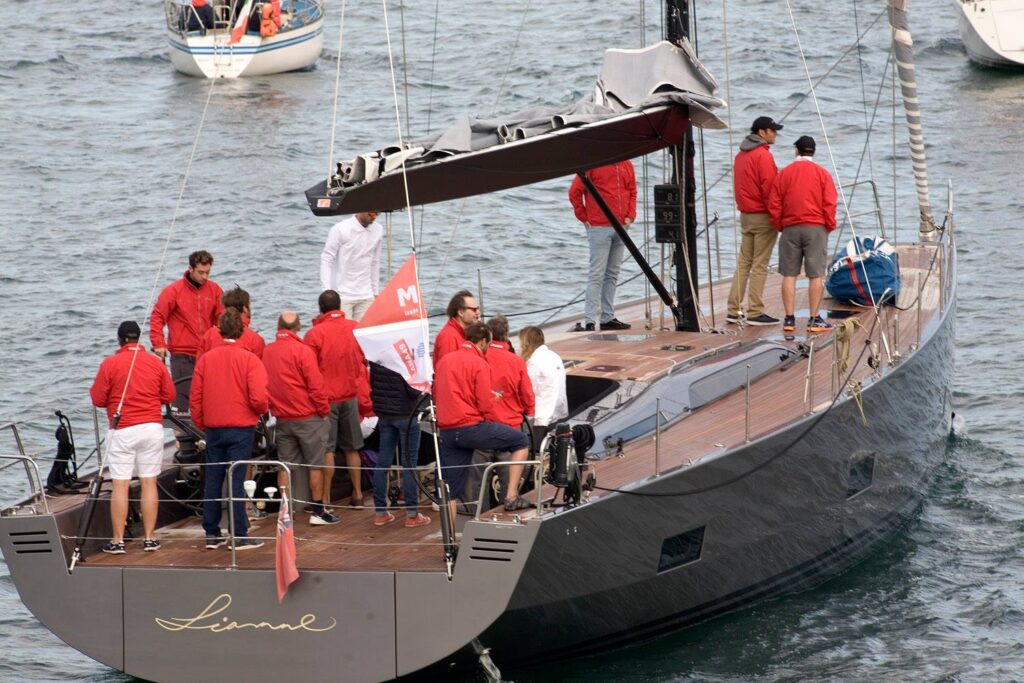
This position is reserved for the stronger members of the crew. A mastman’s foremost task is to assist with the speedy hoisting of the sails during maneuvers. The mast man and bowman go hand in hand and help each other on hoists and drops. The main communication is with the bowman, pitman, and skipper.
No sailing team is complete without its ballast crew members that help to balance the boat in order to reach its top possible speeds and maneuverability. These members of the crew are called ‘ballast’ and are key when racing for the mark. Ballast crew members have the best seat in the house.
What Makes a Good Crew Member?
- Key qualities : All crew members require a positive attitude, sense of humor, and the ability to get along with others in the confined space aboard a cruiser.
- Willingness to Learn : Good crew members are willing to learn and to take an active role in all aspects of running the yacht.
- Attentive : Diligent crew listen to the instructions carefully and ask questions if they do not understand anything.
- Working As a Team : All members of the crew must remember that they are part of a team. A happy gathering in the cockpit at the end of the passage is an indicator that each member of the crew has done their job.
Peter is the editor of Better Sailing. He has sailed for countless hours and has maintained his own boats and sailboats for years. After years of trial and error, he decided to start this website to share the knowledge.
Related Posts
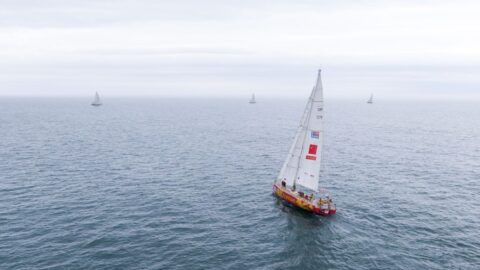
Atlantic vs Pacific: Which is More Dangerous for Sailing?

Why Do Sailboats Lean?

How Does a Boat Sail Upwind? Unveiling the Mechanics of Against the Wind Sailing

How Does Sailing Work? The Physics of Sailing
- Buyer's Guide
- Destinations
- Maintenance
- Sailing Info
Hit enter to search or ESC to close.
- Yachting World
- Digital Edition

How to be a good skipper: ooze calm and confidence but don’t shout!
- March 29, 2016
No two skippers are the same and everyone has different leadership styles, but Chris Tibbs believes certain traits will make you into a skipper that crew will want to sail with

Photo: Mahina Expeditions
We become skippers by a number of different routes; many dinghy sailors will eventually become yacht owners after years of crewing on different yachts. Sea schools are well attended and boats are often keen to take on crew from schools, allowing students to gain experience and miles to help with qualification.
There are also many people who come to sailing later in life; after buying a boat, these people tend to learn from the experience of sailing their own yacht.
I think it is also fair to say that, along with the many ways of getting into sailing and becoming a skipper, good skippers will have different leadership styles – no two are the same. Over the years, having sailed with many different skippers, I have noticed a number of common traits in a good skipper.
By melding together the points I like in a skipper this has hopefully made me a better skipper, both for when I was working commercially running yachts, and now aboard my own.

Photos: Paul Wyeth
I find that a skipper who is calm and confident goes a long way to maintaining a nice feel to a boat. Easily said, but it is a fine balance between confidence and arrogance; and being too laidback can give an impression of laziness, extending to preparations and maintenance. Staying calm and in control during a crisis rubs off on the whole crew and the boat becomes much quieter and under control.
Don’t shout
There is plenty of time for a please and thank you, along with an explanation of what needs doing and how it should be done. It also gives time to work on a solution to any problems and avoids panicked decisions. This is communication in a way that is effective and also pleasant.
People dislike being shouted at (I certainly do); it inhibits crew doing their job as they are afraid of getting it wrong, so they wait until told to do something. This can be very frustrating for a skipper, particularly when racing and the pressure is on, which in turn leads to more shouting.
Article continues below…

ARC weather man Chris Tibbs prepares his boat for ocean cruising
When we bought our Wauquiez Centurion 40s, Taistealai, for ocean cruising, starting with the ARC this year, we had a…
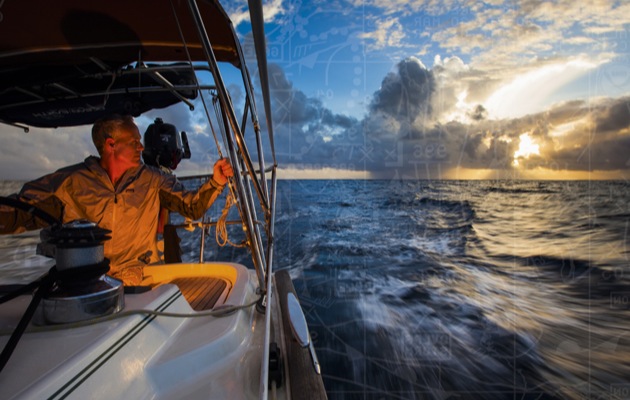
Offshore weather planning: the options for receiving weather data at sea
When I skippered a yacht in the first Atlantic Rally for Cruisers (ARC) 30 years ago the weather planning information…
I equate the amount of noise on board to be in inverse proportion to the sum of knowledge. I do find that being on a boat with a skipper who stands behind the wheel shouting at the crew is not much fun and, if asked back, will generally decline the invitation.
There is something great about helming your own boat in a race, but if you are also trying to run all aspects of the boat from behind the helm you can get stressed. Then your helming declines as your concentration jumps from one task to another.
It is much better to have a crew boss or mate who controls the running of the boat, managing manoeuvring instructions and allowing the skipper to concentrate on helming. The alternative is for the skipper to manage the running of the boat and have a different helmsman. Large racing boats will often have separate helmsman, navigator and tactician, with the skipper in overall control.

This is another important lesson: delegation and training. There are many decisions taken on board that really do not need to involve the skipper once a general plan has been made.
For example, does the skipper really need to micromanage all the food that is bought for a transatlantic passage ? By delegating a large proportion of the running of the yacht to others it does free up the skipper to focus attention on the more important issues.
5 top tips for a good skipper
- Communicate clearly.
- Stay calm and confident.
- Promote fairness and listen to your crew (treat them with respect).
- Be cheerfully available at all times, whenever called.
- Act decisively.
I skippered a yacht in the BT Global Challenge where everyone on board had an area of responsibility, although things would be discussed. We split things up in a number of ways: for example, one crewmember, who worked in the oil industry, was the safety officer.
It was their responsibility to make sure all our safety equipment was in working order and serviced. They would also give a safety briefing to new crewmembers as to where equipment was stowed and how it should be used.
By giving responsibility to a crewmember, it relieves some of the skipper’s duties, but more importantly it helps crew quickly become part of the team. During the last ARC one of our crew arrived only a couple of days before the start – immediately he set to work on a jobs list and his comment afterwards was that it allowed him to familiarise himself with the boat and made him feel part of the crew.
Part of the skipper’s job is to explain and teach; it is pointless to get angry at a crewmember for doing something wrong if they have never been shown how to do it right.
Although it is often easier to do something yourself than explain how it should be done, it is important for other members of the crew to be able to tackle particular jobs.
Then if something needs doing in a stressful situation they will not be doing it for the first time under pressure, when something is very likely to go wrong.
Some crew may not be very experienced, but all should be willing to learn – with a bit of help and encouragement they will soon become efficient crewmembers, whether for a day’s sail, or an ocean passage . I find it easier to hand over the helm when showing what I would like done rather than trying to do it from a fixed place with divided concentration.
You only have to watch manoeuvres in a marina for a short time to spot a boat getting into difficulties and a significant amount of shouting and swearing starts. The skipper has lost control of the boat and will shortly lose control of the crew, then will spend a long time contemplating the wonders of single-handed sailing.
It is important to get away from the blame culture. If something is done wrong a quiet word will be more effective than balling somebody out; most people are upset when they do something wrong and I see no point in making it worst by public humiliation.

As a skipper it is important always to be available and never to be upset or grumpy at being called, even if it turns out not to be necessary. I recall one dark night in the English Channel when the crew on watch were discussing a ship.
One was quite certain that we were passing behind the ship, the other equally certain we were passing in front. On hearing this I got up to find that there was a ship close by and where one crew was seeing the running lights, the second was seeing lights at the stern and in front of us was a wall of steel! A (very) quick gybe and all was well.
I will never ask anyone to do something that I would not be prepared to do myself; whether changing a sail on the foredeck at night in a gale, or climbing the mast . While younger, fitter crewmembers might be better suited to the task, is it safe or right for them to do it? I look at the task and ask myself would I do it? If the answer is yes I do it myself or, if the volunteer will do it better, then I may be persuaded.
If however the answer is no, then we must find another solution. As I get older I may have to change my thinking as it gets more difficult to do the tougher physical activities.

Safety first – Angus Fuller
- Safety, safety, safety – make this a priority, not just on deck, but below: in the galley, moving in the interior, even in the heads.
- Wear lifejackets at night. Always.
- Respect the environment, particularly with a view to pollution.
- Remember you can’t do everything so delegate/rely on crew wherever possible.
- Carry out drills before departure, ensure all crew understand their roles during any scenario. At halfway, have a chat, table top drill or even a full drill in order to keep the crew refreshed.
- Pay attention to detail. This applies to pretty much everything, from maintenance of systems to presentation of the yacht to monitoring the weather .
- Communicate the plan to the crew: a daily briefing on weather (lunch time is ideal), route, any change in this owing to weather and why. At sunset, issue night orders for changes in wind speed and direction.
- Ensure clear parameters are set with the crew so they know when to wake the skipper in the event of changes in weather, shipping, landfall, etc.
- Never be afraid to brief the crew before a manoeuvre – and a debrief after a manoeuvre can be a very useful process for both the skipper and crew.
- Reef when you first think about it – invariably performance doesn’t suffer that much (and is often improved) if it’s a marginal decision.
- Aim to have the yacht arrive in the same condition, or preferably better, than when you departed. By definition this means you will be looking after the yacht properly during the passage.
- Know the cruising area or stretch of water being transited. If you don’t, then heavily research it.
- Exercise seamanship to the very best of your ability at all times and instil this in your watch leaders from the outset.
- Assemble a crew who aren’t just good sailors, but compatible personalities too.
Fairness is all
You also need to be fair, whether this means splitting the watch times so all the crew are happy, or balancing meals and meal preparation. Fairness is important and it is easy to fall into routines where one person feels unfairly treated.
At the start of a long ocean passage on my boat one crewmember, who did not suffer from seasickness , ended up making drinks and snacks for everyone; this became the norm and after a few days they became unhappy because they were doing more than their fair share of galley duties.
Small things like that can quickly become big on a boat at sea. Another time I had a habit of always running the generator and watermaker at the same time of day; this became annoying for the off-watch as it made sleep more difficult, something I was not aware of at first as it did not affect me. Having a time where everyone comes together, maybe meal times, can be a good time to address small issues before they get bigger.

Part of a skipper’s responsibility to the crew is safety and this is not only their direct personal safety, but also the maintenance of the boat and equipment.
I find it useful to have plenty of discussions about what could go wrong and the equipment we have on board and how it can be used.
Man overboard practices and fire drills should be done as a matter of course, but it not always that easy, particularly on short voyages. However, a safety briefing should be done for all new crewmembers even if they are only on board for a daysail.
What is perhaps not so comfortable for skippers is having to resolve interpersonal problems. This may just involve switching the watch system around, or may mean you have to ask someone to leave: not a nice job for anyone to have to do, but a happy boat tends to be a safer boat – and faster if racing.
One problem that can become an issue on races and rallies is how hard the boat will be pushed. What might be pushing hard for a racing person will be different for a cruiser and it is easy for people to become apprehensive (or plain scared) when out of their comfort zone.
Then there is the issue of money on cost sharing or paying your way boats. It is important before committing to sail together to have a firm agreement on what is expected on both sides.
It should also be clear who is paying travel costs as, although a boat may be legally responsible for repatriating crew, most non-commercial yachts expect crewmembers to be responsible for their own travel.
Who’s the leader?
There can be times when a crewmember may be as experienced (or maybe more so) than the skipper. This can cause tension and insecurity in the skipper’s position.
For a day or so it should not be a problem, but on a longer passage a feeling of being undermined can set in. As a skipper it is useful to be open to ideas, they may be better than yours as everyone’s experiences are different, but at the end of the day the yacht is your responsibility.
Trying to get a balance between listening to, but being able to reject ideas may not be easy and can be a difficulty when taking on crew that you may not have sailed with in the past.
I have seen this a number of times in the ARC where a boat has taken on an experienced crewmember, but it has blurred the lines as to who is the skipper and caused tension.
I do find choosing a crew difficult; it does partly depend on what I am intending to do. For a long passage an enthusiastic, positive person will make up for any shortcomings in experience.
We all have to live together so getting on is important, along with a willingness to share all tasks. As we are sharing our boat, which is our pride and joy, respecting and looking after it should be a priority.
Damage will occur and owners/skippers need to be prepared for this, but a carelessly dropped saucepan on the newly varnished cabin sole is avoidable and immensely irritating.
My ultimate test is: would I be happy working on the foredeck in bad conditions with this person? A definite no-no for me is laziness, particularly crew not willing to muck in with the bad bits as well as the good.

Speak to your crew – Tom Cunliffe
- Communication is key. No ‘mushroom management‘.
- Listen/watch, crew and boat.
- Remain cheerful, or at least positive, even when woken during your watch below.
- Above all, make sure all hands are running on the same ‘motivation fuel tank‘. If they all want the same thing, you are three-quarters of the way to a happy ship.
- By all means communicate legitimate concerns, but never irrational anxieties.
- Sit down before you start, agree ship’s articles and all sign them. Everyone must know their duties. If money is involved, details of this must also be inscribed, as well as a probable route with contingencies. Then, when things turn to the bad and aggro starts, you get out the articles and read them together. End of problem (given to me by one crew of Sandefjord , which sailed in the 1950s from South Africa).
Judging competence
Choosing a skipper also has its pitfalls. Experience and competence is difficult to judge on first meeting and going for a sail together is important. Personally I would avoid a shouter at all costs.
Competence levels are more difficult to measure, but a well-run, tidy boat is a good indicator while one with a long jobs list could indicate that things have slipped.
A quick look in the bilges and at the engine can give a clue as to maintenance and a check on lifejackets will show thoughts on safety. I recently did a safety check on a yacht for an event to find that the owners had brand new top of the range lifejackets for themselves while the crew ones were old, without lights or sprayhoods. I am not sure I would have enjoyed sailing on that boat!
Skippering a yacht well is not an easy task, there are so many aspects to the job. It becomes easier with experience and there is no substitute for miles sailed. Good sailors are not necessarily great skippers, but good skippers must also be good sailors.
I have a great deal of respect for the late Sir Peter Blake and, although I never had the privilege to sail with him, I sailed against him on two Whitbread Round the World races . He always found time to have a friendly word and generated great crew loyalty on board his boats.

Be the best leader you can – Jim Thom
- It’s becoming progressively easier to access sophisticated weather information. A good skipper will prepare the yacht for the actual weather, not the forecast he/she’d like.
- Monitor the yacht’s position and the conditions, high and low-tech, from radar/chart plotter to barometer. Even though electronics are increasingly failsafe, a good skipper keeps a record on paper, in the log and on a chart – even the most advanced yachts can be struck by lightning , or suffer power failure . A good skipper will also listen to their senses, and to their sixth sense. They’ll ask themselves where that low swell is coming from or why the seas have become steeper. Shallow reefs may tint the underside of clouds green or blue, and the sound of breakers will hopefully never come as a surprise. Rain has a distinctive smell at sea, as does land and your nose will tell you when ice is near.
- A good skipper will look for the ‘horseshoe nail’ – lost from the messenger’s horse, it triggered the chain of events that lost a kingdom. Regular checks of the yacht, including sails and rig, deck fittings, bilges, steering, engine and machinery, will help the skipper and crew stay ahead of the law of entropy, and out of the incident pit.
- Create a flexible structure without being overly prescriptive. Agree standard practice with the crew: how lines should be made off on a cleat; how to use and make fast on a winch, how to shake out a reef, how to make engine checks, etc. Establishing basic procedures avoids surprises and allows crew to develop skills and think further. A good skipper will prevent boredom and apathy by agreeing daily routine maintenance tasks and helping to develop projects that improve the yacht and teach useful skills on board.
- A good skipper’s best attributes are not related to technical expertise, but to self management, leadership and communication skills. If you develop a set of team and personal goals then a common understanding will prevent many hot spots from forming.
- A good skipper will try to manage their own emotions, knowing the effect they can have on morale. They’ll keep an eye on each member of crew and on the mood of the team, finding reasons to celebrate together – crossing the line, halfway point, a birthday, a good day’s run, or just a great day at sea.
About the authors
Chris Tibbs is a meteorology and weather router, as well as a professional sailor and navigator, forecasting for Olympic teams and the ARC rally.
Angus Fuller is a professional skipper, MCA Chief Mate 3000GT (yachts), who has made 29 transatlantic crossings, 21 as skipper, and one transpacific crossing as skipper, plus one circumnavigation upwind and sailed over 300,000 miles.
Jim Thom has been skipper of a Robert Clarke sail training yacht, a Baltic trader, a Clipper Round the World Race yacht and for four years was captain of the Fife design Kentra . From 2003-2012 he was captain of the 125ft Fife 19 Metre Mariquita with his wife, Lucy, as mate.
Tom Cunliffe is a Yachtmaster Instructor Examiner, author of numerous books on seamanship and is a contributor to Yachting World , responsible for our ‘Great Seamanship’ features.
Search form
Top qualities of great skippers and advice for skippers and crew.
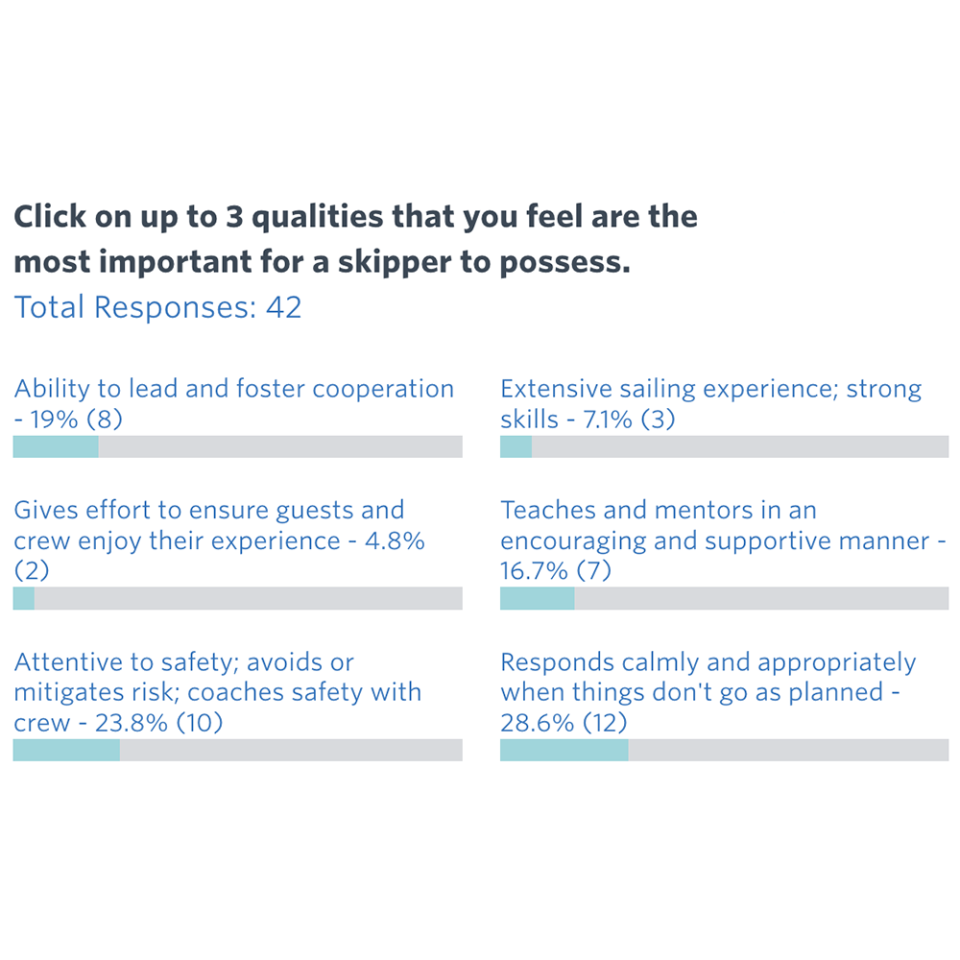
What are the qualities of a great skipper? We asked this question with a survey in our March 31 weekly newsletter on on social media, and here are the results! We’ve listed them in order of least important to most important based on the ratio of your responses.
These qualities may be second-nature to many experienced skippers. For new skippers, these skills will come with preparation and practice. Since a sailor can never be too prepared, we hope that skippers and crew alike will benefit from the advice provided below.
6) Gives effort to ensure guests and crew enjoy their experience. (2 responses / 4.8% of total responses)
Advice for Skippers
Club Skipper Bob Gutgsell said it best when he commented on Facebook: “Understand everyone is on the boat for a different reason and respect that reason.”
Take a moment before departure to have a quick chat with each crew member to find out their level of experience, their expectations, and how much they want (or feel able) to participate in the operation of the boat. Encourage everyone to participate, learn, and practice, but avoid pressuring less experienced, hesistant crew members to perform tasks that they may be unprepared for.
Advice for Crew
Taking ownership of your own comfort and enjoyment will help free up your skipper to focus on safety and leadership.
- Plan ahead by bringing your own safety gear, clothing, beverages, and snacks or meals.
- Ask your skipper if this will be a “dry” sail. If yes, stow any alcoholic beverages you may have brought down below to be enjoyed at the end of the day when the boat is safely back in her dock slip. Remember that if even one person aboard is found intoxicated and an accident occurs, Coast Guard rules have it that the skipper will be held liable. Learn more: https://www.boatus.org/study-guide/planning/bui
- Consider packing extra clothing and/or blankets, ginger candies for upset tummies, or hot beverages to share with your crewmates. Every crew member on board, not just the skipper, can help their crewmates have a good time. Learn more: What to Wear Sailing SF Bay
5) Extensive sailing experience; strong skills (3 responses / 7.1% of responses)
“[Great skippers] have knowledge and are open to learning. I learn something every time I sail.” ~ Bob Gutgsell
It is great news for some of our recent ASA 103, Basic Coastal Cruising and ASA 104, Bareboat Cruising graduates that experience isn't as important when compared to other qualities. So, don’t let a lack of experience mire your confidence. Instead, boost your mindfulness to the qualities that matter most to your crew in the present.
Be supportive and understanding with less experienced crewmates and skippers. Each and every one of us are always learning, including skippers like Bob who have decades of sailing experience.
4) Teaches and mentors in a supportive and encouraging manner. (7 responses / 16.7% of responses)
“A good skipper understands the importance of using proper nautical terms, but also takes the times to ‘translate’ or explain them, so that crew learn to understand what exactly is being communicated.” Bernard Change
When you're the skipper, it’s inevitable that one of the roles you occupy is that of a mentor. Your crew will learn a lot from you, not only in the common nomenclature and habits that you encourage, but in your ability to teach in a manner that will be easily understood and well-received. Also, you have a rare opportunity to not only help build your crew members’ sailing skills, but to help boost their confidence, which can benefit their lives even when they are not on the water. Great skippers can leave a lasting impact on their crew – for the better.
At Modern Sailing, our ASA courses focus on teaching all of our students a common nomenclature that will streamline communication between skippers and crew. Nonetheless, there may be some variety in the way that skippers run their charters. As a member of a sailing club, you will greatly benefit by learning from a variety of skippers. Learn more about the benefits of sailing club membership .
If you’re not sure about something your skipper has asked of you, always ask for clarification. Respect your skipper’s style and do your best to learn from it, even if it’s not what you’re used to. Also, if your skipper is encouraging you to try something new, go for it! A great skipper will not put you or the boat in a situation that jeopardizes safety.
3) Ability to lead and foster cooperation (8 responses / 19% of responses)
If you’re looking to develop your leadership skills in your personal or professional life, being a sailboat skipper is excellent practice. Your crew members will arrive with a variety of abilities, interests, and personalities. Try to take the time to get to know what those are. It’s also important to know when to encourage a crew member to try an unfamiliar task and when to assign tasks to crew who will be most comfortable performing those tasks.
When preparing for a maneuver with inexperienced crew aboard, be certain that you have your crew’s full attention and take the time to clearly explain the steps involved in the manuever. When the crew indicates “ready,” then proceed with the manuever. Initiate necessary maneuvers as early as possible so your crew will have plenty of time to respond. Avoid "cutting it close."
Remember that you are a member of a diverse team that must work together to safely and efficiently operate the boat. Remain open-minded, try to learn something from everyone, and try to make learning fun while you’re at it. If you have a question or a safety concern, bring it to your skipper’s attention. Otherwise, defer to your skipper’s judgement and follow his or her instructions to the best of your ability.
2) Attentive to safety; avoids or mitigates risks; coaches safety with crew (10 responses, 23.8% of responses)
The safety and well-being of your crew and your vessel are literally in your hands. It's a big responsibility that builds character. A great skipper takes the safety aspect of the role with the utmost seriousness, attention, and care above all else. In the event of an emergency, your preparedness and decisions will affect everyone on board.
Reading the articles below will help with your preparedness in a variety of possbily challenging situations. If you can think of an important safety topic not covered in one of these articles, please let us know and we’ll write one up.
- The Crew Briefing – An Essential Safety Practice
- It’s easy to prevent the costly consequences of “prop wrap”
- Common Sailing Injuries and How to Prevent Them
- Handling Emergencies Part I: Predeparture Safety Checks
- Handling Emergencies Part II: Propulsion Loss and 10 Steps to Stay Safe until Help Arrives
- Handling Emergencies Part III: Safety Under Tow
- Steer Clear of San Francisco Bay Shipping Traffic
- How to Avoid Running Aground in SF Bay and What to Do if it Happens
- How to Find Your Way Back to Harbor in the Dark or Fog
- The Keys to Successful Summer Sailing on SF Bay
Your skipper has a vested interest in your safety, but safety is also the responsibility of every individual on board. If you behave in an unsafe manner, all are put at risk. “ We’re all in the same boat ,” as they say!
Every crew member should keep eyes open for boating traffic, floating debris, shoals, and other hazards. Don’t assume your skipper sees them – always speak up to be sure. We also recommend for every sailor to read the articles listed above. This will also contribute to skippers and crew "being on the same page."
1) Responds calmly and appropriately when things don't go as planned. (12 responses / 26.6% of responses)
“[Great skippers] don’t yell at you when you make a simple mistake.” – Andrew Collins
With the exception of a few adreneline junkies perhaps, most people don't like being yelled at. Yelling can trigger a fight/flight/freeze response that can render a crew member unable to respond efficiently. In other words, yelling can make a difficult situation even more difficult.
Survey respondents agree - the ability to keep your wits about you when plans are laid asunder is a highly-prized quality among sailors. When you can maintain your calm in a jam, you are better able to reason the next steps through logically. This is also an important aspect of safety.
Also, the more prepared and/or experienced you are, the more confident you'll be - and better able handle unwanted challenges with aplomb.
Remember that even the greatest skippers are still human beings. In a sticky situation, a skipper may raise his or her voice when needing crew to react to instructions quickly. Try not to take it personally and focus on doing what needs to be done to sail the boat. If you've had a fundamental disagreement with the skipper or feel you’ve been treated poorly, the best time to have a conversation with your skipper is at the end of the day, and preferably, keep it between the two of you.
Share This Page
Testimonials.
I've taken two classes at MSS&C and was very happy with the program. This is also a great club with lots of opportunities for camaraderie and practice on the water. The boats in the fleet are fantastic and kept in tip-top shape. I highly recommend for all sailors and would-be sailors!
The Full Moon Sail with Skipper Bob Gutsgell was Ah-Mayzing!! The group dynamic was lovely and the views spectacular. I can't say enough good things about the experience. Thanks so much for the wonderful Club Sails , they are really great.
We just took our ASA 106 at a school in Rhode Island as we prepare for 6 months of cruising in the Caribbean. The class was great, but more than anything it made us really appreciate the quality of teaching and rigor at Modern Sailing. Even though we were the newest to sailing, the group seemed to think that we had the best fundamentals. We felt very well prepared and we see why Modern Sailing has the reputation it does.
View All Testimonials
Follow us on Social Media

Modern Sailing School & Club
Sausalito Location 2310 Marinship Way, Sausalito, CA 94965 (415) 331-8250 (800) 995-1668
Berkeley Location 1 Spinnaker Way, Berkeley, CA 94710 (415) 331-8250 (800) 995-1668
Map / Directions
You are here.
- Yachts for Sale
- Sales Report 2024
- FAQ – Luxury Crewed Yacht Charters
- FAQ – Bareboat charters
- FAQ – Sell your Boat
- FAQ – Buying a Yacht
- How Much does it Cost to Charter a Luxury Yacht?
- All Blog Posts and News
- Yachting for beginners
- Indian Ocean
- Mediterranean
- Sales & New build
- Motor Yacht
- Event & News

Skipper’s Job and Responsibilities: What You Should Know
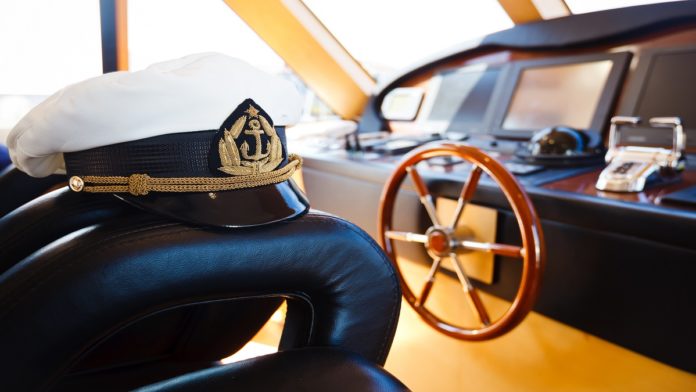
What exactly does the Skipper’s job entail? And what are their specific responsibilities? In this blog post, we’ll delve deeper into the world of sailing and explore the various duties and obligations.
What is a skipper?
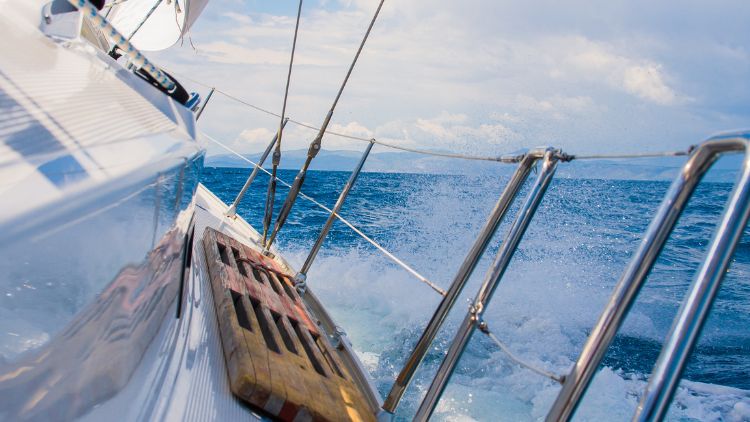
A skipper is great when you want to rent a bareboat but you do not have a licence
When it comes to renting a bareboat without a license, hiring a skipper is always a wise choice. This is especially true for people who lack the knowledge and experience to sail on their own, or for those who want to enjoy a stress-free and relaxing vacation on the water. But even experienced sailors may need to hire a skipper in certain situations, such as when they want to explore new waters or unfamiliar destinations, or when they simply want to sit back and enjoy the scenery without having to worry about navigation and other technicalities.
Hiring a skipper is a great idea to learn how to operate a boat safely
When embarking on a bareboat charter, it is essential to ensure that safety is the top priority. One great way to learn how to operate a boat safely is by hiring a skipper. Not only do skippers have years of experience operating boats in various conditions and environments, but they also have extensive knowledge of safety guidelines and protocols. By having a skipper on board, you can learn firsthand the best practices for navigating through unfamiliar waters, avoiding potential hazards, and handling emergency situations.
You could get a skipper if you don’t want the hassle and stress of handling the boat you are renting
If you are embarking on a bareboat charter but don’t have experience sailing a yacht or simply want to avoid the stress and hassle of doing it yourself, there’s no need to worry. Many charter companies offer the option of hiring a skipper to take care of the sailing for you. A skipper is a professional sailor who has the necessary expertise and qualifications to navigate the waters safely and efficiently. They are also knowledgeable about the area and can offer valuable insights on great destinations, local attractions, and hidden gems. Hiring a skipper can be an excellent choice if you want to sit back, relax, and enjoy the stunning views and warm breeze of the open sea without any worries.
Read also: Yacht Rental With Skipper And Hostess Vs Fully Crewed Charters
What is the difference between a skipper and a captain?
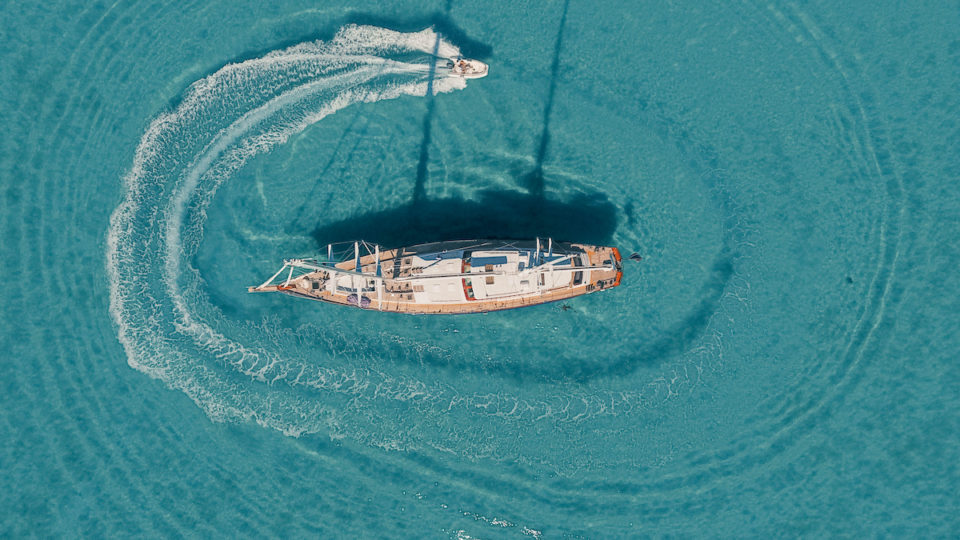
Like car licenses, there are different categories. But here’s the catch: it’s not just about the category, it’s about your practical experience and the miles in your logbook that really matter.
Believe it or not, you can charter a yacht in Europe with a Bareboat Skipper (IYT) / Inshore Skipper (ISSA) / Day Skipper (RYA) license. This beginner category allows you to sail 20 miles offshore during daylight hours in good weather. However, if you go beyond the 20-mile limit and encounter any issues with your yacht, your insurance might not cover it. Recently, some countries, like Greece, have started to impose restrictions on chartering yachts for skippers with “day licenses.”
The next category is the Coastal Skipper / Offshore Skipper. With this license, you can sail up to 60 miles offshore at night, still in good weather.
And finally, we have the highest category: Yachtmaster / Master of Yacht. With this prestigious license, you can embark on challenging sailing expeditions, including crossing the Atlantic. This license is truly a badge of honor among yacht owners.
What is the cost of a skipper?
The cost of hiring a skipper for a week can range from €250 to €350 per day. For a longer duration, the cost may decrease slightly. However, during peak season, the cost may be higher due to high demand. It is also important to note that in some countries, it is mandatory to hire a skipper if you do not have the necessary qualifications to sail.
Skipper’s job involves a lot of responsibilities that should not be taken lightly. Not only is he in charge of ensuring the safety of his passengers and crew, but he also plays a crucial role in protecting the marine environment and preserving its natural beauty.
Furthermore, Skipper must have extensive knowledge and experience to navigate the waters confidently and smoothly, as well as to handle any unexpected situations that may arise. He must also be an excellent communicator, able to easily convey important information to his passengers and crew, and be approachable and attentive to their needs.
Overall, being a Skipper is a challenging but rewarding career that demands a range of skills and capabilities. If you are planning a boat trip or thinking of pursuing a career as a boat captain yourself, it’s crucial to understand Skipper’s job and responsibilities fully. Only then can you appreciate just how much he does and how much he can contribute to making your boating experience safe, enjoyable, and memorable.
Read also: Mediterranean Yacht Charters: The Full Price List
RELATED ARTICLES MORE FROM AUTHOR
Luxury crewed yacht charters – frequently asked questions, luxury yachts for charter perfectly suited for 10 guests, trimaran vs catamaran: what are the differences.
- Testimonials
- Privacy Policy
- Open search box

A comprehensive guide to hiring the perfect yacht skipper
Essential skills, platforms to look at, and expert hiring advice. Dive into our comprehensive guide with a vetting checklist for your yacht's skipper.
Yachting evokes images of boundless freedom, where azure waters meet endless horizons, and luxury joins the primal allure of the sea. But beneath this dance of opulence and open waters, there's an art and science that ensures every voyage is seamless. The maestro? The yacht skipper. Sometimes, the boat owner assumes this pivotal role, while others may opt for hiring a professional crew.
In this article, we'll journey through the multifaceted role of a skipper, exploring the breadth of their responsibilities from navigation to guest relations. We'll guide you through the avenues available to find the right candidate, the crucial skills to look for, the intricacies of the hiring process, and a comprehensive checklist to assist you every step of the way.
Yacht crew recruitment: what is the skipper’s role?
On a motor yacht , crew configurations often reflect the owner's specific needs and desires. Some opt for a comprehensive setup, bringing roles such as the Chief Steward or Stewardess for tailored guest experiences, a dedicated Chef for gourmet dining, and, on larger yachts, a Purser for administrative oversight aboard. Conversely, others might prefer a streamlined team, focusing on only the essentials like a Chief Engineer for technical needs and a Deckhand for general upkeep. Yet, regardless of how expansive or minimalistic the crew setup is, central to all these configurations is the Skipper.

Countries like Malta, Bermuda, and the Bahamas allow skippers to officiate weddings on board, turning maritime journeys into romantic celebrations.
Where to find a yacht skipper?
The good news is you're never short of options. Whether guided by trusted endorsements, budget constraints, or a thirst for discovery, the horizon is dotted with promising leads. Here's where you might strike gold on your quest:
Source | Description | Pros | Cons |
|---|---|---|---|
Yacht Crew Agencies | Professional crew recruitment agencies are well-versed in the maritime industry and have a roster of qualified skippers. | Vetted candidates. Industry expertise. | Agency fees. Limited pool. |
Online Platforms | Dedicated websites and apps for yacht owners to post vacancies or browse skipper profiles. Often have reviews and ratings. | User reviews. Wide reach. | Varying reliability. Information overload. |
Maritime Schools & Training Institutes | Liaise with schools for graduates who are well-trained in modern navigational methods. | Fresh talent. Modern training. | Less experience. Narrow specializations. |
Word of Mouth | Personal recommendations from other boat owners, crew members, or maritime professionals. | Direct referrals. Trusted sources. | Biased views. Limited range. |
Yacht Clubs and Marinas | Hubs of networking within the yachting community. Members might know skippers familiar with local waters and regulations. | Local expertise. Networking opportunities. | Limited to region. May lack specialization |
Key skills to look for in a powerboat skipper
When evaluating potential skippers, it's easy to hone in on obvious attributes: vast sea hours, proficiency in navigation, and a commanding presence. While these traits are undoubtedly crucial, delving deeper might reveal other essential yet overlooked competencies. How often do we consider a skipper's adaptability in unforeseen scenarios? Or their capacity to foster crew cohesion? What about their finesse in guest relations?
To simplify this, we've categorized the critical skills into six distinct areas, providing a more transparent lens through which to assess potential candidates.

You will meet your skipper during the check-in procedure , where he/she will do the technicalities , after which he/she will help all guests with accommodation. When settled on the yacht, the guests will learn about safety onboard. The skipper on a yacht should get its own separate cabin (one of the inside cabins or the front cabin), as well as private time at the end of the day. Sleeping in the saloon is considered uncomfortable because it means that the skipper is the last to go to bed - and it creates discomfort if the guests like to stay up late.
Regarding food, the guests should provide the skipper with at least one warm meal a day and enough water. It is highly important to note that cooking is not a part of the skipper’s official duty.
Should there be any technical difficulties with the boat, the skipper is in charge to deal with those difficulties in accordance with the base. It is considered polite to give the skipper a hand in that process. The guests should be and feel safe at all costs.
All in all, both the skipper on a yacht and the guests should act civilized, polite and patient, and have fun on their sailing journey.

We use cookies to provide you with the best service on our website. If you stay on our website, you consent to our Cookies Policy .
Tell us about your dream holiday, and we'll make sure you get a personalised offer at the best price on the market.
Thank you for your message. We will get back to you as soon as possible.
We're looking forward to learn more about your dream holiday. The more info you send us, the more detailed and personalized offer we can provide.
You have succesfully submitted the details of your sailing trip. Your detailed and personalized offer is on its way.
Yachting Monthly
- Digital edition

Day Skipper: What you need to know to get through
- Theo Stocker
- September 25, 2020
With her husband Theo out of the way, Georgie Stocker shows on her Day Skipper course that she is more than capable of taking charge

Georgie wanted to complete a Day Skipper course to build confidence in her sailing ability. Credit:Theo Stocker
It was Theo who suggested I take my Day Skipper course.
I’ve grown up sailing, and even worked as a dinghy instructor for six months, but my yacht sailing career started as a competent sunbather on family charter holidays in Greece.
Later, I progressed to longer trips in cooler climates with my boyfriend, now husband, Theo, where, being just the two of us, I had a more active role and learnt far more.
We have done multiple trips on different boats.
I have rounded headlands, dodged fishing vessels and stood night watches.
As with many sailing couples, however, I defaulted to crew and left much of the navigation and pilotage in Theo’s capable hands.

Georgie wanted to learn and practice navigating a boat on her own during the Day Skipper course. Credit: Theo Stocker
My recurring nightmare when planning sailing trips with Theo is, ‘What would I do if he went overboard and would I be able to get him back? Would I manage if he was ill? Could I manage a boat on my own?’
These thoughts have been bugging me for a few years.
I hoped the Day Skipper course would increase my confidence in my sailing ability, help me to brush up on skills such as man overboard and coming in and out of berths.
I also wanted to learn and practise how I would go about planning a passage and navigating a boat on my own.
I wanted to know that I could go sailing without Theo and be an equal partner in planning, preparing and skippering our trips.
Theo was happy to help me prepare and I set about studying.

Plotting a course at the chart table. Credit: Theo Stocker
It was only when I started looking through the RYA course books that I realised the extent of the task I had taken on.
Tides, secondary ports, pilotage… it all seemed pretty overwhelming at first.
However, after a week’s holiday grudgingly spent doing navigation exercises and going through the theory, I began to feel like I was finally getting the hang of navigation.
I still felt a bit rusty though.
I had the course booked for the beginning of August and realised I hadn’t been on a boat, excluding the Norfolk Broads, for nearly a year.
Thankfully, a sailor at a local club offered to take me out on the water for a day to knock the rust off.
It was so useful to go over basic boat handling, safety, the engine and practical chartwork to get my sea legs back before the course.
After all this preparation I felt ready, albeit a bit nervous, especially after being grilled at the last minute by my dad on the phonetic alphabet.
Apparently ‘A for apple’ doesn’t quite cut it on VHF radio.
I did the course on the Solent with Commodore Yachting from Gosport, who were brilliant.
They had me on a shiny new Bavaria 37, which, considering most of my sailing had been on a 31ft yacht or smaller, was a bit daunting at first.
As the only woman and probably half the average age of the rest of the crew I was initially rather intimidated.
Continues below…

Night sailing tips for first timers
Cruising after dark doesn't need to be stressful. Toby Heppell shares his tops tips for night sailing

Competent Crew: On course for cruising harmony
Katy Stickland joined an RYA Competent Crew course to find out why instruction can make life as a sailing couple…

Best waterproof jackets and salopettes for offshore sailors
The biggest storm should be water off a duck’s back in these rugged offshore waterproofs. The YM team put six…

Best sailing jackets and pants for boaters
Sailing waterproofs needn’t break the bank. YM put seven sets of inshore and coastal oilskins under £350 to the test
The other two on the course both had their own boats and had been sailing for far longer than me, but they all were very friendly and I soon felt at my ease as one of the crew.
After some introductions I was set the task of planning the passage from Gosport to Cowes.
Equipped with my notes, and with the promise of a drink in the pub with the crew, I managed to get a passage planned in record time — for me.
The first two days were intense.
We took it in turns to skipper and plan the passages and pilotage.
We enjoyed great sailing and practised picking up mooring buoys — the lasso technique was my favourite, although I did get in trouble for not saying the required ‘Yee-hah!’ after throwing the line.
On the first night we conducted a night navigation exercise from Beaulieu to the Hamble.
I had done night passages before but never pilotage into a harbour at night .
I loved working out what all the lights were and using the leading lights to navigate in.
With the help of lots of cups of tea and biscuits, we managed to find our way safely into Swanwick Marina.
A slower start followed the next morning, with a full English breakfast and some time looking at engine maintenance and checks on board.

Crew and instructor kitted out for bad weather. Credit: Theo Stocker
With growing confidence in my abilities as a skipper, we were informed a storm was on its way.
Force 7-8 winds were forecast. Yikes!
Theo and I had been out in some windy conditions before, but it was going to put the first two days’ skills to the test, as well as my waterproofs .
Although I prefer sunshine and calmer waters, the thrill seeker in me relished the exhilaration of strong-wind sailing.
It was a great opportunity to practise coming alongside berths, picking up buoys and anchoring in adverse conditions.
I was surprised, however, when our instructor John shouted ‘Man overboard!’ and said the manoeuvre should be done under sail while the wind was gusting over 34 knots.
With the dummy safely aboard, we made our way into the shelter of Gosport.

Georgie had a lot of prior sailing experience before taking her Day Skipper course. Credit: Theo Stocker
After mooring up to a buoy we had chance to look at a bit more of the theory, including weather forecasts, towing and helicopter rescues.
The final day was spent refining our skills as well as finishing off the food stores.
It was a great week and a chance to hone new skills.
It was also the first time I had sailed without Theo in a long while and I think the course challenged me to step up to the role of skipper.
I feel I can now fend for myself afloat and am a lot more confident in my boat handling skills, my leadership, theory and general boat husbandry.
Theo was thrilled that I passed and relieved to know that, if he goes overboard, both his and my chances of survival have markedly improved.
Day Skipper skills
We practised picking up mooring buoys in different conditions: approaching on a close reach under mainsail as well as against the tide, approaching downwind under headsail.
A new technique I learnt was lassoing the buoy.

Georgie picks up a mooring buoy with a lasso. Credit: Theo Stocker
This is done by using a line and attaching to two cleats at the bow, ensuring that the line is forward of the forestay and over the anchor; then coiling the remainder of the lie on the approaching side and using a two-handed throwing method to lasso the buoy on the approach.
This is great in strong winds and tides as it gives time to use the lines to steady the boat so that the bowline/secondary buoy can be retrieved and brought on board without having to hold the weight of the boat on a boat hook.
Heave to for man overboard pick-up
We practised a number of techniques for picking up a man overboard during the Day Skipper course and this was probably my favourite.
In this example man overboard is called, the helmsman should count for two seconds then go through the wind with the foresail cleated to back, while releasing the main sheet and starting the engine.

Hove to with the engine on for a man overboard situation. Credit: Theo Stocker
After the mainsail has filled and the headsail has backed, steer into wind to keep the boat hove to.
A short blast of astern power also helps to slow the boat and enable it to drift downwind onto the man overboard.
The engine can then be used to line up the boat with the man overboard (this was mostly in astern) and retrieve the buoy.
I had never used this technique before but found it a much quicker and more reliable method.
In my view, if sailing with just two of you on board, it is much easier than having to drop the sails completely , and means you stay close to the casualty.
‘Woble’ your engine daily
On the course we learnt how to do an engine check, the parts that need checking and what to do if there was a problem.

Being methodical with engine checks prevents any on board wobbles. Credit: Theo Stocker
The acronym ‘Woble’, takes you through the checks in order:
W — water levels: check the filter and the antifreeze water level O — oil: check both the gear box oil and the fuel oil B — belts: checking the tension of the belts can be done by a short twist. If you can twist more than 90° it’s too slack L — look for leaks E — exhaust is pumping water
I found this methodical approach helpful to ensure that I didn’t miss anything.
Spring from a pontoon mooring
During the week-long Day Skipper course we went in and out of different kinds of berths in different conditions, multiple times.
Using a spring to leave a berth in either direction was something new for me.

Bow moves out whilst going astern. Credit: Theo Stocker
I had seen it but never done it myself and it worked brilliantly when the wind was holding us onto the pontoon.
In this technique we used a bow line, stern line and a spring from the stern to a cleat well forward on the pontoon.
Having let go of bow line and stern line we powered astern, causing the bow to swing out away from the pontoon and bring the stern in.
The engine is then put in forward gear to leave the pontoon.
Something I found helpful was to not remove the spring until there is forward motion to prevent the bow being blown back onto the pontoon.
We also learnt that all the lines should be set up to be slipped from on board, and that the shorter end of a line is released to avoid lines fouling on the pontoon.
Navigation and pilotage into harbours — day and night
On board we planned pilotage into and out of marinas and harbours.
While the planning seemed arduous at first, we soon got quicker at finding the right charts, calculating tide times and height, checking what lights or buoys to look out for, whether there were transits or back bearings to use and identifying any dangers and clearing bearings for these.

Pilotage into a new harbour can be a rewarding experience. Credit: Theo Stocker
For the night pilotage into the Hamble, the GPS was really helpful, but we also wrote up a plan to use on deck.
This gave us a quick reference of the pilotage with the bearing to each buoy and light, and rough distances and times.
I had never used leading lights before, so this was really good to practise, ensuring a safe passage into the mouth of the Hamble avoiding Hamble Spit.
Getting the lights for the different cardinal marks right – they can be difficult to identify – was also a key lesson to keep us safe.
Safety briefing
During the week we gave several safety briefings.
Knowing what to tell a novice crew before sailing, without overloading them, is a skill, and having a clear outline of what to cover really helped.
Demonstrating how to put on a lifejacket and how to check it fully is a good idea.

Teach your crew to check lifejackets. Credit: Theo Stocker
The briefing on deck included explaining how to use the liferaft, and how to move around safely on the boat.
As we had strong winds throughout the week there were a number of times when we were clipped on.
As skipper, making sure that the crew are safe, as well as increasing safety precautions depending on the conditions, helps to avoid unnecessary man overboard drills.
How did Georgie do on her Day Skipper course?

Instructor John Hopkins of Commodore Yachting presents Georgie with her Day Skipper certificate. Credit: Theo Stocker
Instructor John Hopkins gives his verdict

Georgie Stocker is a qualified dinghy instructor and has cruised yachts in the UK, the Med and the Baltic. She and her husband Theo own a Sadler 29. Credit: Theo Stocker
‘The three crew on the boat were all working towards their Day Skipper and all had a lot of prior sailing experience.
‘Martin and John both have their own boats and wanted proof of competence, as well as updating and checking their skills.
‘Georgie obviously has a lot of miles and time afloat under her belt, so once I had introduced a task or skill and everyone had a go, we could spend time practising and refining it.
‘We had a very windy week, but that’s much better than no wind.
‘It is no mean feat to pick up a man overboard under sail in a Force 7 as Georgie did.
‘There were a few skills that needed practice, and her pilotage got quicker through the week, but it is usually obvious fairly soon if someone is at the level needed for Day Skipper, which Georgie was.
‘I think she finished the week much more confident in her own ability.’
RYA Day Skipper syllabus
What you need to know before you get on the course
5 days, 100 miles, 4 night hours on board a sailing yacht.
Theory to the level of Day Skipper.
Whilst it is recommended you attend a Day Skipper shore-based course beforehand, which includes an exam, you just need to be confident in doing the theory to the required level, as there isn’t time to learn this on the course.
What you will learn on the course
- Preparation for sea
- Deck work, navigation
- Pilotage, metorology
- Rules of the road
- Maintenance and repair work
- Victualling
- Emergency situation
- Yacht handling under power
- Yacht handling under sail
- Passage making
- Night cruising
How you will be assessed
Assessment will be by your instructor throughout the course.
There is no terrifying exam at the end of the week, so you should get feedback as you go along as to how you are getting on with each of the skills and tasks.
About Commodore Yachting
Commodore Yachting is a leading RYA training centre and yacht charter company based at Gosport Marina on the Solent. It offers all RYA sailing courses, taught by an experienced team.
Stuart Cooper started the company in 1999 with one yacht after leaving the Navy and now operates a fleet of seven Bavaria yachts from Gosport and has another boat based in Greece.
Enjoyed reading this?
A subscription to Yachting Monthly magazine costs around 40% less than the cover price .
Print and digital editions are available through Magazines Direct – where you can also find the latest deals .
YM is packed with information to help you get the most from your time on the water.
- Take your seamanship to the next level with tips, advice and skills from our experts
- Impartial in-depth reviews of the latest yachts and equipment
- Cruising guides to help you reach those dream destinations
Follow us on Facebook , Twitter and Instagram.
Yacht Crew Wanted
Amateur and professional yacht crewing positions available worldwide, from daysailing to transocean for all experience levels.
Search sailing opportunities

For yacht crew
It’s free for everyone to browse though all of our current sailing opportunities. Become a member to contact yacht owners and join their crew.
For yacht owners
Registration and posting is free if you are looking for a skipper or crew. Find amateur and professional crew for short or long term voyages.
Featured sailing opportunities

Day sailing in the Solent
Boat type: Macgregor 26M
Location: Hamble river

Tahiti to New Zealand
Boat type: Kristen 52
Location: Papeete, French Polynesia

Rolex Middle Sea Race 2024
Boat type: First 40.7
Location: Malta
Coastal yacht cruising
Professional sailing jobs, ocean sailing voyages, yacht delivery crew, worldwide opportunities, varied vessel types, all experience levels, mile building voyages, short notice sailing, environmental & wildlife vessels, we are recommended by.

Crewseekers notices

Training for a career at sea?
What qualifications do you need to get the jobs you want?
Experienced Co-Skipper for an Aura 51......
More information
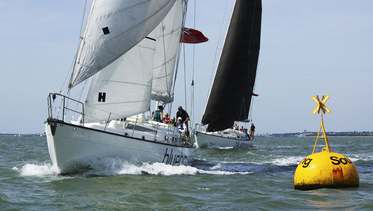
What makes an RYA Yachtmaster?
James Stevens, former Chief Examiner of the RYA tell us.
we love sailing as much as you do
Crewseekers is run by experienced, professional sailors offering a friendly and helpful service to yacht crew and owners. We are the original yacht crew introduction agency – established for over 25 years, offering amateur and professional sailing opportunities throughout the world.

- INFLATABLE BOATS AND RIBS , MOTOR BOATS , News , SAILBOATS
Skipper responsibilities: when people’s lives depend on our choices
- Nico Caponetto
- April 6, 2018
The fatal shipwreck opposite the harbour of Rimini, Italy, last April 8th, in which 4 people lost their lives , brings into the foreground a matter which is often underestimated, namely the responsibilities of a skipper . Of course, the task of elucidating the real causes and possible responsibilities of this tragedy will fall to investigators.

What is certain is that the skipper, or better, the captain of a boat takes an enormous responsibility every time he sails off and starts sailing with his crew, even when the latter is made up of few relatives and friends. His responsibility is always moral but it can sometimes become even civil and penal.
This level of awareness, especially among those for whom sailing is not a job, is not always present. If, on one hand, it is true that we can’t let the weight of this responsibility crush ourselves, ruin our boat holiday and stress our guests, on the other hand, it’s equally true that we mustn’t underestimate the effects of our choices.
It’s up to us, as boating license holders and captains of the boat, to decide, for example, whether to sail off under bad weather conditions or not.
In itself, this decision doesn’t involve any kind of infraction . It’s not an overtaking in an area where this manoeuvre is not allowed, which represents a punishable situation regardless whether it provokes an accident or not. If we have decided that sea, boat and crew conditions are good enough to go out to sea even if the sea state is 8, no one can “give us a ticket”. In case of accident, however, we will be criminally responsible for this choice.

Not only because it’s physically impossible to stay at the wheel nonstop but also because a 1992 Ministerial Circular of the Italian Civil Code clearly establishes that driving a boat doesn’t consist “in steering physically a boat… but it means to be responsible for the command and supervision of all the operations required for sailing which cannot be delegated to third parties”.
In short, in case of accident, even if the helmsman is a relative or a friend, the responsible for the event is always the captain of the boat. The law is clear and article 2054 of the Italian Civil Code establishes that ” the driver of a vehicle (according to the law, the boat, too, is a “vehicle”) equipped with no rails is obliged to refund the damage caused to people or things … if he doesn’t prove that he did everything he could to avoid the damage itself “.
Furthermore, article 414 of the Navigation Code establishes that, when we sail with some friends on board, the responsibility of the captain is applied only when he acted in negligent or imprudent manner.

So, the negligent skipper pays for damages and is criminally responsible for eventual accidental personal injuries and negligent homicide.
Jurisprudence offers a multitude of examples of condemnations of skippers who have been responsible for irresponsible misconduct and, vice versa, of absolutions, even in very serious cases, because the accident and, sometimes, even the death of a crew member have been proven to be accidental and the captain did everything he could to sail safely.
All rules and codes apart, there is always the moral issue. As already mentioned, when we go out to sea with other people, even in the case of a short cruise, we are always responsible not only for the well-being of these people but, above all, for their safety . In addition to being aware of our competence, we must scrupulously check that everything is orderly on board , that equipment is efficient and reachable, that life-saving equipment (lifejackets, life raft and belts) are handy and useable in few seconds and that weather conditions are good and safe according to our course, boat and passengers. We have to inform our guests about the use of the on-board equipment and radio, without getting them warned or nervous.
And we mustn’t be afraid to say not and be unpleasant . Many skippers maybe nicer than us have made some mistakes that have often provoked no accidents but that, sometimes, have unfortunately resulted into fatal events.
Once everything is done scrupulously and seriously, we can enjoy our sailing experience and have fun with our friends.
One Response
want to join from Myanmar
Leave a Reply Cancel reply
Your email address will not be published. Required fields are marked *
Save my name, email, and website in this browser for the next time I comment.
Language switcher
Browse categories.

You might be interested in
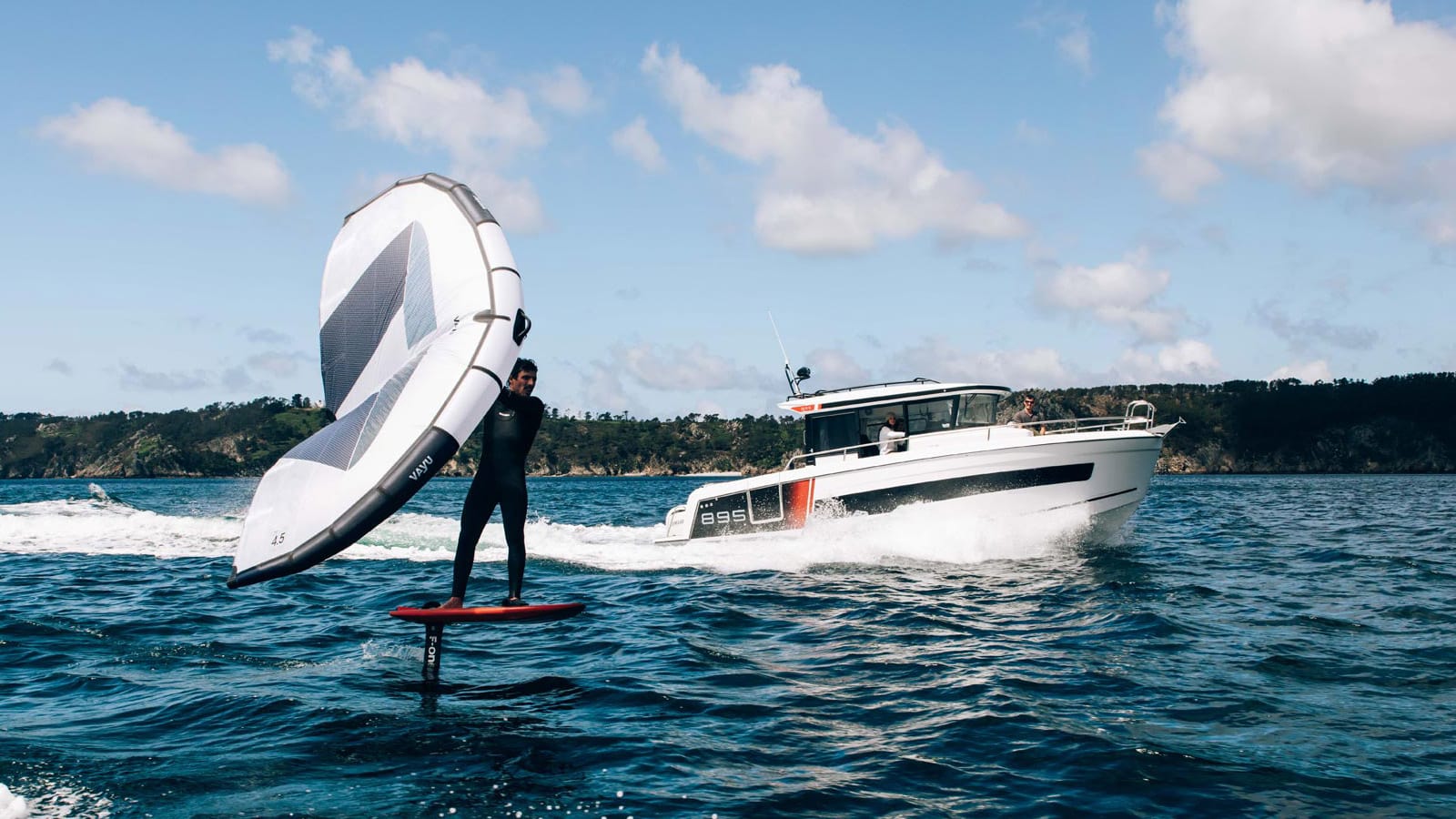
Jeanneau conquers new markets: all the latest additions from Cannes 2024
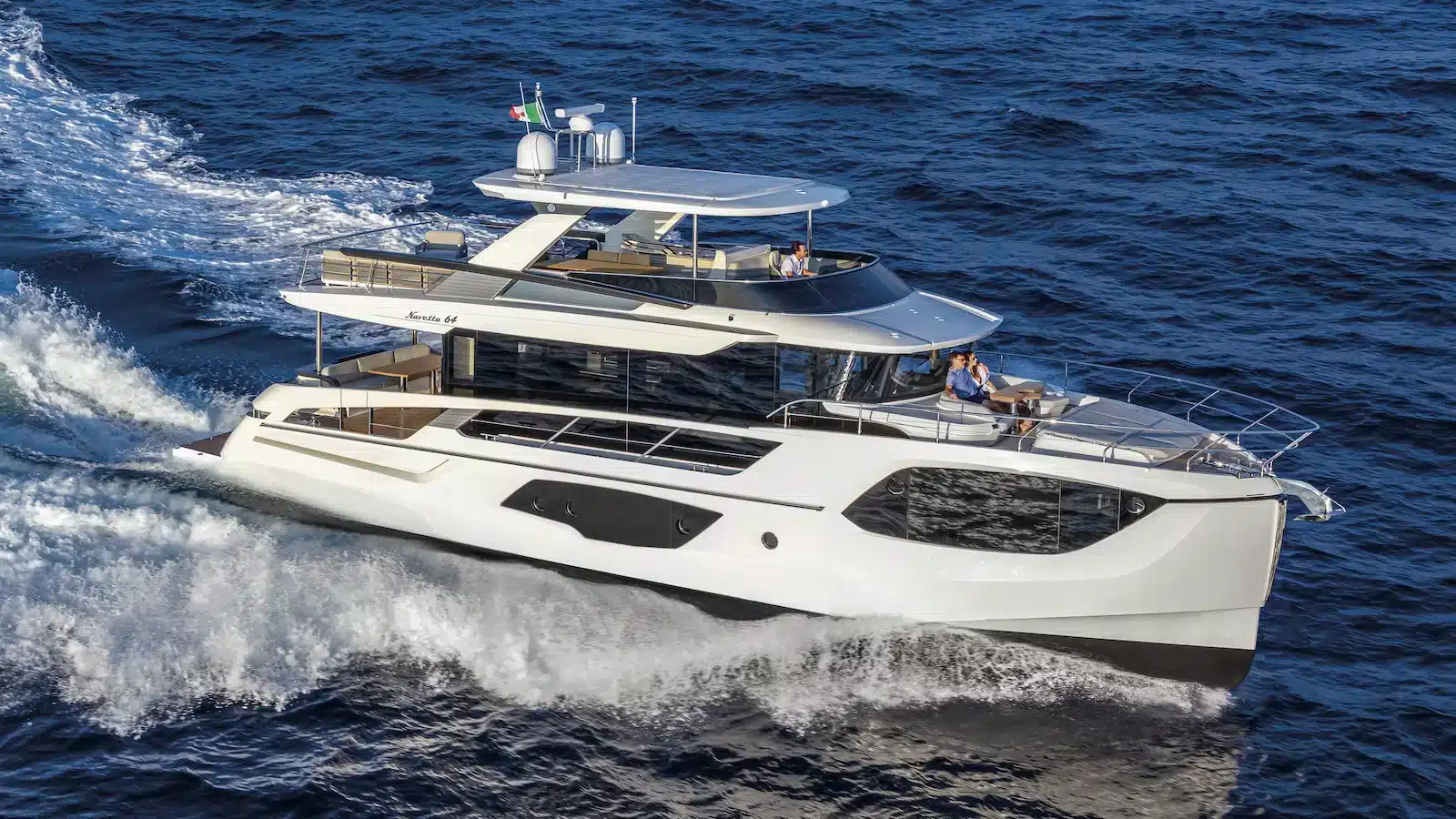
Absolute Yachts at Cannes with a contemporary and innovative collection

Innovative Sailing World Championship: English crew triumphs
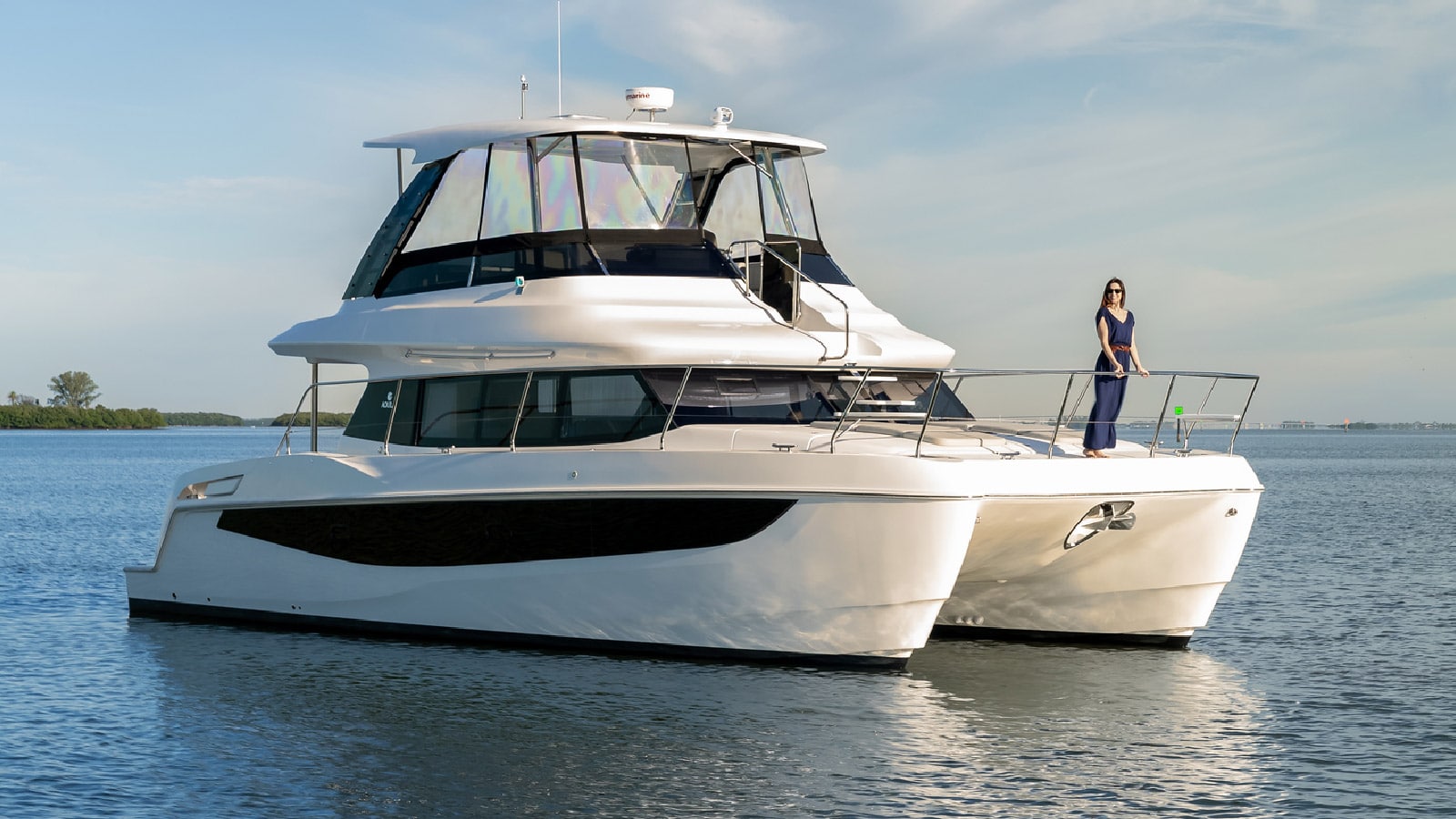
Aquila Power Catamarans conquering Cannes

© 2021 – THE INTERNATIONAL YACHTING MEDIA Designed by BLive Communication
ABOUT YACHTINGNEWS.COM
Yachting News is an interactive multimedia magazine dedicated to the world of boating.
The International Yachting Media is the worlds most widely read boating magazines network. Whit its portal It broadcast its original contents in five languages and in more than 200 countries developing 950,000 views a week. Our web portals are the main source of information for yacht and boat owners, the place where they can find anything about their boating passion.
THEINTERNATIONALYACHTINGMEDIA.COM | SUPERYACHTS.NEWS | YACHT DIGEST
VIRTUAL BOAT SHOW | TUTTTOBARCHE | TOUSLESBATEAUX | TODOSLOSBARCOS
BOATING NEWS FREE APP
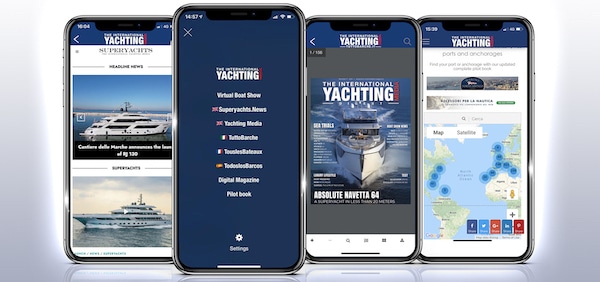
To provide the best experiences, we and our partners use technologies like cookies to store and/or access device information. Consenting to these technologies will allow us and our partners to process personal data such as browsing behavior or unique IDs on this site and show (non-) personalized ads. Not consenting or withdrawing consent, may adversely affect certain features and functions.
Click below to consent to the above or make granular choices. Your choices will be applied to this site only. You can change your settings at any time, including withdrawing your consent, by using the toggles on the Cookie Policy, or by clicking on the manage consent button at the bottom of the screen.
Subscribe For Latest Updates
Sign up to receive the best of Yachting News, sea trials, boat review and world premieres .
The only ADVERTISING FREE newsletter

- All Blog Posts
- Sailing Education Posts
- Boating Knowledge
- Free Sailor Toolkit
- Sailing Vacations Posts
- Yacht Charter Guides
- Join a Sailing Flotilla
- Sailing Adventure
- FREE Virtual Reality Sailing Training & Racing
- 2 Free Courses >
- Online Courses
- Vacations & Charters
- Schools & Instructors
- International Sailing License
How to be a good skipper or crew member on a sailing vacation
This article was specifically written by Grant Headifen, Director of Education for NauticEd for Yacht charter skippers and crewmembers who are going on a sailing vacation. Grant has lead dozens (and dozens) of sailing trips all over the world. He’s seen the good, the bad, and the ugly.
This article is linked to from the Bareboat Charter Skipper Course and the Yacht Charter Crew course. It is designed so that you the crew member or you the skipper can achieve a positive desired outcome on a sailing holiday with friends and relatives.

The Reason Everyone is There
On a recreation sailing holiday boat, people are there for one reason only; to enjoy themselves. More than likely, you are there with friends, spouses, family, and friends of family and friends and hopefully – friends to be. Space is confined and the trip is more than just a few hours. Given that, we can’t have any Captain Blighs and we can’t have any mutinous crews either. The boat needs to run smooth and everyone at the end of the trip should leave saying that they would do that again with exactly the same crew. And you, as a member of that crew are 100% responsible for making that happen. Not 10%, not 25%, not 50% but 100%. You have to do everything possible to make that happen. Below, we are going to teach you some skills to make having a good time a reality.
How to Run a Boat
Running a boat requires managers, leaders, and lead-followers.
Managers make things happen. They organize the holiday, they plan the route, they organize the food, they keep a watch on the weather, they make sure the boat and the crew are safe, they manage the fridge, the energy, and supplies like water and fuel. Just like in a company, on a boat there can be multiple managers.
Leaders create an environment whereby others follow their actions. For example, during an anchoring procedure, a leader will take action to direct others to facilitate the desired end state – anchor on the bottom hooked in properly with the boat safely stable. During a sailing procedure like raising the sails, a leader will enlist others to help get the sails up – pulling a halyard line, steer the boat into wind, keep a watch out, grind a winch, and ease the reefing lines.
Lead-followers is a new term probably to most. A lead-follower is a person who simply sometimes leads and sometimes follow. Rarely is anyone always just a follower – no matter how small a task, somewhere along the line they are going to lead someone to do a task. That person is a lead-follower. When following a lead-follower follows the requests of a leader to do the right actions to effect a desired outcome. Followers are sometimes a pure follower. They pull a line when asked. But a follower might then immediately switch roles and become a leader – ‘Hey John. Can you tie the other end of this line off on that cleat please”?
What is interesting is that a good “Leader” teaches followers to lead. This is especially important on a boat. There are a lot of jobs to do and so the crew must be knowledgeable to lead certain situations. Even if it is to ask someone to chop the carrots – that person is now a leader.
So, here are some questions:
- Could a crew member be the manager of the galley, or manage the navigation, or organize the stops for the best snorkelling spots?
- Could the skipper be working the windlass while a crewmember on the helm tells the skipper to release out more anchor chain?
- Could a crew member lead several others to tie the fenders and arrange the docklines?
- Could a crew member ask the skipper to chop the carrots?
Obviously, the answers are yes. Where then in that arrangement is the traditional military style stereotypical Captain? Fact is, that on a recreational boat there is no room for a captain that commands everything with the threat of keelhauling anyone. And there is no room either for a wannabe captain/know-it-all who tries to steal or undermine the captain’s job. YOU ARE ALL THERE ON EACH OTHER’S HOLIDAY EXPERIENCE. Everyone has paid a lot of money to voluntarily be there. No matter who you are or what role on the boat you play, you have a responsibility to the others to ensure that THEY have a good time. If “THEY” are having a good time, chances are you are having a good time.
“Well what about the safety of the crew?” the Captain Bligh type skipper argues. “surely someone has to take responsibility during a potential hazard”. You’re right. But there are good leaders in a safety situation and bad leaders.
- A bad leader yells at crew members (who are btw their friends and family)
- A bad leader brings the stress of their job with them on the boat.
- A bad leader needs to lead all the time.
- A bad leader takes over when someone else is leading
- A bad leader throws a tantrum (as an adult)
- A bad leader stops listening
- A bad leader tries to undermine others
- A bad leader talks behind other’s backs
- A bad leader tries to make themselves look good by making others look bad or less than good
- A bad leader can’t stand to be a follower at times
- A bad leader stops others from engaging in leadership activities
- A bad leader does everything him/herself
- A bad leader is just a plane out ol’ bad leader
Are you a good leader or a bad leader?
“I had to yell to get the attention of everyone” the bad leader says. We can prove that the bad leader didn’t need to yell. There are many skippers on boats out there that can control the boat through a hazard situation without yelling. Did you know that the effect of being yelled at actually causes a flight chemical to release in our brains. This changes the ability of someone to effectively act. When the bad leader yells, they are reducing the effectiveness of their crew. Do you think the bad leader gained any respect by yelling? Nope! The bad leader just went down another rung on the respect ladder. They lost control of themselves, they panicked and yelled because they could not handle the situation.
On the other side, crew members listen up, sometimes things need to get done on the boat and sometimes they need to happen now. “Move the fenders to the other side of the boat”. “Make fast this line”. “Ease the spinnaker guy now”. “Douse the main halyard now”. Turn the boat to windward now”. “Bear away now”. “Man overboard – you Jane, stop talking and point to john in the water and keep your eyes on him no matter what happens on the boat”. These and more are potentially some things you could hear and it’s up to you to get that job done and not take anything personally. You can’t be thinking “who is he to tell me to stop talking”. The job is important and the job is the job for a reason. Are you a good follower when needed or a bad follower?
A Safe Environment to Communicate
What we are going to do here in this article also is to create an environment whereby two people can feel comfortable and safe with a one on one talk with each other quickly after an event. When things flare up, which they will do, from reading this article you both can sit together and speak your feelings and say things like “I did not like it when you said …” or “I’d like to ask that you involve me a little more instead of always jumping in to my rescue, I’m here to learn as well. Would that be ok”?
How do I do It
A wise person (Jim Cathcart) once told me this. He said to always ask myself “How would the person that I want to be, do the thing I am about to do”. In this case, always ask yourself “How would a good leader, lead this situation”?
Let’s go back to the previously defined roles of manager, leader, and lead-follower because that allows us all to relax a little. The skipper of the boat is more like a manager of the boat operations while the boat is moving. That skipper does not need to be on the helm, in fact the skipper is doing them self a disservice of being a good manager by running the helm. There is no way a skipper can be a good boat manager if they spend the day on the helm. The skipper needs to ensure the navigation is correct, attend to seasick crew, ensure everyone is properly hydrated with sunscreen applied, ensure the seacock for the heads are managed properly, check incoming weather, and importantly – ensure everyone is having a good time by organizing games, knot tying competitions, serving food and drinks. The skipper can also be training leaders – leaders to lead the fender tying operations, teaching crew about sail trim so that they can lead the sail trim operations, training leaders to lead the docking lines when coming into a dock. The skipper manages the boat operations.
So all in the name of everyone wanting to come back again next year with the same crew, Ask these questions:
- What would a perfect skipper act like?
- What would a perfect crewmember act like?
And now ask yourself: “How would the skipper or crewmember I want to be, do the skippering or crewmembering that I am about to do”? On a happy boat, more often than not, you will find both the crewmembers and the skipper switching roles between being a leader and a follower. A good skipper knows this and will on purpose be a follower and will be happy to be following. If a skipper is following then it is a sign that the skipper has taught the crew well. This will also be building the self esteem of the crew. So crew, take notice, if the skipper is following you then you are doing a good job of leading – probably because you learned about how to do something well and the skipper trusts you.
Managers and Leaders
What is interesting to note and to distinguish is that when we think about a corporate set up, a manager is in their management job by definition and authority. For example, a sales manager, a marketing manager, or a finance manager are all in their jobs by the authority given to them. Managers make things happen so that their subordinates can get their job done effectively. Managers organize the technology and they look after the needs of the staff. When you think about a boating situation, it is really very similar. Typically, the manager of the boat is the skipper and the skipper is there in their skipper role by the authority of those that agreed to that person being the skipper. But a leader role even in a corporate setup is not by authority. A leader role is earned out of respect from others. Others respect a person for their knowledge, and they respect a person for their ability to create action among others to achieve a desired end state. Thus, a leadership role is earned. And must be constantly earned. If you are the skipper (manager of the boat operations) and also the leader but begin to make poor decisions such as not operating the boat for the enjoyment of the others, you will soon lose respect and you will see your crew team fall apart. And while your leadership role and skipper role might not be toppled in a one-week trip from hell, you sure as heck will not be leading that crew again on a trip.
Similarly, for crew members, you are on this trip because others invited you and they respect you. If you are making poor decisions throughout the week that lead to the lesser enjoyment of others on the boat, the respect you previously earned to get you invited this time will get you uninvited next time. Crewmembers are lead followers and if you are not making constant micro-efforts to lead a good environment on the boat you’re going to be voted off this floating island.
Expectations
For both skippers and crewmembers, it is a good idea to begin your trip with good communication about expectations. This can be done at a short crew briefing prior to leaving the dock on the first day. The skipper has a good opportunity to make people feel comfortable that the skipper is going to be a good one. That the skipper is competent and will make the boat operations go smooth and is a good leader. This can most easily be done by NOT making assignments of operational tasks but by gaining buy-in and volunteers from the crew. No one wants to be assigned a task on a holiday. And it is not a sin to announce that the boat will be run fairly informally, even that announcement is an authoritative enough statement to gain confidence in the management style. It is a holiday after all. The skipper should also gain the knowledge respect by giving a full briefing on the boat, certainly pointing out safety hazards, and creating an environment to make people comfortable about asking questions. At this stage, the skipper needs to know that he or she is being judged by a lot of potentially uncomfortable people that he or she does not know. Anxiety is high among the crew.
At the crew briefing, crew members need to communicate their desired level of participation in the activities and tasks. This time is your time to speak up and voice your expectations, where do you really want to go, what do you really want to do? What are you not comfortable with? It is important that you take this opportunity. It is ok to announce “I’m just here to read a good book. I’ll help out when needed but I’m not here to learn how to sail – is that ok?”
That is ok because that person is here on holiday too – their holiday. All of this sets the stage for consistent expectations. The skipper’s reply to that should be something like “Great – yes that is ok and I’ll keep that in mind. Do you mind however that I can rely on you if I really need something done. Otherwise, I’ll let you get on with turning the pages. Would that be ok”?
I will leave you with two anecdotes.
- One time on a sailing holiday in the Bay of Islands New Zealand on my friend’s boat. We were sailing off our anchorage spot in a crowded harbour (because his engine was broken). My friend the skipper and a dang good leader announced to me in a calm voice “Hey Grant, do you see that green boat right there”? “Yes” I replied “Well, we are going to hit it. Could you please walk up front and fend us off” Whereby I did exactly as he asked and we then went on our merry way for the day.
- While sailing in Greece on one of our organized flotillas, the sister in-law of one of the skippers of a flotilla boat said to me on day 3. “I’m so happy to be here and so happy my brother in-law asked me to come. I don’t care what he or anyone on the boat asks me to do – I’m just going to do it. I want to be invited on all of these trips forever.”
Thanks for reading through this special article. I hope you gained some good insights. I invite you now to listen to this podcast that we did with Lt. Col Edward O’Connor, Ex Navy Top Gun Adversary trainer. Ed does a fantastic job of using his background to describe how the defined roles of manager, leader and Lead-follower on a boat make the boat operate smoothly.
My vision for NauticEd is to provide the highest quality sailing and boating education available - and deliver competence wherever sailors live and go.
You might also like

TWEET ABOUT

FIGHT CHILDHOOD CANCER
NauticEd is a fully recognized education and certification platform for sailing students combining online and on-the-water real instruction ( and now VR ). NauticEd offers +24 online courses , a free sailor's toolkit that includes 2 free courses, and six ranks of certification – all integrated into NauticEd’s proprietary platform. The USCG and NASBLA recognize NauticEd as having met the established American National Standards. Learn more at www.nauticed.org .

The NauticEd Vacations team are Expert Global Yacht Charter Agents – when you book a sailing vacation or bareboat charter through NauticEd, we don’t charge you a fee – we often save you money since we can compare prices from all yacht charter companies. PLUS, we can give you advice on which destination or charter company will suit your needs best. Inquire about a Sailing Vacation or Charter .
Online Sailing Courses Sailing Vacations | Charters Practical Sailing Courses Sailing Certification | License
Sign up for 2 FREE Sailing Courses Try sailing in Virtual Reality! Gift a Friend a Sailing Course Sailing Events | Opportunities
About NauticEd Contact Us NauticEd Support Privacy Policy
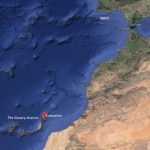
- Skip to main content
- Skip to secondary menu
- Skip to primary sidebar
- Skip to footer

Crow Survival
Outdoor Discovery
What Is A Boat Skipper & What Do They Do?
Jonathan Holmes 5.0 5.0 out of 5 stars (based on 46 reviews)

Thank you for reading our post, please rate this article at the end.
Last Updated on August 22, 2024 by Paul Clayton
Table of Contents
What is a Boat Skipper?
Unquestionably, boating is and should be a fun experience. However, no one will enjoy it if there’s no safety. Remembering to be safe on the water should be any boater’s number one priority. A boat skipper is handy to guarantee a great boating experience for everyone on board.
- Boat Skippers are responsible for navigating and operating maritime vessels.
- They ensure the safety of passengers, crew, and the vessel itself.
- Skippers use navigation tools like GPS and radar for guidance.
- They manage and maintain the boat’s machinery and equipment.
- Skippers conduct safety drills and handle emergencies on board.
- Becoming a Skipper requires experience, training, and relevant certifications.
If you’re wondering what a boat skipper is, keep reading. This article has been tailored to help you learn everything about a boat skipper.
A boat skipper is a person who commands a boat and its crew. In naval terms, a skipper is liable for the care and safety of the ship, vessel, boat, or yacht. The same is true of the captain.
Additionally, the captain is accountable for the care and sanctuary of the crew, which is why a captain is also known as a skipper.
The Duties of a Boat Skipper

A boat skipper is the heart of a vessel. He or she is liable for the boat and must handle everything related to it. Accordingly, the boat’s occupants should interpret everything the skipper says as a command.
This is because, sometimes, the decisions made by the skipper could be the difference between your life and death.
The skipper’s work involves earnest work on board. It can also affect his recommendations on exciting routes, new sites to visit, or instructions to follow while in the water or on shore.
He is conclusively responsible for the boat’s sanctuary and the protection, welfare, and comfort of all on board.
The Demands on a Skipper
The demands on a boat skipper vary according to where the boat is navigating. In case the boat is cruising close to the beach, within easy access of a native port, the skipper’s job is simple.
Once the boat covers longer passages, at some distance off the shore and away from the region the skipper is familiar with; his responsibilities become more intense.
This is because he must allow for likely night cruising, approaching unfamiliar harbors, and the likelihood of navigating through bad weather.
Offshore, at a significant distance from land, the demands become even more extraordinary.
They can include coping with lengthened periods of poor weather, gear failure when there’s no one nearby to call for help , crew illness, and many more. These are just a few challenges the boat skipper may need to handle.
Responsibilities of a Skipper
As mentioned above, a boat skipper is the most influential person on a vessel. Therefore, he has many responsibilities bestowed on him.
To begin with, he plans the whole passage to the suggested destination, which sometimes can take several days. Secondly, the skipper must ensure that whatever voyage the boat makes, whether for holidays or fishing , he follows all the maritime statutes.
Next, he navigates the boat, provides good care and safety for the boat and the crew, and manages the boat in all respects. In other words, he must know how to run and maintain all the facilities on board.
The Working Hours for a Skipper
Working hours depend on a skipper’s field of work. If a boat skipper is self-employed and operates his boat, he can function for as long as he wants.
A skipper on an inshore boat would return to the shore daily, while the offshore boats venturing out in waters away from the shore could return just after days or weeks at sea.
Characteristics of a Good Skipper

Be A Good Leader
A good leader displays confidence and instills it in the crew. He knows what his crew can do, is a good coach/teacher, and communicates efficiently.
Further, he demonstrates how things should be done with perseverance and remain collected whenever he faces adversity.
A good leader doesn’t require yelling or screaming at his crew. His crew looks up to him to be the leader they want.
Technically Proficient
A good boat skipper knows how to navigate; he has good seamanship and thus will learn how to cruise your boat. Also, he will understand your boat’s capabilities and constraints well.
He will know exactly what you need to do in case you encounter problems, and better yet, he will understand enough to avoid trouble in the first place.
A good skipper understands that his crew doesn’t necessarily require him to be an expert, but they will expect a certain level of competence from him.
Cultivate a Fun and Relaxed Environment
The crew sails mainly for fun. Good skippers make sure the crew appreciates themselves and feels comfortable while on the boat and let them take part in managing the boat. Hence, a good skipper needs to unwind and sing one sea shanty or two.
Be Organized
An organized skipper will probably have an established boat, which will likely be adequately maintained and safe and instill trust in the crew.
A good and organized skipper will have enough supplies on board and ensure the crew understands what they need to know. Standard procedures and standing orders will be steady and appreciated by all.
The organized skipper assists in alleviating confusion and anxiety in the crew, minus driving them insane with his marginal obsessive-compulsive disorder.
Keen on Safety
Lastly, a good skipper knows the importance of keeping the crew safe. Here, the crew expects the skipper to watch for them and prevent them from jeopardizing themselves through inattention or ignorance.
So, if you are a crew member, watch out for the above traits before you sign on to someone’s boat. Some skippers will possess many of these qualities, but most ought to have at least some of each.
Conversely, if you’re a boat skipper looking forward to improving your reputation, pay attention to these 5 characteristics. Once you have a reputation for being a reliable skipper, obtaining and maintaining a good crew will be a snap.
Skippers in Other Aspects of Life
Though the job of a skipper might appear to carry many responsibilities, it is also fun. Some boat skippers appreciate fishing and pursue it as a way of livelihood.
These skippers work on their boats and become self-employed. Nevertheless, those who don’t own a boat can serve huge companies that employ skippers to care for their boats and their catch.
An experienced skipper can make a satisfying income. A professional skipper can additionally move into similar careers such as Merchant Navy, harbor tug work, gas exploration or offshore oil, cargo operations, and fish farming.
Becoming a Skipper
If you’re interested in becoming a skipper or want to begin sailing, you’ll need to undertake the necessary training, have enough experience, and possess a license.
Any person interested needs to do well on a certification test, not overlooking that he or she must be at least 18 years old.
To pass your test, it’s highly advised that you understand how to navigate a yacht or boat precisely.
After you’ve passed your test, you’ll receive a license that shows you know how to sail a boat into a harbor accurately, know wind patterns, currents, and topography, and know your duties as a boat skipper.
Exams or Tests Involved
The majority of Exams for this occupation last approximately 12 hours and usually test your capabilities with the following:
- Understanding the engine inspection procedures
- Knowing how long the fuel of your boat is going to last by determining the extent of your destination
- Knowing how to utilize flares, life jackets in the case of urgency, and life rafts
- Knowing and mastering the gas policy
- Ascertaining the weather information and how it could probably influence your travel arrangements
During the process, your program instructor will not only check your understanding of how to correctly and safely sail a boat. You will also be cross-examined throughout your test on any other information that every sailor should know well.
Just like utilizing any other item of machinery, you’ll require knowing the information on how to handle your boat, including professionally
- Mooring pickup
- Speed awareness
- Directing your vessel down a wake
- Proper positioning
- General boat and environmental know-how
- Mastering how to tie and tighten all your knots properly
Navigation is an essential component of sailing any boat or vessel. Without this understanding, you and your whole crew could likely be in a costly and dangerous situation.
You can check out more information on completing a skipper course here .

What’s the Difference between a Skipper and a Captain of a Boat?
The difference between a skipper and a boat captain lies primarily in the type of vessel they command and the connotation of their roles.
A boat captain is typically associated with larger vessels and carries a more formal and authoritative connotation. They’re responsible for the safe navigation and operation of the ship, along with other administrative and managerial tasks.
Contrarily, the term ‘skipper’ is less formal and often refers to individuals in charge of smaller boats or yachts, mainly in recreational contexts.
However, regardless of the size of the vessel, both roles require a deep understanding of marine operations and navigation.
What You Should Know About Navigation
Some essential sailing-related aspects include safely piloting your vessel at night and understanding the circulations of tide and current.
In addition, you need to learn chart 5011, that is, master how to chart ideally, not forgetting blind navigation. You can’t solely rely on GPS units or a chartplotter.
Becoming a boat skipper can be an exciting and rewarding experience for anyone. Before applying for your license, it’s good to learn and master all safety procedures and information while sailing a boat.
This way, your encounter can be so fulfilling and full of adventure.
Final Words
A boat skipper, also known as a captain, is an individual who is responsible for steering and operating a maritime vessel. Their role encompasses a multitude of duties that ensure the smooth and safe operation of the vessel.
A boat skipper is in charge of navigating through waterways using advanced tools such as GPS and radar systems to guide their path.
Their responsibilities also extend to managing and maintaining the boat’s machinery and equipment, ensuring optimal working conditions.
In addition, boat skippers must take charge during emergencies, conducting safety drills to prepare the crew and passengers for potential crises.
To become a boat skipper, one must accrue relevant experience in maritime operations, undertake necessary training, and obtain pertinent certifications.
Home page Back to the top of the page
Related Posts

- Affiliate Disclosure
Our Love for this stuff, unfortunately, does not pay the bills. Our audience supports us. We may earn an affiliate commission when you purchase through links on our site. This does not mean your purchase price will be higher. Sometimes, it could be lower due to our relationship and volume with the merchant. So shop with confidence. You are getting a good deal!

Terms and Conditions - Privacy Policy
Yacht Charter with Skipper | 15 Things You Need to Know
Yacht charter with skipper | the 15 essentials, our guide to hiring a skipper for a yacht charter.
Embarking on booking a yacht charter adventure brings a world of excitement and questions, especially when it involves a skipper. Navigating the role and significance of a skipper is key to a successful journey. From understanding the definition of a skipper to grasping their responsibilities and qualifications, each element plays a crucial role in shaping your experience.
Cost and logistics are central to planning your charter. Delving into the details like skipper fees , route decisions , and crew hiring provides clarity and helps set realistic expectations. Additionally, practical concerns such as feeding the skipper and tipping etiquette are aspects often overlooked yet vital for a smooth sailing experience.
Finally, the more nuanced aspects of yacht chartering, like discussing plans with your skipper in advance and navigating the complexities of charter agreements , reveal the intricate dynamics of this unique travel experience. Dive into each of these facets to unravel the full picture of what it means to charter a yacht with a skipper.
Charter Payment Protection
Insolvency protection, safe payment, muti-currency. lossless forex, low price guarantee, exclusive deals no hidden fees, introduction to skippered yacht charters.
Understanding Skippered Charters. These charters are increasingly popular for their ease and expert guidance. Skippers are not only highly qualified mariners, but also adept at being sociable or discreet according to guest preferences.
You’ll also learn about some facts you might not have known, like it’s your responsibility to feed your skipper and your Operator or agent only act as “recruiters”, whilst they will bear natural responsibility for finding suitable and qualified skippers, it’s a typically a direct relationship.
Here at SailChecker, we work closely with our clients to help them make arrangements with their skipper that works for them.
Pre-Charter Access and Skipper Selection
Choosing Your Skipper. You get surprisingly little choice over or access to your skipper. Typically detailed planning discussions won’t be possibile until you arrive at the base.
Whilst this sounds restrictive, it’s actually the most effective and efficient. It will mean that your skipper is not dealing with future client’s and be able to focus on you during your charter. It means that you won’t make planning decisions that are undone by local weather conditions.
The popularity and freelance nature of skippers has lead to high demand and high turnover. Operators will not always be in a position to allocate until the week leading up to your charter.
Here at SailChecker we work hard to understand your specific requirements, not all operators work in the same way, help balance all your requirements to ensure the best possible experience.
Cost and Duration of Skippered Charters
How much does it Cost to Hire a Skipper? We’ll explore the typical costs and duration of skippered yacht charters, this segment provides crucial budgeting insights for those planning a charter.
SailChecker have independent options and their own skippers to give charterers a wider choice of crew.
Route Planning and Flexibility
Adjusting Sailing Routes: Skippers play a crucial role in route planning. However, pre-arrival planning is often subject to change due to local conditions. This flexibility ensures a comfortable and enjoyable journey, catering to real-time factors like weather and local events.
Role and Responsibilities of the Skipper
Expectations from Your Skipper. We’ll provide a detailed overview of the skipper’s responsibilities, emphasising their commitment to safety, navigation, and guest comfort, while clarifying limits in tasks like cooking and domestic duties.
Skippers are highly skilled professionals, it’s really important to understand what a Skipper will and won’t do for you.
Here at SailChecker, we use our independence to advise on different options and levels of service.
Understanding the Skipper Hiring Process
Selecting the Right Skipper: Insights into the hiring process of skippers, highlighting how charter operators ensure they select skippers who are not only skilled but also have the right interpersonal qualities.
Here at SailChecker, we know which Operators are recruiting and retaining the best Skippers in their freelance pool.
Interpersonal Skills of the Skipper
Skippers’ Social Skills: Concluding with the importance of a skipper’s ability to be genial, teach, entertain, and also maintain discretion, ensuring guests enjoy their time aboard while feeling comfortable with their presence.
Here at SailChecker, we know how important the right personality is, whether it’s someone who’s great with kids, someone who likes to teach the basics or someone who knows the party spots, we’ll help you refine your choice and create a better and more enjoyable sailing experience.
- 1. Definition of a Skipper?
- 2. How much does it cost to hire a Skipper?
3. Who decides the Route?
- 4. Can We Have the Skipper’s CV and Sailing Resume?
5. Can I Discuss our Plans with the Skipper in Advance?
6. is the route always certain on a skippered charter.
- 7. Who actually hires the Skipper?
- 8. What will the Skipper NOT DO on a yacht charter?
9. What will your Skipper ACTUALLY do on a yacht charter?
- 10. Who feeds a charter skipper?
- 11. How much Does a Skipper Earn on a Skippered Yacht charter?
- 12. How much do you tip your Skipper on a yacht charter?
- 13. Are Skipper’s Qualified?
- 14. How do you become a Skipper?
15. When Booking a Yacht Charter with a Skipper why can’t we have Open Access to them in Advance?
1. definition of a skipper, how to define the skipper or captain of a boat during a charter.
Let’s start with a formal definition:
Skipper. noun. /ˈskɪpə(r)/ /ˈskɪpər/ the captain of a small ship or fishing boat.
You will find the word used worldwide but it is chiefly in use in Europe, especially the UK. In the US and in the Far East, you will see the word interchanged with “captain”, reserved for larger ships in British English. Whichever you choose to use, you are highly unlikely to be misunderstood or even corrected.
In essence, it’s the most senior person on board and in command of the vessel and has some pretty serious obligations under the local laws and the International Regulations for the Prevention of Collision at Sea ( COLREGS ). He or she can, if in international waters, even officiate legally recognised weddings under some circumstances!
In the end, you have to lawfully accept their decisions whilst underway which makes understanding exactly what their responsibilities are when chartering with a skipper (or captain!).
2. How Much Does it Cost to Charter with a Skipper?
Freelance skipper rates for yacht charter.
Chartering with a Skipper. Now that you know you need or want to go chartering with a skipper, how much will it cost to hire one?
Price. In 2024 the most typical price for a chartering with a skipper was between €240 or $240 per day. Whilst advertising rates are per day, it can be difficult to charter for anything short of a week as most skippers are seeking full employment at peak times. The exception is Assisted Sailing .
Assisted Sailing. This is where a skipper joins you for several days at the commencement of your charter. It’s particularly useful if you are a little out of practice, a new sailor, or sailing a bigger boat than you are used to.
How Much Does It Cost to Charter a Yacht. We do recommend you check out our blog How Much Does It Cost to Charter a Yacht if you would like to piece the whole picture together.
Route Planning for a Yacht Charter
Many charterers are naturally anxious about knowing where they are going and who decides. For some, booking restaurants and other popular attractions along the way is essential.
The route selection is something that cannot ever be guaranteed. There is always a risk the weather plays a small or large part in your decision. Whilst the Skipper has the final say on safety, the primary guest will have a great deal of input into the route. Where there are restaurants that need booking, more than 1 week in advance, your operator will typically reach out to you, in the main, restaurants can be secured during your charter.
SailChecker has a great deal of experience in each location and, as importantly, how each base operates and treats guests. We aim to find what’s a priority for you and match you to the right operator and boat accordingly.
4. Can We Have the Skipper's CV and Sailing Resume
How much you get to learn about your skipper in advance and can vary and can change at short notice.
On high-end charters, known as Crewed Charters (opens in a new tab), the crew on the boat full-time have resumes and CVs that will be sent to you before booking. On skippered charters, where the boat and skipper are hired separately, skippers more typically come from a pool and for operational reasons, might only be allocated at short notice. This might not always be the case, smaller companies may allocate well in advance and changes are rare.
Planning With Your Crew in Advance is Often Restricted.
Being denied access to your Crew in advance is a common policy from Operators. This ensures that the crew focus entirely on you when you are on charter, and not dealing with communications from charters in the weeks ahead.
In some cases, your Operator may not know who your skipper is, or leave themselves the ability to move people around at the last minute. This is ‘priced-in’ when compared to Crewed Charters.
SailChecker will always honestly manage expectations about crew access. We are also a team of ex-crew members who can often answer many of the questions without needing to revert to the crew.
Your Planned Route Can Change at Very Short Notice
On many yacht charter with a skipper, the route will go exactly as planned and bear a remarkable similarity to the published itinerary by the operator and agent. In other cases, it may differ significantly once the skipper can talk to you and explain the different options available to you.
On top of that, factors like the weather, sail weeks (groups of yacht sailing together to party) that might turn idyllic spots into loud music all evening, might mean a tweak to the route without missing out on the a highlight.
The weather is a strong contender to play it’s part too; heading in the direction wind has been coming from for a few days can make the sea uncomfortable to give one example (there are many), but settled later in the week – your skipper will be an expert on keeping you as comfortable as possible. In other words, they won’t know in detail where you will go, only in outline which is always provided in sailing itineraries for the area.
7. Who Actually Hires the Skipper?
Freelance skippers are typically are hired directly by the primary guest.
Introduction . This might seem an odd thing to need to know when you’re chartering with a Skipper . But, it can be useful to know as it might not be quite what you were expecting.
Crewed Charter . If you are chartering a boat with a permanent crew , they are almost always salaried or won the boat. If they are employees, they will have contracts with the crewed yacht charter operator. They are very typically a couple who share a cabin which allows cabin space to be maximized for guest use.
Skippered Charter . If you are hiring your skipper separately it’s commonly referred to as a Skippered Charter (New Window), you are, in essence, adding a skipper to a Bareboat Charter (New Window), like you might add a driver to a hire car.
Key Info . Keep in mind that every crew member will need their own cabin to comply with employment law in most countries. That said, there are lots of exceptions, but it pays not to assume.
Employment Status. When chartering with a skipper in this manner, they will typically be self-employed. The operator will have their own reputation to protect and will always try and work with the best they can find, yet they won’t always be directly responsible.
8. What Will Your Skipper NOT DO on a yacht charter?
Freelance skippers are skilled mariners and won't deal with every aspect of you charter..
Knowing exactly what to expect of your skipper when chartering is key to a stress-free charter from the outset avoiding any misunderstandings. It’s also the most challenging question to answer, as no two operate in exactly the same way, and it can even vary from skipper to skipper even when working for the same operator! All in all, this makes it even more important to know where the lines are and to get your agent’s support. Here at SailChecker, we take this part of organising your charter seriously.
Here is a list of SEVEN things you will typically find your Skipper is unlikely to do as part of your agreement:
- Pay your deposit. Most boats have a non-refundable element to the deposit. As a charterer, it may come as a surprise to know that in many cases, you are still responsible to the operator and the skipper is responsible to you. If some damage is caused through some extraordinary event, say a surge in water, that the skipper could not have ordinarily made provision for, then the liability falls to the charterer, not the skipper. If the skipper damages the boat, say during docking, he will almost certainly cover that cost and many are insured, yet do not take that for granted.
- Cook . Ok. So there are many great skipper cooks out there, yet it cannot be an expectation. It’s not even possible to demand one, it’s something you might be able to influence through your agent, so if it’s important to you, make it known at the start.
- Serve Drinks or Meals. On the contrary, it’s actually your duty to ensure he is “fed and watered”. This need not be in the style you are feeding yourselves, although it is quite rare to discriminate, yet so long as you discharge your responsibility, the skipper will be more than happy.
- Sail If Unsafe. No matter your crews’ experience, the decision to sail will always lie with the skipper. This can even be at a difficult time in the charter, yet the skipper will always put the safety of the crew and boat before any practical considerations.
- Wash Up! Skippers will always tidy up after themselves if they are preparing their own food for instance, but they will not discharge any domestic duties whilst on board. They take more practical measures, such as stowing garbage, but it will be your responsibility to dispose of it ashore.
- Late Runs Ashore. The way you will get ashore for land-based activities is via the tender. During the day this will often by the Skipper or other crew. Yet in the evening, they will not stay awake to run guests back the yacht after a certain time.
- Provisioning . Your skipper will not do any provisioning. YOu will need to hire a chef or a hostess if you need this doing for you. Many good agents will help you do your initial provisioning remotely so that it is delivered to you on your first day without the requirement to go to the local supermarket.
- Work All Hours. Your skipper will work hard during your charter and will always be on duty if you are underway. Not always on watch in some exceptional circumstances such as a night sail. Whilst when chartering with a skipper, they will always be available for advice and so on at the dock or at a mooring, their duties are considerably curtailed. Typically a skipper should not be working more than 8 hours a day.
- Pre-Charter Support. Charters are pretty intensive for crew ensuring you have the very best time. The last thing you want on your charter is the crew being inattentive because they are dealing with questions from guests of upcoming charters. For that reason, most operators protect their crew by dealing with your questions and pre-charter support up until much closer to the day, if not the day of your charter.
- Teach you to Sail. This is a strange one. This appears in what skippers won’t do and will do. I am yet to meet a skipper who doesn’t love teaching, yet willing students are difficult to find. I once encountered excitable students, only to find their interest wained when I asked them to learn the basic knots! For that reason, some Skipper’s will shy away from any formal teaching that’s not formalised in a syllabus.
A Look at all the Things you Can Expect from your Skipper
So now we have learnt a few things your host won’t do when chartering with a skipper , let’s focus on what you can expect from them.
Here’s our list of what you can expect when chartering with a skipper :
- Meet and Greet . Expect your Skipper there when you arrive. If you are early, he might have some other duties to perform for the previous client before attending to you. As you can see, not much time off in this game.
- Handover/TakeOver. Your skipper will do this on your behalf. It needs to be emphasised, this is typically on your behalf. As the charterer, the liability for the skipper and his actions ultimately rests with you. You can choose to be present or trust your skipper.
- Planning . Whether you’re the type of person to have your trip planned with military precision, or the type to trust in your skipper, the wind, sea and weather might have their own ideas. This is very much part of sailing and the vast majority of trips exceed the client’s expectations because the Skipper, having learnt your preferences and experience levels, is so expertly able to direct you on what will suit your crew.
- Host . Whilst it’s only your duty to ensure your skipper is fed, the skipper can often make a great dinner guest on abord and ashore. Much depends on your preferences and how the relationship develops, yet you will find most Skippers are the “hosts with the most”. Sit back and enjoy their stories.
- Teach Sailing. If you are reading sequentially, this completely contradicts something I wrote in the last segment. It is possible to get teaching skippers outside of a syllabus so that you have some control over the route and what you do (unlike t a formal course). It will rarely lead to a formal qualification, but it will help immeasurably if you’re looking to do won in the future. Here at SailChecker we often go the extra yard to match the right skipper with the right crew to ensure you get the best possible experience.
- Cook . Another contradiction! You certainly can’t expect them to cook for you, yet so many have great skills you might want to take advantage of if offered.
- Tour Guide. Your skipper is likely to be very familiar with the area, and language, you should expect them to be willing and able to help with that.
- Purser . Sometimes the skipper will ask you for a sum of money to cover incidental expenditure. It really helps the crew look after you paying for mooring, fuel, etc. without having to come to you each time. You will always receive a full break down and any unspent APA is returned. What is an APA? Read our comprehensive APA guide.
Ask us a Question About the Top Party Islands
Why people choose us, this is video.
Award Winning Best Yacht Charter Company
Winners of the Best Yacht Charter Holiday Company 2019 in the The 3rd UK Enterprise Awards.
Every Boat, Every Location Insured Professional Fleets
We help you decide from every boat based on 20 essential criteria.
Low Price Guarantee Exclusive Deals. No Hidden Fees.
We lead through our service, yet never beaten on price.
Request More Information
Got a question about Yacht Charter or Sailing?
10. Who feeds the Skipper on a Skippered Charter?
You are responsible for feeding your skipper throughout the charter.
Responsibility. It’s a clear obligation for the charterer to ensure the skipper is properly provisioned for.
Provisioning on Board . How to provision for your Skipper is a matter of discretion and a decision you can amend as you see fit without upsetting your skipper. They will be more than happy preparing meals from food you have bought for them or to eat your meals whilst about (this is the most common).
Provisioning Ashore . In this case, it might be the Skipper who would prefer to eat alone on the boat to do some work or attend to other matters. If this is the case, you can simply leave some provisions to use, or provide an allowance.
Summary. In the end, chartering with a skipper and feeding them is not an exact science. You should not be afraid of making your own plan so long as they are catered for.
11. How Much Does a Skipper Earn on a Yacht Charter?
Skippers on Skippered Charters will typically keep all of the fee you pay them. This is a little higher than the salaried guys who are get paid whether they are on charter or not and who typically get bigger tips.
Some skippers that are retained by the operators lose a percentage, typically 15-20% for their compensation.
A skipper on a superyacht would get around $5,000 upwards per month dependant on the size of the boat and their experience (plus tips that tend to be bigger than on mid-range charters.)
12. How Much do you Tip your Stewardess on a Yacht Charter
Tips are always welcome and always at your discretion: they do vary from region to region.
How much you tip when chartering with a skipper can depend on a few factors; the price of the charter, location, number of crew, etc. Tips are generally higher in the Caribbean and North America due to the tipping culture.
The Mediterranean Yacht Brokers Association (MYBA) has suggested tipping guidelines, the general rule is to tip between 10% and 15% of your weekly charter fee , excluding running expenses and taxes.
That seems about right to us although we do see more.
13. Are Skippers Qualified?
A brief insight into the qualification your skipper is likely to hold.
You’d hope that your skipper was qualified, but that largely depends on where you are sailing, possibly not. In the vast majority of cases, outside of the Caribbean, it will be a yes. In Europe, it will vary from a good qualification to a commercial endorsement.
Here at SailChecker, we have our own commercial endorsed skippers that travel out with our clients who want that reassurance. We do not knowingly charter with any operators not using qualified skippers.
14. How Do You Become a Skipper?
Thinking about being your own or professional skipper.
This is a complex question, there are many recognised schemes around the world and 100’s of training providers. It largely depends on what you want to use your qualification for and what do you want to leave open in the future.
If you care only about chartering and will only sail in these cruising areas then you should read our blog on the International Certificate of Competence (ICC) (New Window).
If you have further ambitions as a professional charter, flotilla, or delivery skipper, then you will find some m, more information here .
More on the Rationale Behind Withholding Skipper's Details
Having paid not an inconsiderable amount of money for the services of a person so central to your sailing holiday, it is inevitable you are going to want to know as much as possible about them. The reason why that might not happen is mostly answered above: In the end, a series of email exchanges will not get you much further forward, you are unlikely to detect the character flaws that the operator has not already been aware of. If you have a request like a yacht charter with a skipper who is:
- Good with children
- Enjoys teaching
- Is good company
- Is unobtrusive when not needed
Are all matters your operator will take into consideration when
Any Last Questions on Chartering with a Skipper
Are you considering chartering with a Skipper?
Give us a Call or Send us an Email.
We’re here to help., +44 8000988118, +1 8443351306, +30 8008481290, +61 730678907.
Leave a Comment Cancel reply

Founder Member IFCYA
Yacht Charter & Sailing.

Start typing and press Enter to search

+385 22 439 000
RYA Day Skipper course
Home » Courses » RYA Day Skipper course
Skipper a yacht! Intermediate
Are you considering upgrading your sailing skills and taking friends and family on a cruise? The RYA Day Skipper course is an excellent choice for you. You’ll spend five days on board a yacht – often in a role of a skipper – and visit stunning places of the Adriatic. With the RYA Day Skipper certificate, you can charter a yacht worldwide.
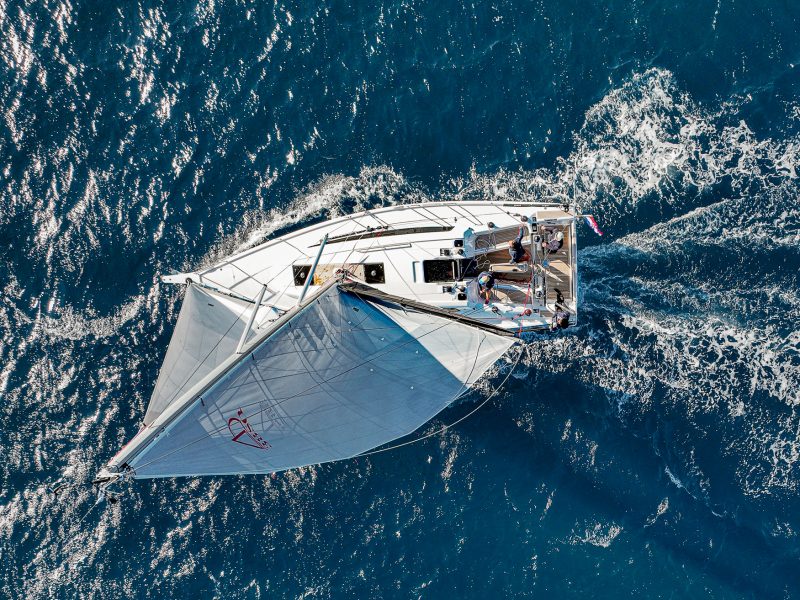
Prerequisites
- Instructors
RYA Day Skipper – Course description
We promise to expertly guide you through your first – and hardest – skippering steps on the RYA Day Skipper course. So you get the skills and confidence to take a yacht on your own after it. Indeed, what can be better than taking your friends and family on a nice cruise? And enjoy your sailing holiday safely, with you in charge.
This course is a perfect fit for sailors who want to move forward from being active crew members and learn how to manage the yacht and the crew. You would need Competent Crew sailing skills and theoretical knowledge of the Day Skipper Theory to be able to join and follow the course. You also need to be willing and open to learning and enjoying your first skippering steps because you’ll often be in a role of a skipper during the course.
Our experienced and patient RYA instructors – who firmly believe that anybody can learn how to skipper – will help you achieve your goal of becoming one. They have thousands of miles under their belt and helped hundreds of Day Skipper candidates achieve their goals.
You’ll spend five days living on board a brand new, perfectly clean, heated, spacious and fast sailing yacht fully equipped for comfortable cruising. We’ll also anchor in stunning bays perfect for swimming in crystal clear azure – hazards free – Adriatic sea. During the RYA Day Skipper course, we’ll visit picturesque islands and cosy Dalmatian villages with great local food and culture.
With the RYA Day Skipper certificate, you can charter a yacht worldwide. You’ll also need an RYA VHF – SRC Marine Radio certificate to charter a yacht in Croatia and elsewhere.
We sometimes combine students on a Competent Crew and a Day Skipper course as it represents a realistic onboard situation. With that, you’ll be able to train how to manage the inexperienced crew!
The accommodation is on a shared cabin base, but Single-use of cabin is available upon request.
What will you learn:
- Preparation of the yacht and crew for sea
- Safety briefing
- Yacht handling under power and sail – docking, anchoring, buoy catching, springing off and on
- Navigation and passage planning – position fixing, heading, bearing
- Chart plotters (GPS)
- Piloting in and out of harbours and channels
- Meteorology – interpreting weather forecasts
- Rules of avoiding collision
- Engine check
- Victualling
- Emergency situations – person overboard
- Night cruising
Ability after the course:
To confidently and safely skipper a small yacht in familiar waters by day and in good weather conditions. To take care of crew and yacht safety, navigation, docking and anchoring, weather, collision regulations and emergency situations
Certificate:
- RYA Day Skipper (for successful students)
- At least 100 Nautical miles and 4 hours of night navigation in the RYA logbook
Jezera and surrounding islands, bays and villages
Although we’re trying to show you the most of our sailing area during the course, the exact route is not set, but your instructor s call with priorities being safety, programme, weather conditons, berth availability and the crew’s ability. If all of these conditions are met he ll try to meet the crew s wishes as well.
- Brand new and perfectly clean, heated, spacious and fast sailing yacht, fully equipped for a comfortable cruising
- Accommodation on board (shared cabins) – single-use of cabin available
- Free unlimited wi-fi on board
- RYA Instructor
- RYA course materials and handbooks
- RYA certificates, after successful completion of the course
- RYA log books with mileage signed in
- Use of self-inflatable automatic life jacket
- Docking fees in the base marina - ACI marina Jezera
- Cooking gas
- Bed sheets, covers, duvets, pillows, pillowcases, towels (beach towels included)
- Cleaning utensils, kitchen towels, bathroom soap, mosquito repellent
- Plates, glasses, cups, cutlery
- Coffee, tea
- Final cleaning
- Tourist tax
Not included:
- Flights and travel costs
- Travel and medical insurance
- Docking/buoy fees in other marinas/bays
- Food & drinks – for the crew and the instructor
- Pre-course experience: Sailing experience and knowledge to Competent Crew course level - at least five days, 100 miles and four night hours onboard a sailing yacht
- Assumed knowledge: Theoretical knowledge to Day Skipper Theory course level
DEHLER 38 SQ - Blue Eye
Speed meets quality and comfort.
Dehler 38 SQ is the newest model from a famous German shipyard Dehler , traditionally known for their quality built yachts. A "true performance cruiser", says the renowned Sail magazine . That means the boat is fast but has everything needed for comfortable cruising. Another review says Dehler did a great job with this model while "keeping the boat as simple to use and fun".
We needed only one short sail with our Blue Eye to confirm that all these reviews were accurate. And we're sure you'll quickly realise why she's a perfect yacht for learning sailing. She has performance Quantum sails and a sleek, sharp, sporty line, so she sails well even on light wind.
Two very responsive carbon wheels enhance the manoeuvrability and provide a good feel of the boat's movement, even more so because they control only one deep rudder. The stern is spacious and broad, so there's enough room for a swimming platform with an integrated ladder.
The cockpit is spacious, with a fixed foldable table that enables the crew to enjoy their meals and drinks on the deck under the shade of a large bimini top. It also provides enough room for active sailing, and three winches on each side - a rarity in the class - prove the yacht is made to perform. Teak wood covers the cockpit deck, and the rest has a non-skid finish.
BLUE EYE is our training yacht registered for the RYA courses , so you can be sure she has everything needed for safe sailing. Also, a radar and an active radar reflector – which makes the yacht more visible to big ships - enhance her safety. She has the latest B&G chart plotter and instruments.
She has 38 feet, around 11,4 meters. The interior has three roomy double cabins, a cosy saloon, a foldable dining table, a chart table, and a fully equipped kitchen with a sink, stove and a large fridge. There's also a bathroom with a toilet and a shower, and all wastewater goes to a holding tank. Large windows in the saloon and cabins allow natural light below the deck. The shipyard used only fine woods - teak, mahogany and oak - for the furniture, which matched perfectly with the bright upholstery.
Additionally, BLUE EYE has a hot air heating system installed to keep the crew comfortably warm after sailing in spring and autumn. She also has substantial autonomy with a freshwater tank of 295 litres, a fuel tank of 160 litres, and service batteries of 160 Ah, so she stays comfortable even on a more extended cruise.

RYA Competent Crew course
Learn to sail! Thinking about sailing but don't know how to start? The RYA Competent crew course is a perfect fit for you.
- Intermediate
Skipper a yacht! Are you considering upgrading your sailing skills and taking friends and family on a cruise? The RYA Day Skipper course is an excellent choice for you.
RYA Day Skipper Fast Track
Get your skipper certificate fast! Are you considering starting sailing and becoming a certified skipper as quickly as possible? The RYA Day Skipper Fast Track course aims to do just that.
RYA Coastal Skipper course
Boost your skippering! Do you want to enhance your skippering skills to sail by day and night safely? The RYA Coastal Skipper is an excellent course for you.
RYA VHF – SRC Marine Radio
Learn to use a VHF radio! Do you want to learn how to use a marine radio and why it is an essential part of safety equipment on a yacht? RYA VHF – SRC marine radio is an ideal course for you.
Refreshers of RYA courses
Strengthen your sailing skills! Has it been a while since you sailed and did your Competent Crew or Day Skipper courses? Do you need more practice before taking a yacht on your own for a cruise?

Skippered Yacht Charter Holidays – All You Need to Know
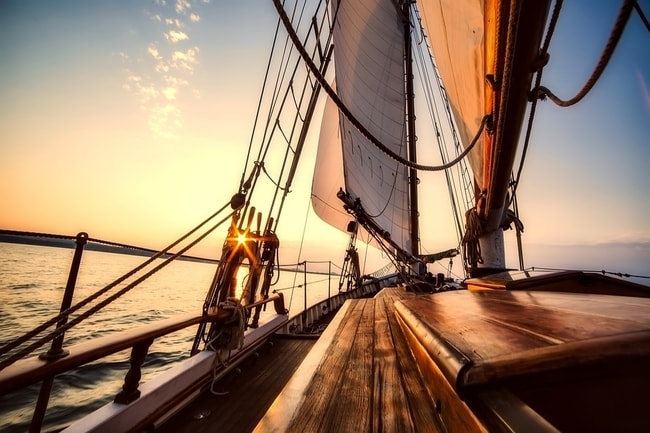
Table of Contents
What Is A Skipper?
A skipper is typically a captain that’s in command of a boat. Most skippers, with their professional sailing experience, have excellent knowledge of the local area and are capable of making recommendations on the best places to visit and fun things to do or see. Skippered yacht charter holidays are hence a perfect option for those who have little or no sailing skills or have never sailed before.
How Does A Skippered Yacht Work?
If you’ve chartered a bareboat, you’ll most certainly need to hire a skipper who will accompany you throughout the journey. The skipper, in this case, will meet you at the time of checking in to the yacht. He/she will be charged with the responsibility of sailing you to different places on your itinerary for the entire holiday duration.
This gives you the freedom to relax, lounge on the decks and try different activities along the way. You can sunbathe on the deck; relax in a hammock, snorkel or take a swim in the waters, knowing you’ve got someone at the helm.
If you’re a beginner or novice sailor, you can also take time to learn a few basic sailing skills from the skipper, if you are willing. Majority of skippers are always friendly and will gladly show you how to tie the ropes, steer the boat, anchor the chain and so much more.
About Sailing Hours and Itinerary
How far you cruise each will depend on the nature of your itinerary. But a skipper will generally sail for 3 to 4 hours a day, typically covering the period between morning and afternoon. He/she will stop at some point along the way for lunch.
In the evening, the skipper will dock the vessel at the destined port or harbor, after which you’ll be free to eat, relax on board or even go out and dine as you please. As for itineraries, the skipper will provide suggestions of the best places to visit, and you’re free to adapt them as they are or request to make slight changes as you please.
The best way to go about it though would be to sit down with your skipper at the beginning of the trip and think through the best route to follow. And if you have specific ideas on the activities (like diving, snorkeling, etc.) that you would wish to engage in along the way, the best you can do is ask for recommendations from the skipper.
Do You Need Qualification To Sail On A Skippered Yacht?
Most skippers are usually experienced and have suitable permissions and insurance to cruise various boats. So, as a charterer, you do not need to have any prior sailing experience. While it may sometimes be necessary to help the skipper on the deck do the docking, for instance, it does not require any sophisticated knowledge. In fact, that’s a perfect opportunity for you to learn a few skills if you’ve never sailed before.
What Skippered Yacht Options to Choose From?
The type of boat you choose to go for is entirely up to you. It all depends on your preference and what you expect for your holiday. But it is important to keep in mind that your skipper needs a cabin to sleep or rest in during the journey.
Having said that, here the main options to consider:
Sailing Yacht
If your desire is to sail the seas on a boat that’s propelled partly or entirely by sails, then a sailing yacht would be a perfect choice for you. Most people opt for this type of boat because of the sheer romanticism of cruising under traditional sails and/or the peace and quiet that comes with it. More sailing yachts currently in the market are also well-equipped and feature decent accommodation and deck space for guests to enjoy. Hence exploring the seas with such vessels is as beautiful and it is convenient.

A catamaran can be a sublime option to you if a massive saloon, deck and accommodation space is what you’re looking for. Aside from being super spacious, they tend to be stable too, since they are multi-hulled. Further, they come with shallow drafts, meaning you can explore and anchor even in the shallowest of waters. With lots of lounging space, trampolines and swim platforms, catamarans just offer more fun opportunities onboard compared to their sailing yacht counterparts.
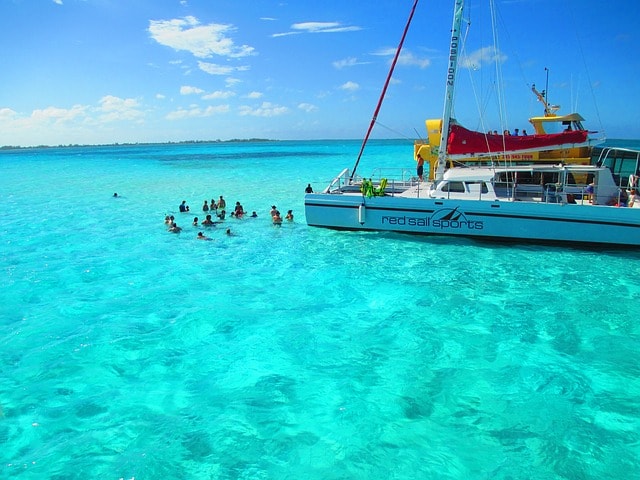
Can You Add Crew on a Skippered Yacht?
A skippered charter works almost the same way as a bareboat charter in that you have to care for the holiday all by yourself. That means you’ll need to organize for provisions, including food, drinks, toiletries, cleaning products and more, before embarking on the journey. Keeping in mind the many tasks that await you on board like cleaning, preparing snacks and drinks, plus shopping for more provisions, you may need to hire a hostess or chef to help you out. But remember, each of the additional crew will need a separate cabin to stay.
Cost of Hiring a Skipper
The cost of hiring a skipper will usually vary based on the yacht description and the additional service payable on the charter guide. On average though, a skipper’s payment ranges between €100 and €180 per day, depending on the location.
Is the Skipper Included in the Yacht Charter Price?
Yes, most skippered boats always include skipper service fees in the base charter price. If not included, the charter company will specify that in the listing.
Where Does the Skipper Sleep?
It is not uncommon for the skipper of the yacht to sleep in the salon area. But it is important to understand that every boat has a specified number of people allowed to stay onboard, based on the registered amount of berths. So, when planning to take a skipper with you on a sailing tour, be sure to arrange a cabin for him or her.
The benefits of allocating a full cabin for the skipper are many. Aside from helping the skipper rest adequately, it provides him/her with privacy as well as an ideal place to store his/her personal effects.
What Are the Skipper’s Tasks?
Skippers, with their experience in navigation and sailing, have many organizational, household, technical, and nautical duties to fulfill. Some of the most important tasks they carry out include the following:
- Informing you (the charterer) about the yacht and preferred route and itinerary activities
- Navigation and sailing
- Suggesting to you all the hidden gems that can be great to explore along the way
- Manning the yacht and all its equipment
- Showing you the basic navigation skills (if you’re interested or willing to learn)
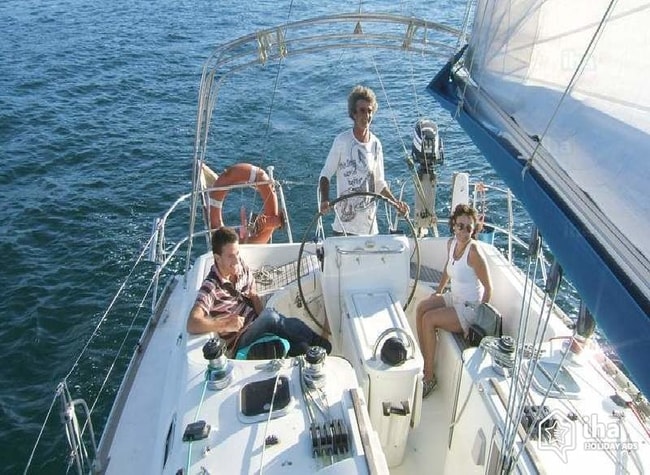
Who is Responsible for Skipper’s Meals?
As a charterer , you’re expected to cover the cost of food for the skipper and hostess, if any. And there are two ways to do it. You can either pay the skipper an average of €35/day in advance for his/her food or simply choose to include the skipper and/or other crew in your meals (even when going to restaurants).
Does the Skipper Speak My Language?
Most skippers always speak English and the language of the country in which they’re sailing. If you wish the skipper to speak your own language, you can always indicate that on the reservation comments, and the charter company will try their best to fulfill that.

Reasons to Charter a Skippered Yacht
With a skippered yacht, you are free to choose any of the stunning destinations you’ve ever dreamt of visiting. You’ll also have the opportunity to craft your own unique itinerary and enjoy as many fun activities as possible as you go along.
The fact that you have the skipper sitting at the helm frees you of the somewhat taxing navigation and sailing tasks, allowing you to sit back and unwind as you cruise on. If you’ve never sailed before, you have the opportunity to learn a few basic navigation skills from the skipper.
The beauty of it all is that the captain (skipper) has in-depth knowledge of the local area and can lead you to all the fun hotspots, including beaches, secluded bays, and cays that you would love to spend time in. So yours will be to explore and enjoy the beauty of various spots you visit.
Who Is a Skippered Yacht-Charter For?
A skippered yacht charter is typically for anyone that’s planning a sailing holiday but has little or no sailing experience. If you would also want to enjoy the freedom of sailing to whatever place you want at any given time, this charter could also be great for you. The privacy provided onboard a skippered boat cannot be overstated too. This means there’s more you can enjoy on such a yacht compared to other charter options.
Now that you’ve learned what skippered yacht charters entail, planning your upcoming sailing holiday should be easy. All you may need to do is book your desired vessel early enough, get all the provisions you need a day or so before embarking, and let your skipper guide you through the best spots in the area that you can visit. Otherwise, if you plan your itinerary well, you’ll have a fun, adventurous, and memorable sailing holiday.
Have you already chartered a skippered yacht? If so, you are welcome to share your experience in the comments below.

Daniella has been passionate about travel, the sea, and nature for many years. As a child, she frequently traveled throughout the Mediterranean and continued with her journeys throughout her adult life.
Her experiences have created the desire within her to share her love for traveling with other passionate and adventurers who want to discover beautiful horizons and new cultures.
18 thoughts on “Skippered Yacht Charter Holidays – All You Need to Know”
This was great information on a skippered charter. My family and I are trying to plan a chartered boat cruise. I recently went on a cruise, and it was just too many people, and you really couldn’t enjoy certain things because of the crowds. I like the idea of chartering a boat, but no one going has any boating experience, so we have to get a skippered charter. I like the catamaran the best as it seems like it would rock the least. My son gets sick on boats, so I was thinking this was the best option. Am I correct?
Hi Matt, Cruise ships are crowded with people, and I personally think it’s difficult to enjoy the trip this way. A skippered yacht will be an ideal sailing holiday for you and your son. And yes, you are absolutely right. Catamaran boats are more stable and comfortable than monohulls and seasickness is much less felt on a catamaran. Please, don’t hesitate to contact me with any question, I’ll be more than happy to assist!
Thank you for the comment and wish you a lovely day.
Thanks for writing this article on skippered yacht charter holidays and all it entails.i must commend you for a well done job for taking your time to write this article on skippered. Although I do hear about them and have seen how it works but never for once have I go for sailing holiday personally. I will like to try it one of this days.But I will like to ask how many days or months can a skipper be hire
If you have your own boat, you can hire a skipper for as many days as you want. But if you rent a crewed boat through a charter company, the skipper is included in the charter price, and he will navigate the boat for a week, which usually begin on Saturday and end on the following Saturday.
I hope it helped.
Please, let me know if you need more info. I’ll be glad to help!
Excellent writeup, been looking forward to a similar adventure. A friend once advised to hire some professional skippers for a half day or more at the beginning of your charter to build your confidence before continuing your sailing holidays without them, if you have not sailed or had to check your sailing experience before continuing bareboat. I still kept the information, and with the one I read here I guess I have more than enough on skippered yacht. Keep up the good work.
Hi Michelle,
If the charterer doesn’t have enough confidence, then the skipper will sail with him a few hours. It really helps!
I would go for a skippered yacht too:)
Hi Danielle. Thanks to you for this great article about Skippers. I had no idea these guys exits, I guess I haven’t been visiting the waters much. Well I have learnt more than enough from this post today about Skippers and how they work. I love the Catamaran. I can’t wait to sail. Thanks for sharing
Yes, catamarans boats are beautiful!
I am glad you’ve learned from this article!
Don’t hesitate to contact me with any question, I am always happy to help.
Thank you for the comment and wish you to sail very soon!
I will like to commend you for taking out time to write this article about What Is A Skipper.this very informative, seen that I now know about who a skipper is. And now know how important their roles are. But I will like to ask and be clarified about this; can a skipper be hired Without footing the bill of his feedings?
You can not hire a skipper without taking care of his food and beverages. He needs a lot of strength to navigate the boat:)
Let me know if you need more info. I’ll be more than happy to assist!
Thank you for the comment and wish you a great day.
I must say this is an eye opener; that it does not need to have experience on how to sail a boat before having it, the skipper will do the job, I cannot help but agree with everything that you have written on your website because your articles are very helpful and informative
I am glad you agree with what is written in the article:)
Thank you for the comment and wish you a nice day!
I’ve never even considered this until recently my friend suggested this. And I can absolutely see why he enjoyed it so much.
I mean it feels like such an amazing adventure. To sail. With a pro. Who can also teach you a thing or two about sailing. It’s something that I’ve wanted to do someday (to sail) but it never really occurred to me that it’s so accessible.
I don’t know, I kinda didn’t expect it to be any more than 180 Euros a day. I do find it very affordable for the experience you get. The additional meal price is good you mentioned but I don’t really consider it as we’re going to eat anyway so you might as well feed the skipper. 🙂
All in all, this was such an insightful article for me!
Cheers, and have a Great One!
Carpe minutam,
Indeed, sailing is an experience to miss out!
I am glad this article has inspired you:)
Let me know if you need any help, I’ll be glad to assist you!
Thank you for the comment and wish you to sail very soon.
No, I have not already chartered a skippered yacht. Yet. I plan to. 🙂
I must say, WOW. I loved the article. And I love sailing yachts. There is, as you said, something particularly romantic about them. But apart from that, I did find the article extremely resourceful. What I mean is, you truly managed to answer all the questions that I had about sailing with a skipper.
I was somewhat reluctant towards it as I wasn’t sure about the little stuff and the fact of whether or not we will be given privacy. It’s good to know that we would. I mean there probably are some very noisy skippers but it’s good to know that generally, that’s not the case.
I’m really looking forward to this.
And thank you!
There is nothing to worry about, you’ll have as much as privacy as you wish. The skipper will make your trip enjoyable as ever, you can count on this!
Please, don’t hesitate to contact me with any question. I’ll be glad to help!
Thank you for the comment and wish you a lovely day!
I find it cool when you said that a person that hires a skipper with their yacht charter can help them get more time to relax and snorkel in the water. Reading about this convinced me to book one for my family’s summer vacation this year. Doing this will help everyone enjoy the open sea and feel luxurious in the process.
Hi Yoshiko,
Yes, this what a skipper is all about, make your sailing trip enjoyable. I am glad this article has inspired you to sail! If you need any help, please let me know. I’ll be more than happy to assist.
Leave a Comment Cancel reply
By using this form you agree with the storage and handling of your data by this website. *

What is the Difference Between Captain and Skipper?
Have you ever watched a movie where there were boats and heard the terms ‘Captain’ and ‘Skipper?’ If you have then you’re definitely not alone.
These are two common terms when referring to boating of any type, though the words can often be used without knowing what they really mean. In fact, sometimes they’re used interchangeably. And sometimes you may hear them used but not really know what they mean. So, let’s take a look.
The Captain of a ship is the person who is set to command the ship, usually in regards to a large ship. On the other hand, the Skipper is also in charge of commanding the ship but usually in regards to smaller ships and boats .
While both of these terms refer to the same position on a boat, they’re usually not used for the same type of boat. Still, there are a number of situations where the terms might be used interchangeably.
You may hear a ship’s Captain called the Skipper because the role is relatively equal. In some instances, the Skipper is the person in charge of the ship or boat while the Captain is in charge of the entire crew and everything that is happening on the boat.
Why Do They Call Captains Skipper?
The Captain is likely called the Skipper because many feel these two terms mean the same thing. After all, the Captain of the boat is the person in charge and the Skipper is the master of the ship . Because these two things sound so similar they are used the same way often.
Captain and Sipper are often used to mean the same thing even though they’re not exactly the same. The Captain is in charge of the crew and everything happening on the boat. They are in command of the ship, while a Skipper is in charge of the ship alone rather than anyone that is actually on it.
Also, a Captain is usually used on a larger ship while a Skipper is used on a smaller ship. Even still, all but the most professional of crews will often use these terms to mean the same thing. And neither will likely be offended by being called by the other title.
Is Skipper a Real Name?
Skipper on its own is generally not a name, though it has been used that way for boys. It’s an English term that’s actually used to refer to a specific position on the crew of a ship. The Skipper is the person who is in charge of the ship.
If you’ve ever seen the show Gilligan’s Island you’ve likely heard one of the characters referred to as ‘Skipper.’ This wasn’t actually his name, but was his role on the ship. It was used as a nickname throughout the series, however.
That’s probably where the idea of ‘Skipper’ as a name came from and some boys have had this name given to them over the years. In general, however, it’s used to refer to a position on the ship’s crew rather than the actual name of a person. But if you hear someone being called skipper when they’re not on a ship you may want to ask.
What Does it Mean When Someone Calls You Skipper?
When you are called ‘Skipper’ it usually means that you are the master of the ship. This term is also used as a slang term occasionally to refer to someone who is very wealthy, usually a male. There are some who actually have the name ‘Skipper’ and so it could also be used to refer to someone by name.
Being called ‘Skipper’ could have a number of different meanings. It’s usually going to take a little more context to know what the person meant when they called you this.
If you are or act like a wealthy person they may use it as a slang term, especially if they are not considered a peer. For those on a ship, however, being called Skipper usually means that you are the master of the ship or that the person believes you are.
How Much Does a Skipper Make?
In the United States a Skipper will typically make about $37 per hour. This comes out to roughly $76,584 per year. This will depend on the type of company they work for and the type of boat that they are responsible for as well. It may also depend on how long they’ve been in the business.
A skipper could make as little as $39,000, depending on where they work and what kind of boat they work on. This would be the bottom 10% of skippers in the country. On the other hand, those who are in the top 10% could make upwards of $148,000 per year. Keep in mind that larger companies are going to pay more and the skipper will be in charge of a larger ship. There may be other responsibilities as well.
The Captain of a boat could make between $56,000 and $84,000 on average, and with Captains and skippers often being referred to interchangeably you may want to make sure of the pay scale if you’re looking to start on as either of these positions. While the Captain generally works on a larger vessel, that doesn’t mean that they always earn more and in fact, their average pay can be less.
A ship’s Captain or a skipper is going to be the person that’s in charge of what’s going on. While you typically won’t find both on the same boat, you will want to know who is the person in charge at any given time. In most cases, smaller boats will have a skipper in charge and larger boats will have a Captain. But make sure you talk with the crew to find out who is the person in charge and what their title is. This will make it easier to reach out to them if you need them.
Related Articles

One of the earliest forms of travel among people is boats. Before there were carts,…

If you’ve ever stood on a dock and watched a boat sail away you know…

If you’ve ever been on a boat or even watched a movie with a boat…

If you own a boat or you’re thinking about renting one the idea of living…
Recent Content
How Much is a Honda Outboard Motor? [Price List]
The prices of Honda outboard motors start at $1,000 and climb up to a whopping $27,000. To be more precise, average prices within each category are as follows...
How Much HP does a Yamaha Outboard Have? [Chart]
As a rule of thumb, Yamaha outboard motors house 2.5-450 HP engines depending on the model. To be more precise, the engine power in each main class is as...

Boat Rental With a Skipper: Why You Need One to Have Your Dream Vacation!
Need a holiday? Get a free and personalised offer from us!
If you’re thinking about going on a sailing holiday, first of all, great idea! You will love it. Secondly, you’re going to want to have a boat rental with a skipper , especially if you’re new to sailing.
“What’s a skipper?” you might ask. Here’s a quick definition: A skipper is a person who commands a boat — the captain, if you like. They’re the ones responsible for the operation and navigation of the boat, as well as the comfort and safety of those on board.
While the term “skipper” might look very precise in terms of its definition, it looks much more extensive (and impressive) when taking a closer look.
Table of Contents
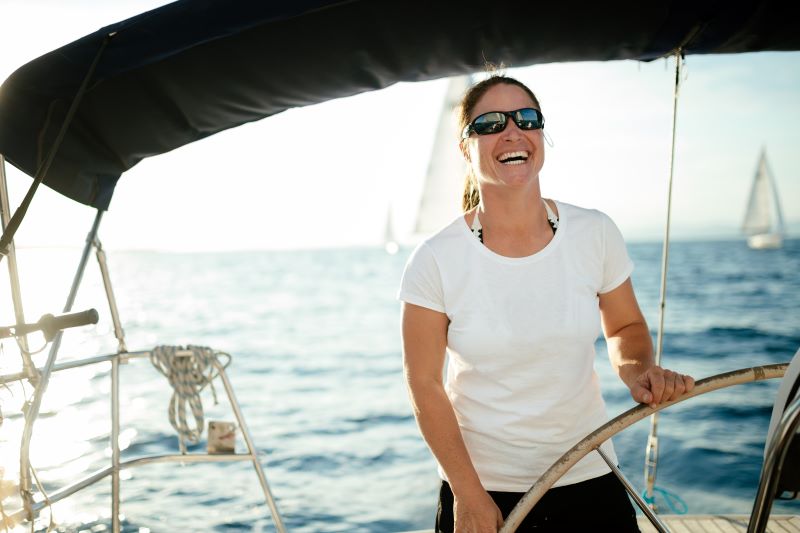
What does a skipper do?
The skipper on a chartered yacht will have the skills, training , experience , and license required to legally and safely captain the boat (or flotilla, in the case of a group sailing holiday ). In that capacity, here’s a look at what a skipper does:
- Keeping everyone safe: The skipper makes sure everyone on board knows and adheres to safety protocols, starting from when you check in at the marina ; they’ll also know what to do in situations like storms.
- Planning the passage to the destinations: Understanding the currents and staying on top of weather predictions help the skipper choose the best time and course for sailing from one destination to another.
- Mooring and casting off: The skipper guides the boat smoothly into and out of marinas, securing it for the night and freeing it in the morning.
- Navigating the boat: From working a chart plotter to determining the wind direction, adjusting the boat’s heading, and trimming the sails, a lot of expertise goes into making a boat go where you want it to go.
- Ensuring maritime laws and local regulations are followed: You don’t want to ruin your sailing holiday with a fine — especially if you had no idea you were breaking any rules.
- Operating the equipment: Today’s boats come rigged with advanced safety and navigational equipment, plus the basics like the engine and water tank (and of course, the bells and whistles that make for a great experience); the skipper knows how to properly use and maintain every part and devise.
- Recommending local spots to visit: A skipper can let you in on local secrets about the best restaurants, the most secluded beaches, and any unique spots to visit off the beaten path.

Why You Should Go For a Boat Rental With a Skipper and How to Book One
Sailing with a skipper is pretty much the only way to take a boat holiday if you don’t have a boating license yourself.
To book a skipper on your boat holiday on Borrow A Boat, tick the “I need a skipper” box when you’re entering your dates, destination, and number of guests. (Just remember: The number of guests on your trip must include the skipper!)
Why You Should Charter a Yacht With a Skipper in Croatia
Chartering a yacht with a skipper in Croatia can transform your sailing experience into a seamless and enjoyable adventure. Croatia’s coastline is renowned for its stunning beauty and numerous islands, but navigating its waters can be complex due to varying wind patterns, hidden coves, and local regulations.
Hiring a skipper not only enhances safety but also offers a wealth of benefits. These experienced captains possess an intimate knowledge of the region, ensuring you’ll explore hidden gems and picturesque anchorages that may be overlooked otherwise. They also provide peace of mind, allowing you to relax and relish the journey while they handle navigation, mooring, and any unexpected situations.
Whether you’re a seasoned sailor looking to unwind or a novice seeking an expert’s guidance, chartering a yacht with a skipper in Croatia offers a stress-free, enriching, and unforgettable sailing experience along the Adriatic coast .
A Skipper Yacht Charter in Greece
Opting for a skipper yacht charter in Greece opens up a world of possibilities for an unforgettable sailing vacation. Greece’s vast archipelago and intricate coastlines can be a delight to explore, but they also present challenges even to experienced sailors. That’s where a skipper comes in. These seasoned professionals not only ensure your safety but also enrich your journey. With their local knowledge, they can guide you to hidden coves, authentic Greek tavernas, and ancient ruins that may elude other travelers.
Whether you’re a skilled sailor or new to yachting, a skipper yacht charter in Greece allows you to relax, soak in the breathtaking landscapes, and dive into the rich culture and history of this Mediterranean paradise, all while an expert takes care of the navigation and logistics.
How Do You Become a Skipper?
Being a skipper is a rewarding job — especially if you love sailing. Of course, becoming a skipper requires experience as well as serious training and certain certifications.
A commercially endorsed skipper will need to not only complete an official skipper or Yachtmaster course, they’ll also need to have additional qualifications such as courses in survival techniques and first aid.
It’s simpler to obtain a boating license , which would enable you to go sailing without a skipper. In that case, your state or country determines what’s required, but generally you’d need to take a course, pass a test, and pay a fee.
Meet our professional Borrow A Boat Skippers
Final thought: sailing with a skipper makes for a wonderful boat holiday.
While having a stranger along on your vacation with your family or friends may sound awkward, it doesn’t have to be! The skipper is there to keep you safe and make sure you have an incredible experience.
The Best Places for Sailing in the US: 8 Amazing Holiday Destinations
Buchen sie ihr boot mit skipper – dürfen wir vorstellen: filip.

Croatia Skippered Yacht Charter
A skippered yacht charter is a stress-free way to sail guided through the stunning Adriatic Sea. As your host, guide and captain on a monohull or catamaran charter in Croatia, skippers ensure smooth sailing while sharing the rich culture of this Venetian voyage of discovery.
BOOK YOUR CHARTER
Feature Yachts
Feature yachts offer a good range of size, layout and design. If they are not what you had in mind for your monohull or catamaran charter in Croatia, let us know as we offer many options to suit specific charter needs.
VIEW FULL LIST OF YACHTS
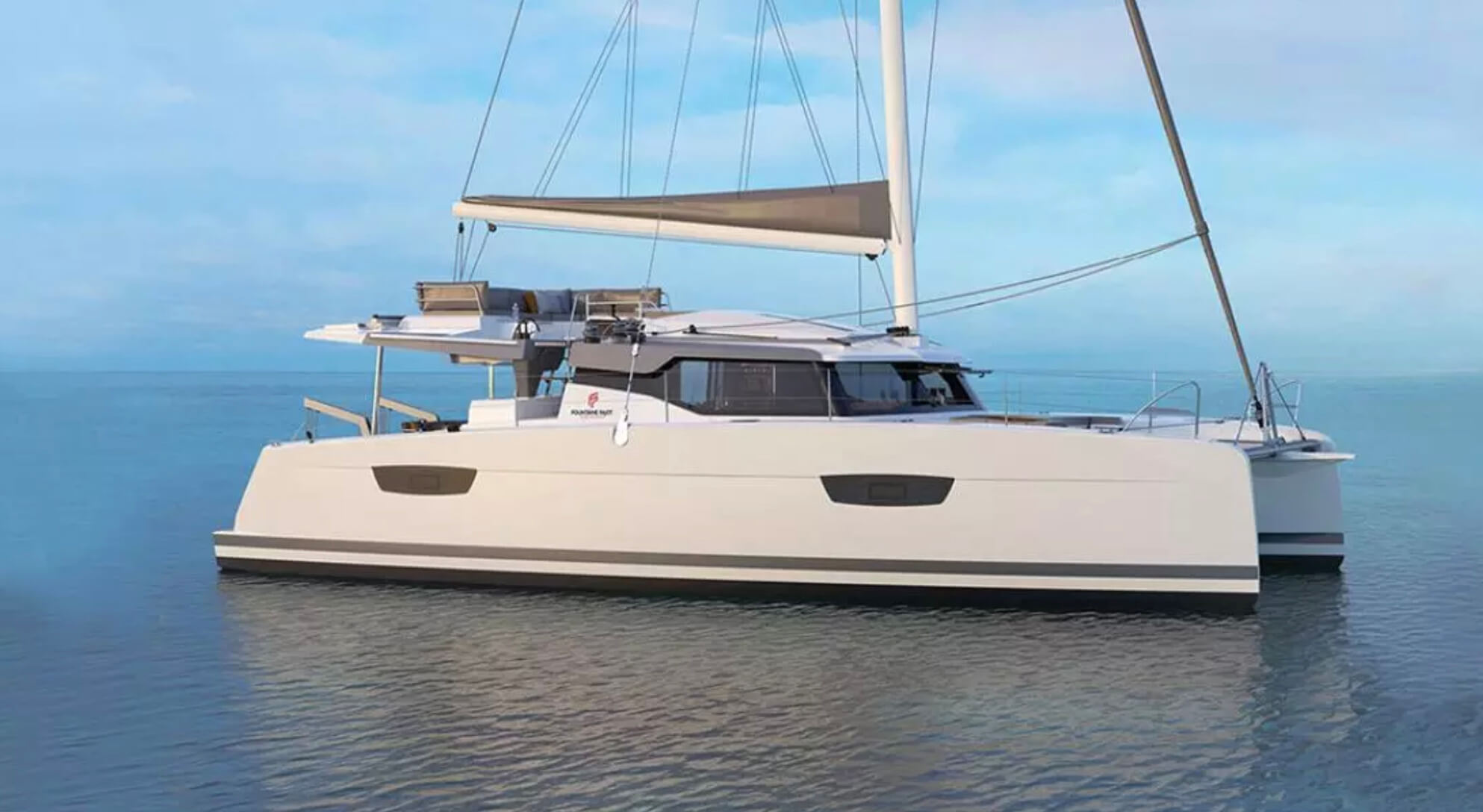
FOUNTAINE PAJOT ELBA 45
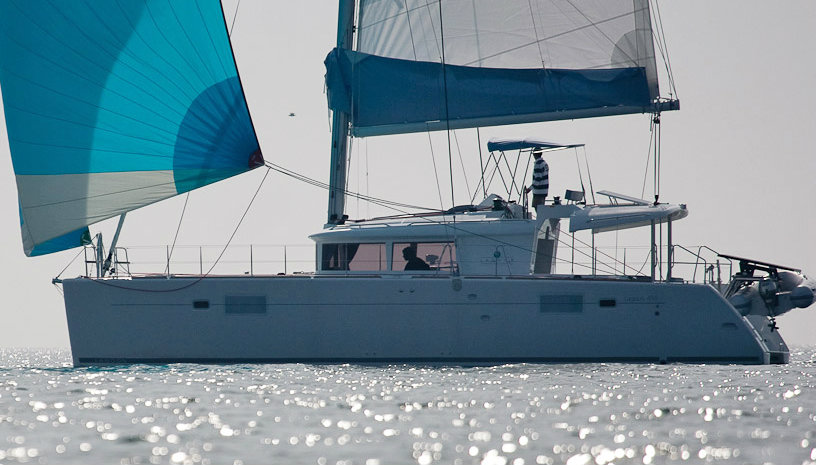
LAGOON 450F
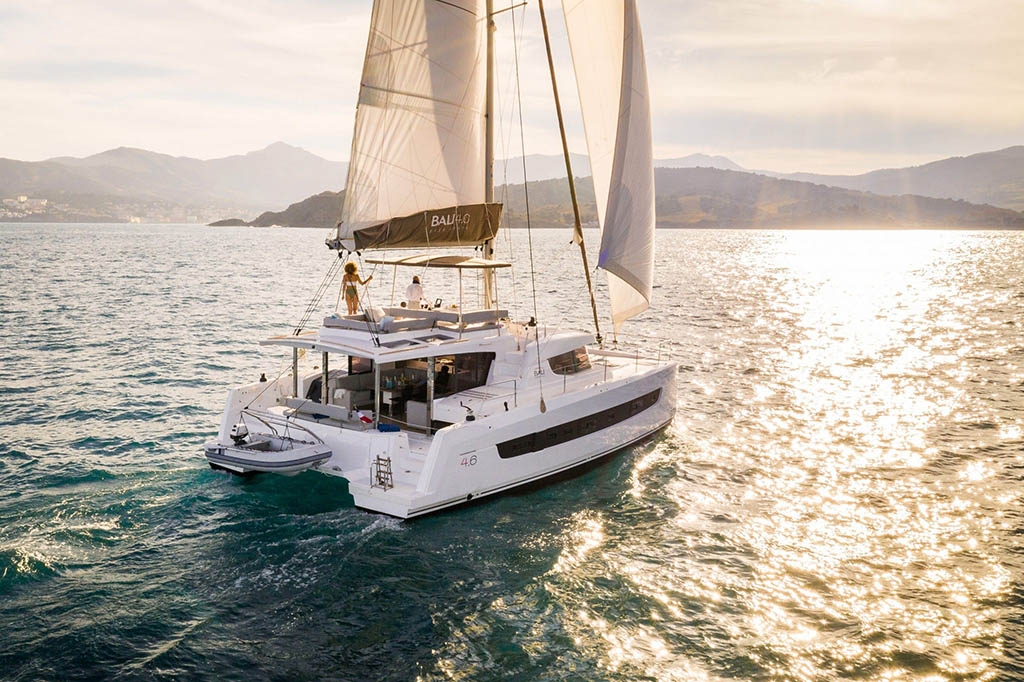
FOUNTAINE PAJOT SAONA 47
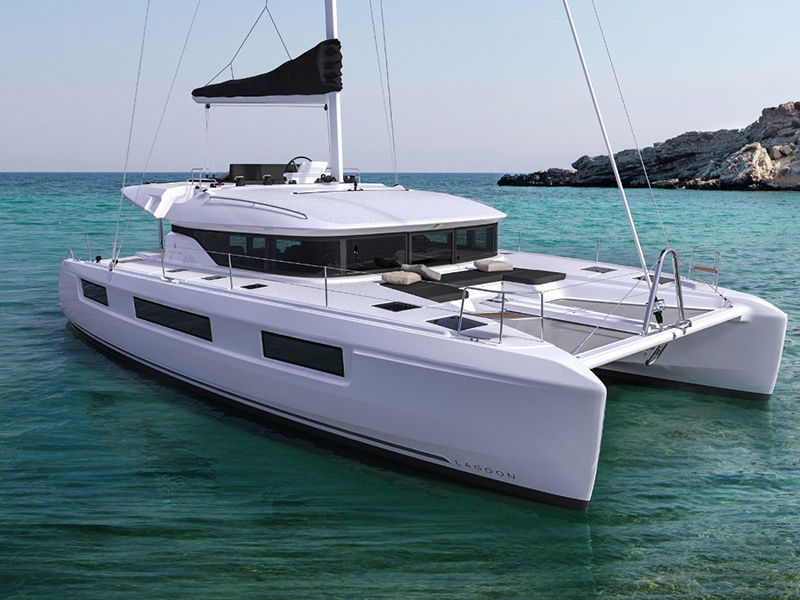
FOUNTAINE PAJOT AURA 51
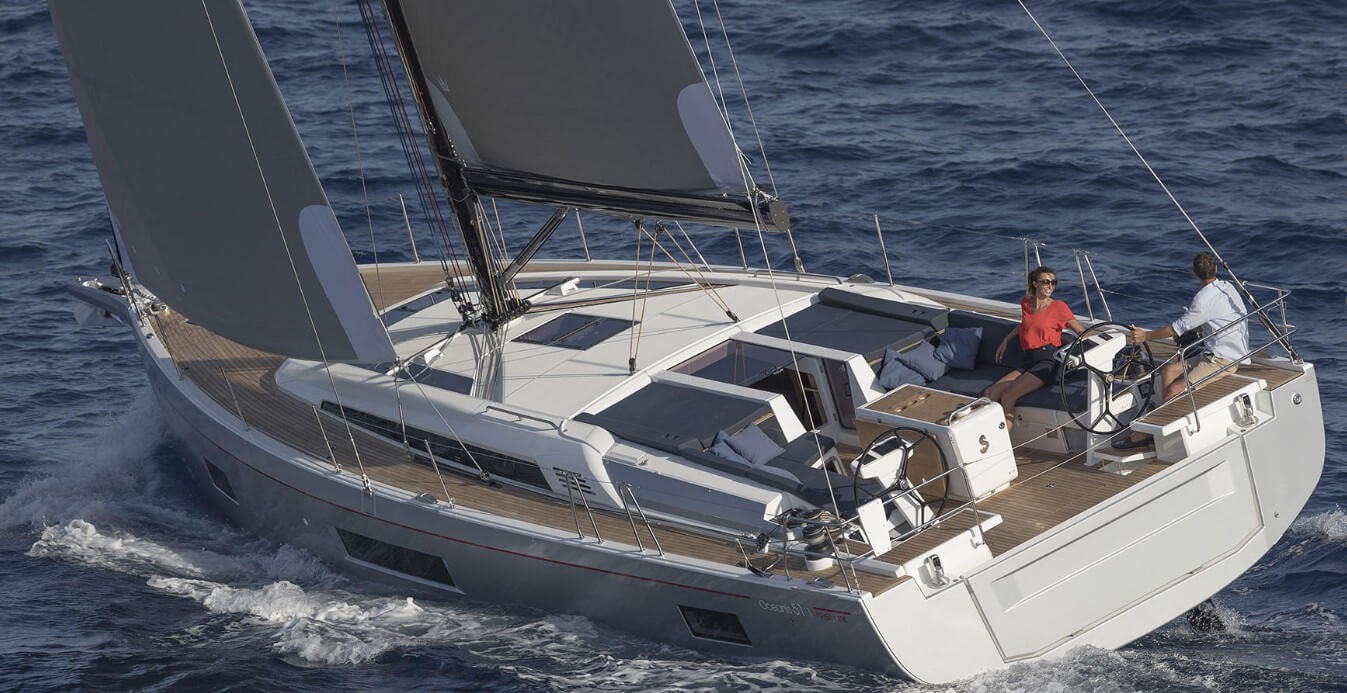
BENETEAU OCEANIS 51.1
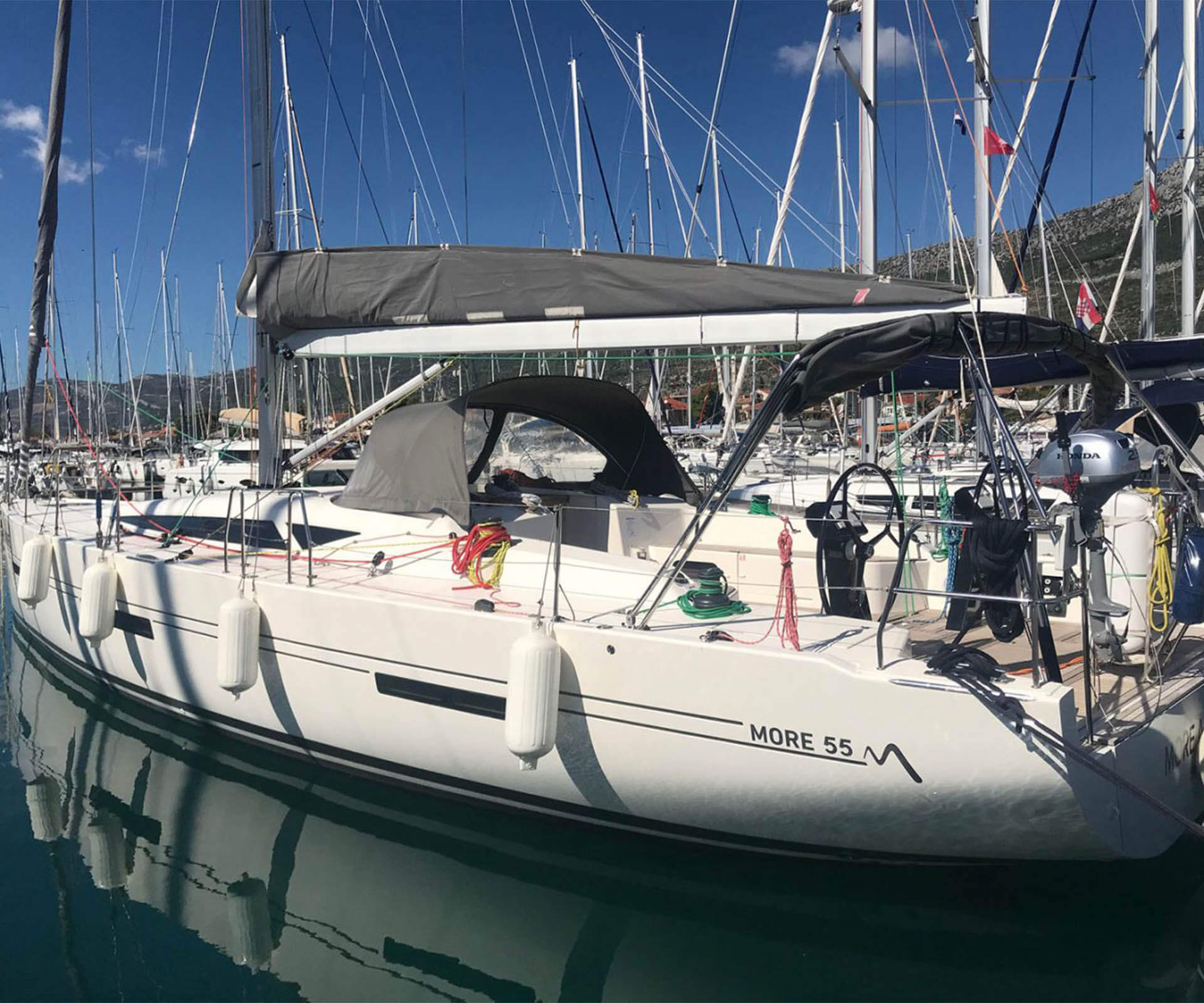
The Skippers
We have worked with many Croatian skippers over the years so can discuss your specific needs to find the perfect Captain for your Croatian skippered yacht charter.
SKIPPER FEES
Expect to pay around around Euro 195 per day plus meals for a skipper. A skipper can be added to any monohull or catamaran charter in Croatia. Skippers require their own cabin to sleep, but they can share a washroom.
The Itineraries
There’s so much to see on a Croatian skippered yacht charter. The route can be planned with the skipper upon arrival, or you can sail on a route from one of our itinerary suggestions.
Dalmatian Coast: Split to Split
Dalmatian coast: split to dubrovnik.
Board and end in Split. Sail to see Primosten, the natural beauty of Krka falls as well as the UNESCO sites of Vis, Hvar and Brac.
Board in Split. Sail to see the natural beauty of Krka falls then south to see Hvar, Korcula, Vis, Mljet ending in Dubrovnik.
Board and end in Split. Sail north and south to see the natural beauty of Krka falls, the deserted Kornati islands as well as the famous Roman and Venetian ports of Trogir, Vis, Hvar and Dubrovnik.
Discover Croatia
Depending on your Croatia skippered charter itinerary, visit some of these stunning locations.
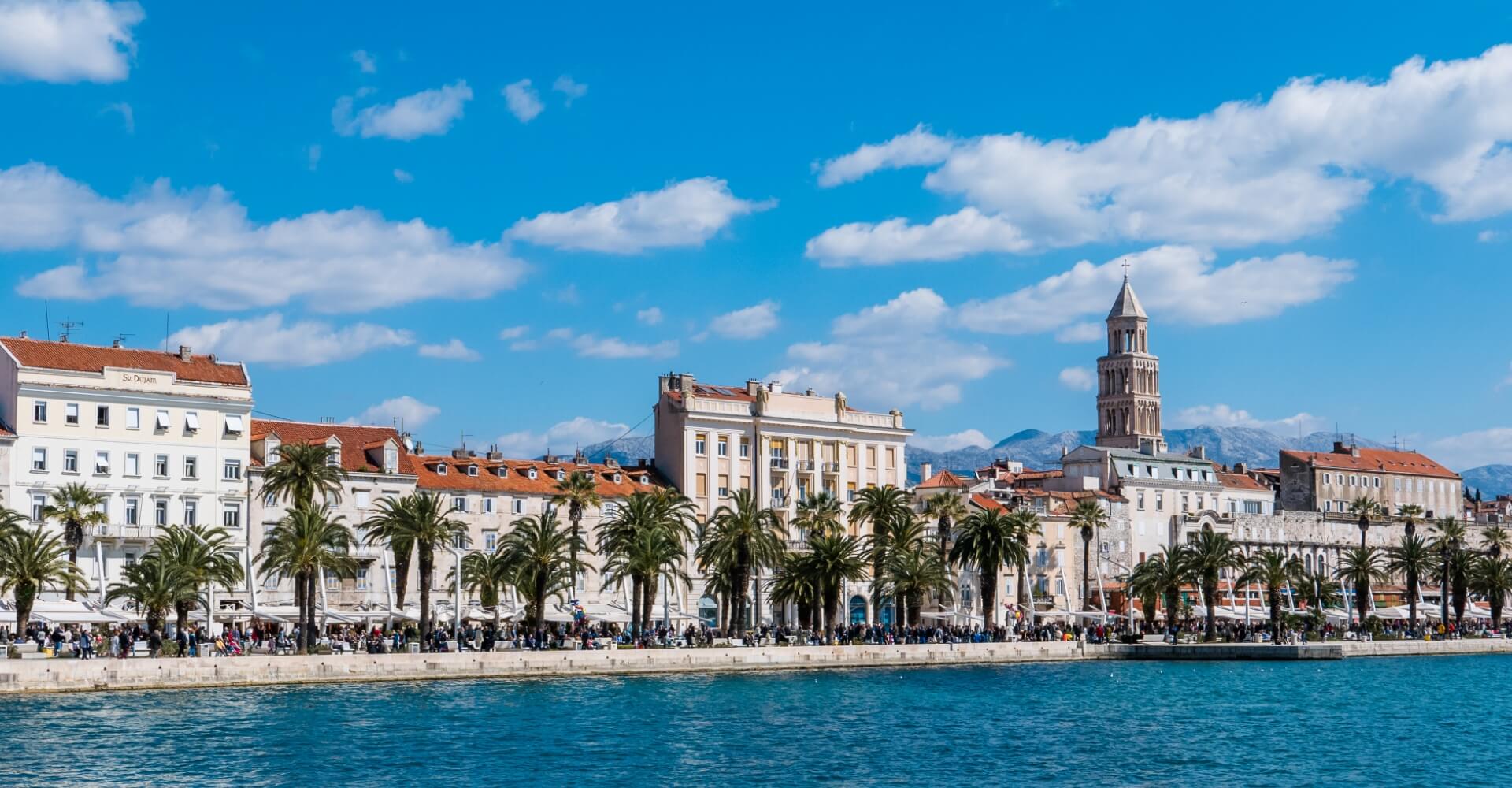
The Roman emperor Diocletian fell in love with the area calling it the flower of the Adriatic and built one of the most beautiful palaces in the Roman Empire - the famous Diocletian's Palace 305BC. Wander through Roman and Venetian architecture and explore museums, art galleries and boutiques.

A beautiful bay to moor and swim with a pebble beach and a quaint peninsular town.

Explore the National Park and Krka falls. These spectacular falls cascade down the forested hills into numerous emerald pools. Hiking, swimming and photography make for an unforgettable afternoon.

This charming cove offers rustic dining on picnic tables at Konobo Suselic. Eat grilled fish and Croatian specialities under a canopy of pine trees for a magical evening.

Kornati Islands
This area features 118 islands with little or no development. The islands have a golden hue to them as a result of herbs and wild flowers, making this area the pride of every Croatian.

Sail to one of the farthest inhabited islands off the Croatian coastline to sample some of Vis islands extraordinary white wine. Enjoy the one of the many pizzerias, restaurants and wine bars along Vis towns' busy promenade.

The Blue Cave at Bisevo Island is a phenomenal experience and arriving before noon is the key. Tour the cave by dinghy or day boat at midday to watch sun rays bounce off the sandy bottom making the water in the cave turn translucent.
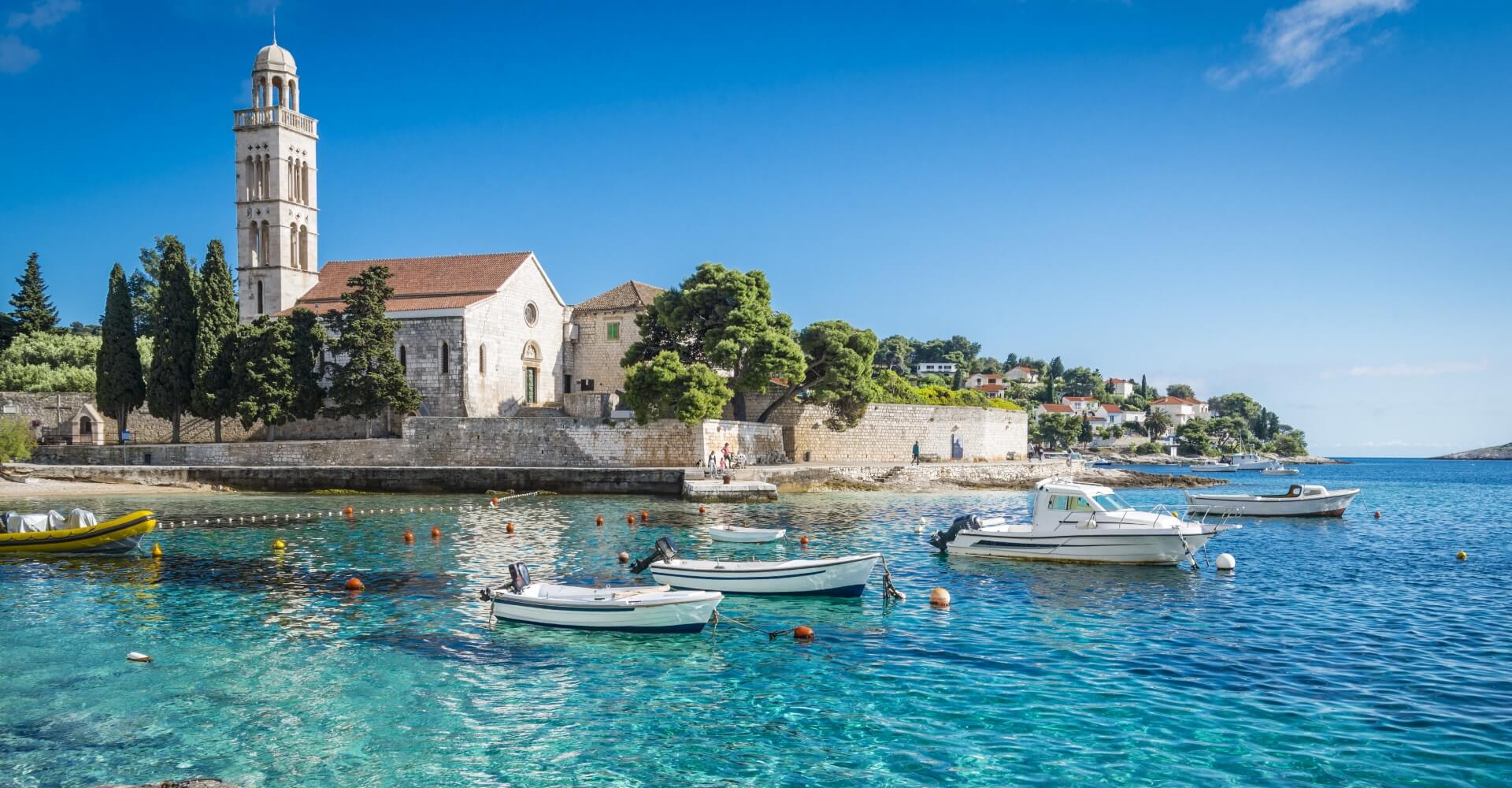
Anchor at Hvar town under the shadows of Spanjola Fortress - the Venetian citadel that looms over the town. Hike the 1100 steps up to the fortress or wander the cobblestone streets of the city and explore the Cathedral of St Stephen with its 17th century bell tower. After sunset shop the many market stalls for lavender gifts or sip cocktails at one of the many bars Hvar is famous for. Also not to miss is Stari Grad, this charming town is one of the oldest towns in Croatia where ancient Greek stonewalls can be seen encircling the original settlement. Walk the waterfront and see St Stephen's Church, a beautiful 17th Century shrine in the town's main square.

This quiet island offers picturesque walks around the bay along with a small hotel and marina to explore. For the more active, hike to the hidden village of Zaklopatica for a spectacular view of the medieval enclave.

Spend a night in the charming dusty fishing village of Polace. Take a minibus to the breathtaking Holm Oak and Aleppo Pine forests of the Mljet National Park. The minibus drops off hikers at an inland salt-water lake, to embark small vessels to a sacred island where Benedictine Monks built a monastery in 12th century AD.

Moor at ACI Dubrovnik Marina, and take the short bus ride to explore one of the most historic and beautiful of all European cities. Learn about the old city of Dubrovnik's rich history and architectural wonders by renting a headset and walking the fortified city walls on a 2-3 hour tour.
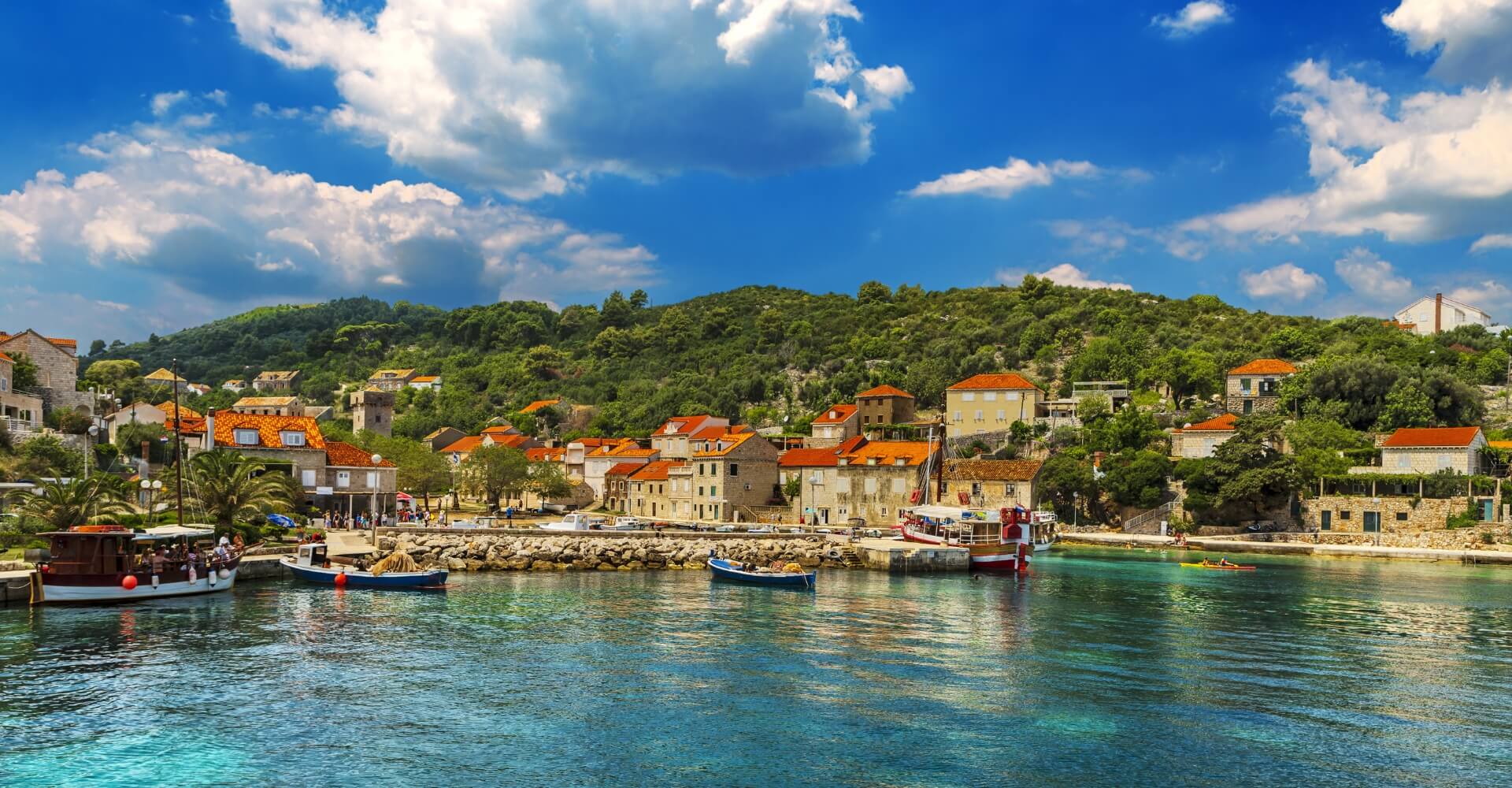
Walk along the promenade for a cool afternoon swim or explore the 11th century church of St Peter. Dine in style on the waterfront terrace of konoba Kod Marka metres from the moored yachts.

Korcula, the home of Marco Polo, is a gem for historians as there are many remarkable museums, sites and architecture. Enter the old town through the fortified Land Gate entrance and explore the 13th century St Mark's Cathedral, complete with the spectacular sculpted Gothic doorway, spiral columns, gargoyles and the figure of St Mark.

Zlatni rat beach commonly known as Bol beach, on Brac Island, is a geological phenomenon - a stunning 1km peninsula of sand jutting out in the Hvarski Channel. Wander the beach and enjoy snorkeling off the tip.
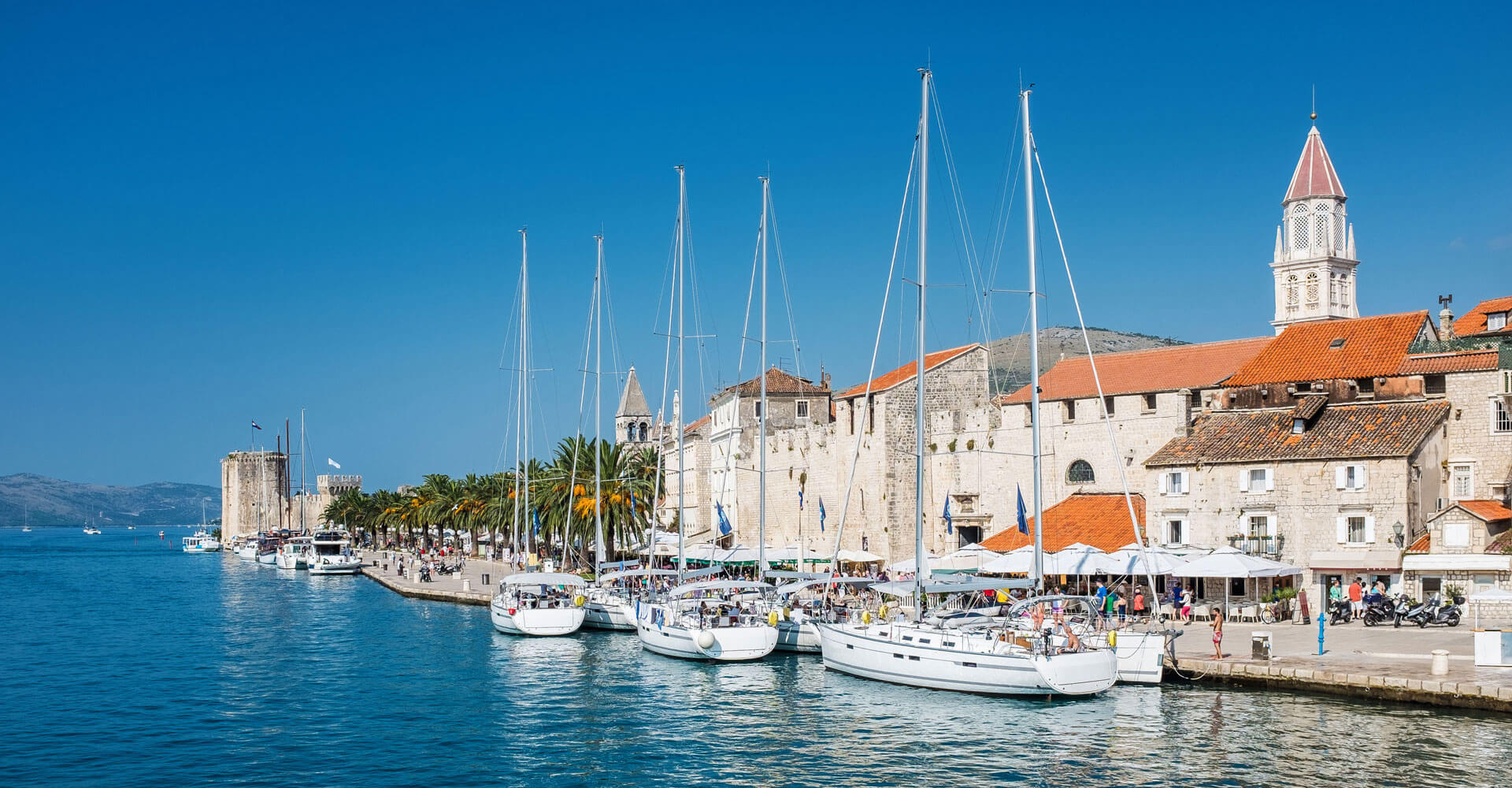
Trogir is a medieval town founded on an ancient Greek settlement dating from 380 BC. The Romans came in 78 AD and in the Middle Ages it was occupied by Byzantine, Saracen, Hungarian and then Venetians. The rich history and unique architecture have made Trogir a UNESCO world heritage site.
Split Boarding Location
Split: kastela zenta trogir.
Split International airport, is only 23 km away from Split town. The Split airport is actually closer to Trogir town than Split town. Saturday is best spent visiting Split town or Trogir sites before taking a short taxi ride to the marina for boarding. If you arrive early at the marina on boarding day, bags can be left with the owner/operator but you will not officially be able to board until 17:00. Upon arrival at allocated marina, report to your yacht operator's office.
Airport to Split town: Taxis can be found lined up at the airport and take about 30 minutes to get to Split town It costs approximately 40 Euros one-way per taxi.
Airport to Split town or Trogir: Upon arrival at Split airport exit the building where shuttle buses are available for either Trogir or Split town. Split ACI Marina, Kastela Marina and Marina Zenta are a short taxi ride from Split town.
VIEW SPLIT MAP
VIEW KASTELA MAP
VIEW TROGIR MAP
Dubrovnik Boarding Location
Dubrovnik: dubrovnik aci marina.
ACI Marina Dubrovnik lies near Komolac, about 2 km from the entrance to the port of Gruž and 6 km from the old city.
Taxis can be found lined up at the airport and take about 45 minutes to get to Dubrovnik ACI Marina town. It costs approximately 50 Euros one-way per taxi.
Airport to Old Town Dubrovnik: Upon arrival at Dubrovnik airport exit the building and the airport shuttle bus is parked alongside the building. Tickets are bought on the bus and the cost of the airport transfer is approximately 5 Euros. The shuttle stops at Pile Gate in front of Old Town Dubrovnik where you want to disembark. Old Town Dubrovnik to ACI Dubrovnik Marina: Just outside of Pile Gate you can purchase tickets for bus numbers 1A or 1B and get off at stop in Komolac (just after the INA gas pump).
VIEW DUBROVNIK MAP
CHARTER DESTINATIONS
- British Virgin Islands
- The Bahamas
- Caribbean Windward Islands
TRAVEL INFORMATION
- News and Blog
- Special Offers
- Packing and Safety Tips
- Booking Information
- Booking Questions
- Yacht/Skippered/Flotilla Information
- Luxury Charter Information
- Cabin Charter Information
Get In Touch
- [email protected]
- Toll-free North America:1-888-372-7245
- Telephone & Fax: 1-613-832-7245
- Skype: poseidon.charters
Join The Conversation
Get the latest poseidon charters news.
- TERMS AND CONDITIONS
- PRIVACY POLICY
Your charter experts for yacht and by the cabin charters in Greece, Croatia and French Polynesia. Over 25 years’ experience and recognized by the Greek National Tourist Organization US and Canadian offices.

Poseidon Charters | 1246 Bayview Drive | Woodlawn | Ontario | K0A 3M0 | Canada Poseidon Charters Inc is a Canadian Federal Chartered Company Company Registration 3568792

powered by webfuel
Sign-up for our newsletter for exclusive charter information, offers, sailing tips and much more!
This website uses cookies to ensure you get the best experience on our website. Learn more.

IMAGES
COMMENTS
Flotilla Skipper. A flotilla skipper is responsible for the running, sailing, maintenance and guest care of a yacht forming part of a holiday flotilla or sometimes the entire group of up to 20 yachts, which form the flotilla. Flotilla holiday companies often operate in the Mediterranean, you can earn anything between €100 - €250 per week ...
The cost of a professional skipper varies according to the service (boat delivery, charter, coaching), the duration of the service, the sailing area, the size of the boat and the number of passengers : For charters, the remuneration is a daily rate. Example : In Croatia, a skipper is paid at least 240€/day ; In France, 300€/day ; In Saint ...
Skipper is yet a freeman, or a freelancer, in our case, once hired. Skipper is an ultimate professional, the same as Captain, but this is a free choice of Skipper to be such. Skipper lives one life for his boat and himself. The skipper is the master of his ship. A skipper is also a captain of the boat, as of what the official papers state.
The title "boat skipper" is a broad term encompassing individuals in charge of various types of boats, while a "yacht skipper" specifically denotes someone overseeing the operations of a yacht. Both positions require a comprehensive understanding of navigation, safety protocols, and the ability to make informed decisions while at sea. ...
The skipper is responsible for the safety of the yacht and the crew's welfare. However, sailing a boat successfully requires teamwork from the skipper and the crew. This will ensure that all maneuvers—such as leaving a mooring, hoisting sails, changing tacks, reefing, or entering a marina—can be completed with maximum enjoyment and minimum stress. Boat Captain/Skipper It may come as a ...
A good skipper will prevent boredom and apathy by agreeing daily routine maintenance tasks and helping to develop projects that improve the yacht and teach useful skills on board. A good skipper ...
6) Gives effort to ensure guests and crew enjoy their experience. (2 responses / 4.8% of total responses) Advice for Skippers. Club Skipper Bob Gutgsell said it best when he commented on Facebook: "Understand everyone is on the boat for a different reason and respect that reason.". Take a moment before departure to have a quick chat with ...
The skipper is responsible for the safety of all passengers and crew members, which requires them to have extensive knowledge of navigation, weather patterns, tides, and other crucial elements of boating. They are also charged with maintaining the boat's mechanics and ensuring it is seaworthy at all times. Furthermore, a skipper must remain ...
In the case of a fully crewed yacht, the responsibilities of the skipper include making sure the crew understand and carry out their roles and duties. The skipper is expected to maintain proper coordination among the crew. To sum up, the tasks and responsibilities of a skipper are both technical and interpersonal.
You will need to cover the cost of the boat, together with mooring and fuel, and then decide whether to include food, meals out, and drinks. I find that the simplest option is to share all the costs equally, and the first step is to prepare a rough budget so people have an idea of how much the trip is going to cost.
Purpose: familiarize the skipper with the yacht's protocols, crew, and specifics. This could be a few days where they shadow the outgoing skipper or undergo formal training sessions. Introduce them to the crew, tour the vessel, and ensure they're comfortable in their new role. Boat skipper salary: factors and considerations
The skipper on a yacht should get its own separate cabin (one of the inside cabins or the front cabin), as well as private time at the end of the day. Sleeping in the saloon is considered uncomfortable because it means that the skipper is the last to go to bed - and it creates discomfort if the guests like to stay up late. ...
5 days, 100 miles, 4 night hours on board a sailing yacht. Theory to the level of Day Skipper. Whilst it is recommended you attend a Day Skipper shore-based course beforehand, which includes an exam, you just need to be confident in doing the theory to the required level, as there isn't time to learn this on the course.
Crewseekers is run by experienced, professional sailors offering a friendly and helpful service to yacht crew and owners. We are the original yacht crew introduction agency - established for over 25 years, offering amateur and professional sailing opportunities throughout the world. Amateur and professional yacht crewing positions available ...
The boat wrecked in Rimini last April 18th. The accident resulted in the death of 4 people. What is certain is that the skipper, or better, the captain of a boat takes an enormous responsibility every time he sails off and starts sailing with his crew, even when the latter is made up of few relatives and friends. His responsibility is always moral but it can sometimes become even civil and penal.
The skipper of the boat is more like a manager of the boat operations while the boat is moving. That skipper does not need to be on the helm, in fact the skipper is doing them self a disservice of being a good manager by running the helm. There is no way a skipper can be a good boat manager if they spend the day on the helm.
A boat skipper is a person who commands a boat and its crew. In naval terms, a skipper is liable for the care and safety of the ship, vessel, boat, or yacht. The same is true of the captain. Additionally, the captain is accountable for the care and sanctuary of the crew, which is why a captain is also known as a skipper.
Price. In 2024 the most typical price for a chartering with a skipper was between €240 or $240 per day. Whilst advertising rates are per day, it can be difficult to charter for anything short of a week as most skippers are seeking full employment at peak times. The exception is Assisted Sailing. Assisted Sailing.
The RYA Day Skipper course is an excellent choice for you. You'll spend five days on board a yacht - often in a role of a skipper - and visit stunning places of the Adriatic. With the RYA Day Skipper certificate, you can charter a yacht worldwide. Duration: 5 days (Sunday to Thursday) Availability: March to November Age: Min 16 (16 - 18 ...
Cost of Hiring a Skipper. The cost of hiring a skipper will usually vary based on the yacht description and the additional service payable on the charter guide. On average though, a skipper's payment ranges between €100 and €180 per day, depending on the location.
The Captain is in charge of the crew and everything happening on the boat. They are in command of the ship, while a Skipper is in charge of the ship alone rather than anyone that is actually on it. Also, a Captain is usually used on a larger ship while a Skipper is used on a smaller ship. Even still, all but the most professional of crews will ...
A Skipper Yacht Charter in Greece. Opting for a skipper yacht charter in Greece opens up a world of possibilities for an unforgettable sailing vacation. Greece's vast archipelago and intricate coastlines can be a delight to explore, but they also present challenges even to experienced sailors.
Croatia Skippered Yacht Charter. A catamaran on a Venetian Voyage. A skippered yacht charter is a stress-free way to sail guided through the stunning Adriatic Sea. As your host, guide and captain on a monohull or catamaran charter in Croatia, skippers ensure smooth sailing while sharing the rich culture of this Venetian voyage of discovery.